
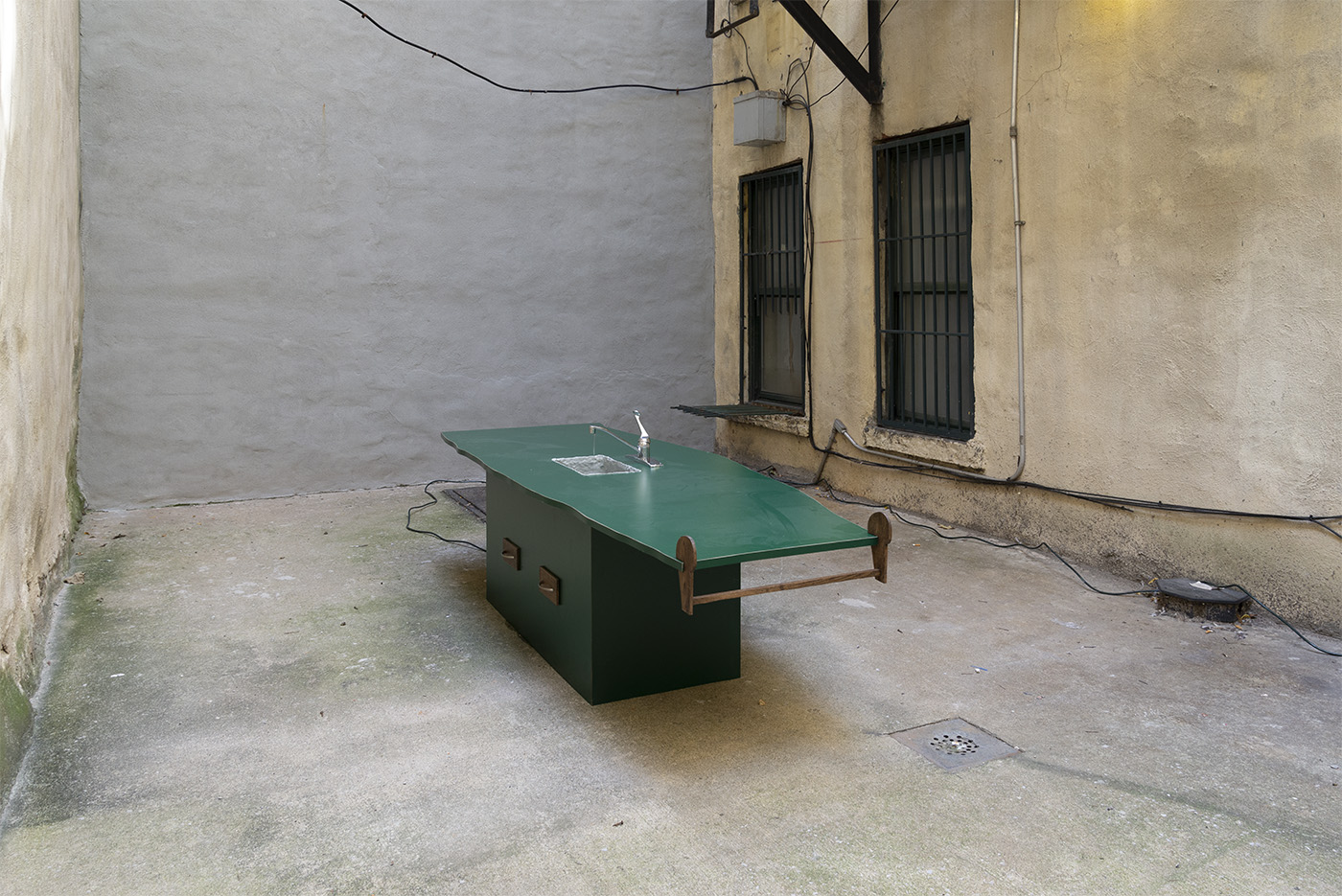
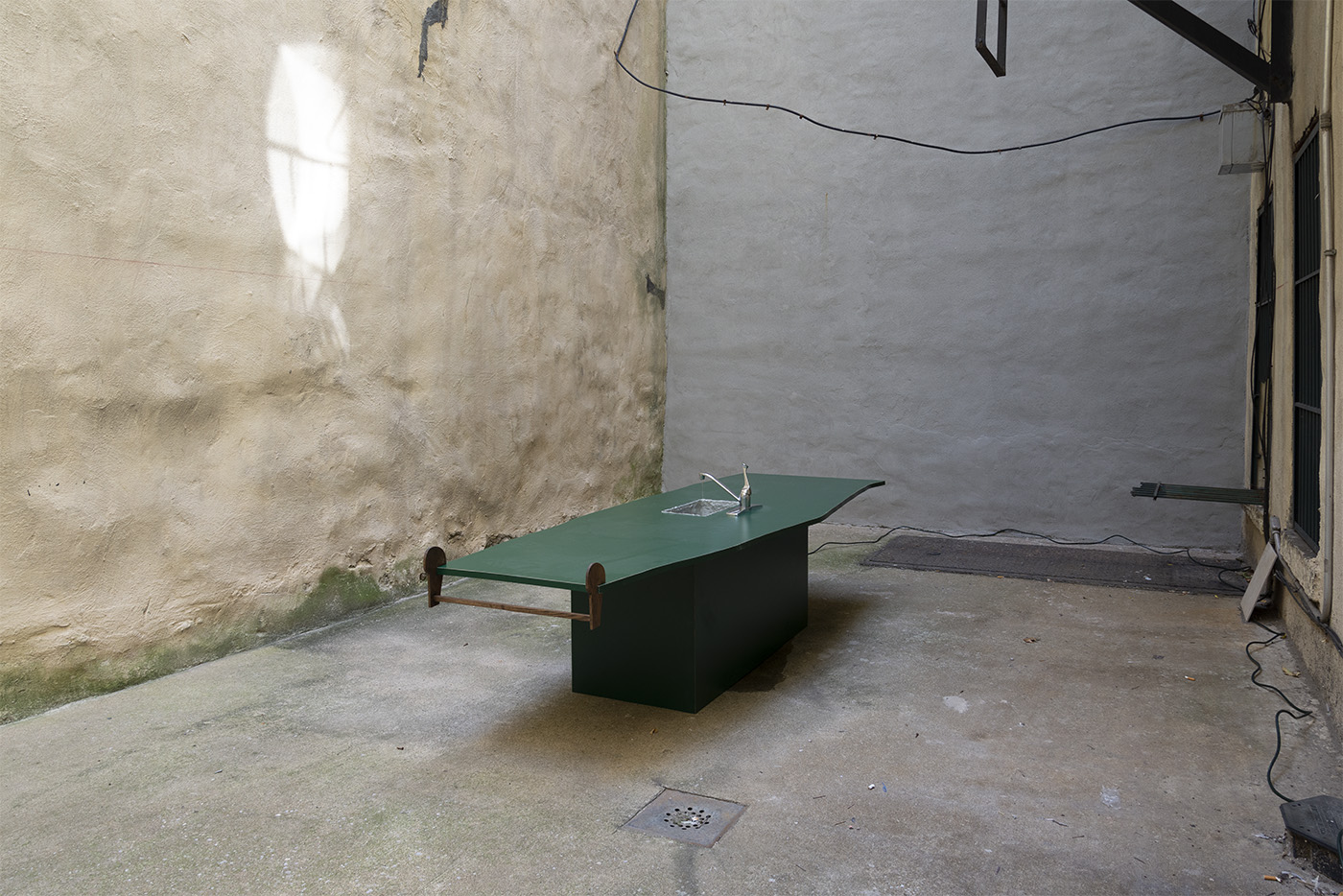
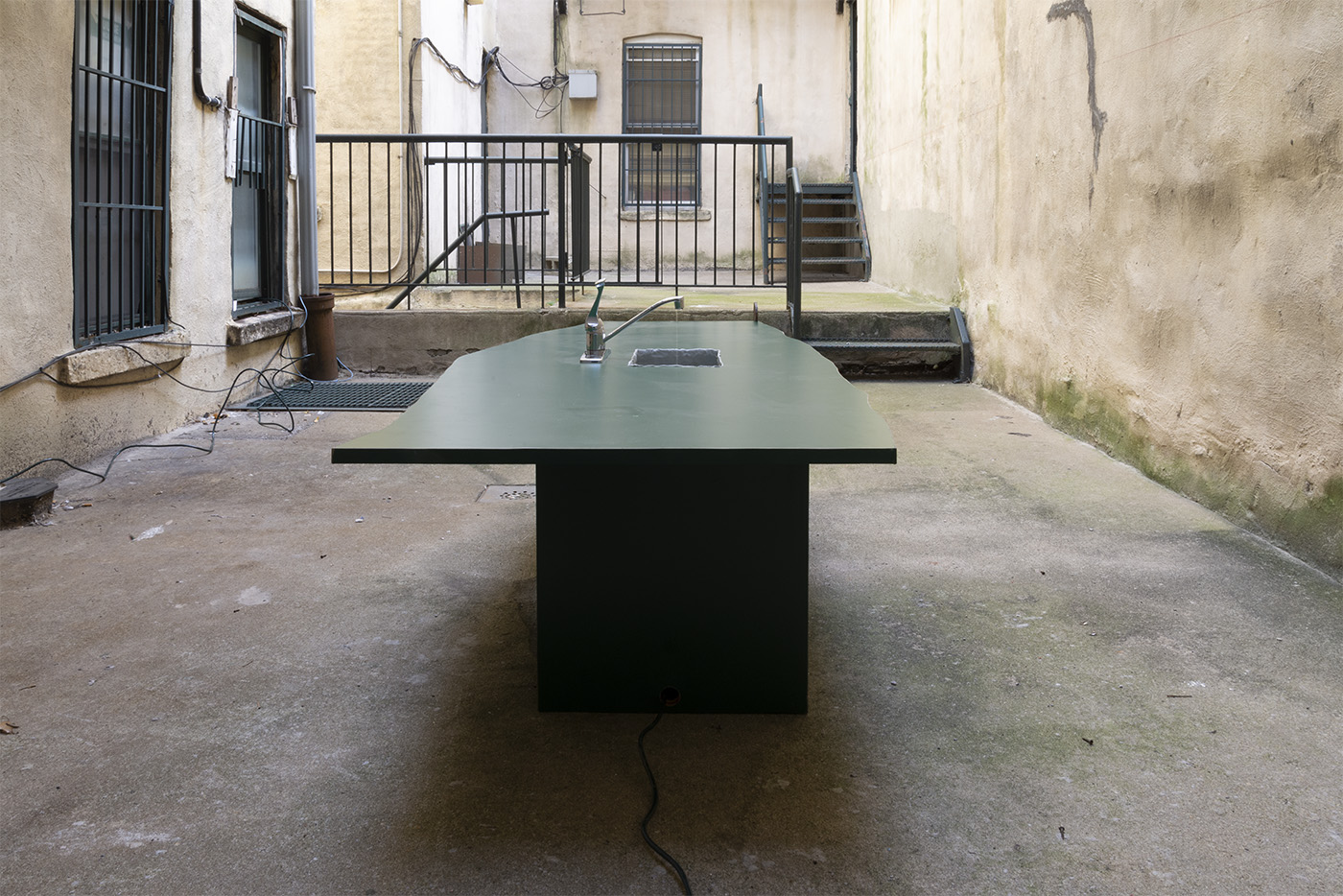
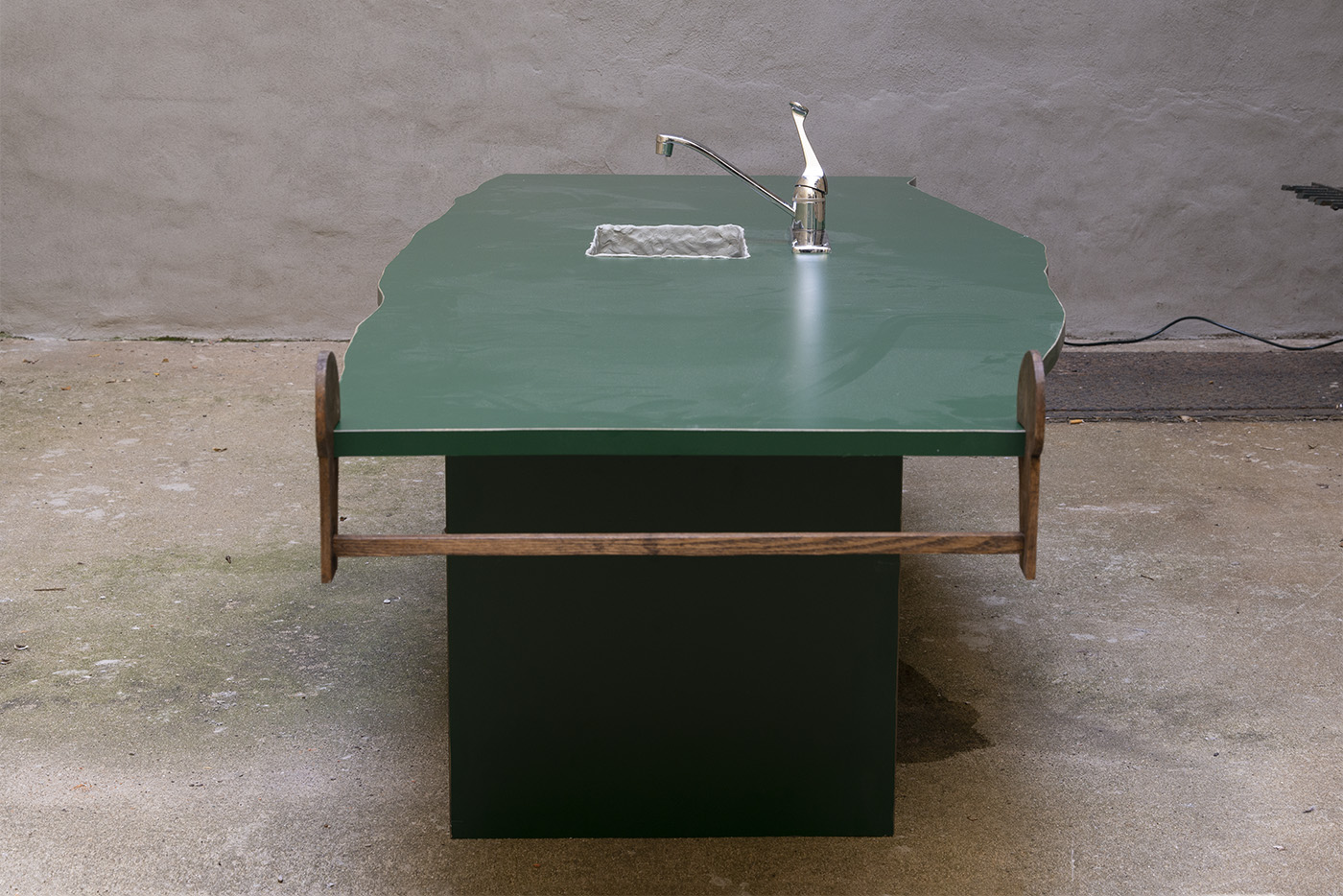
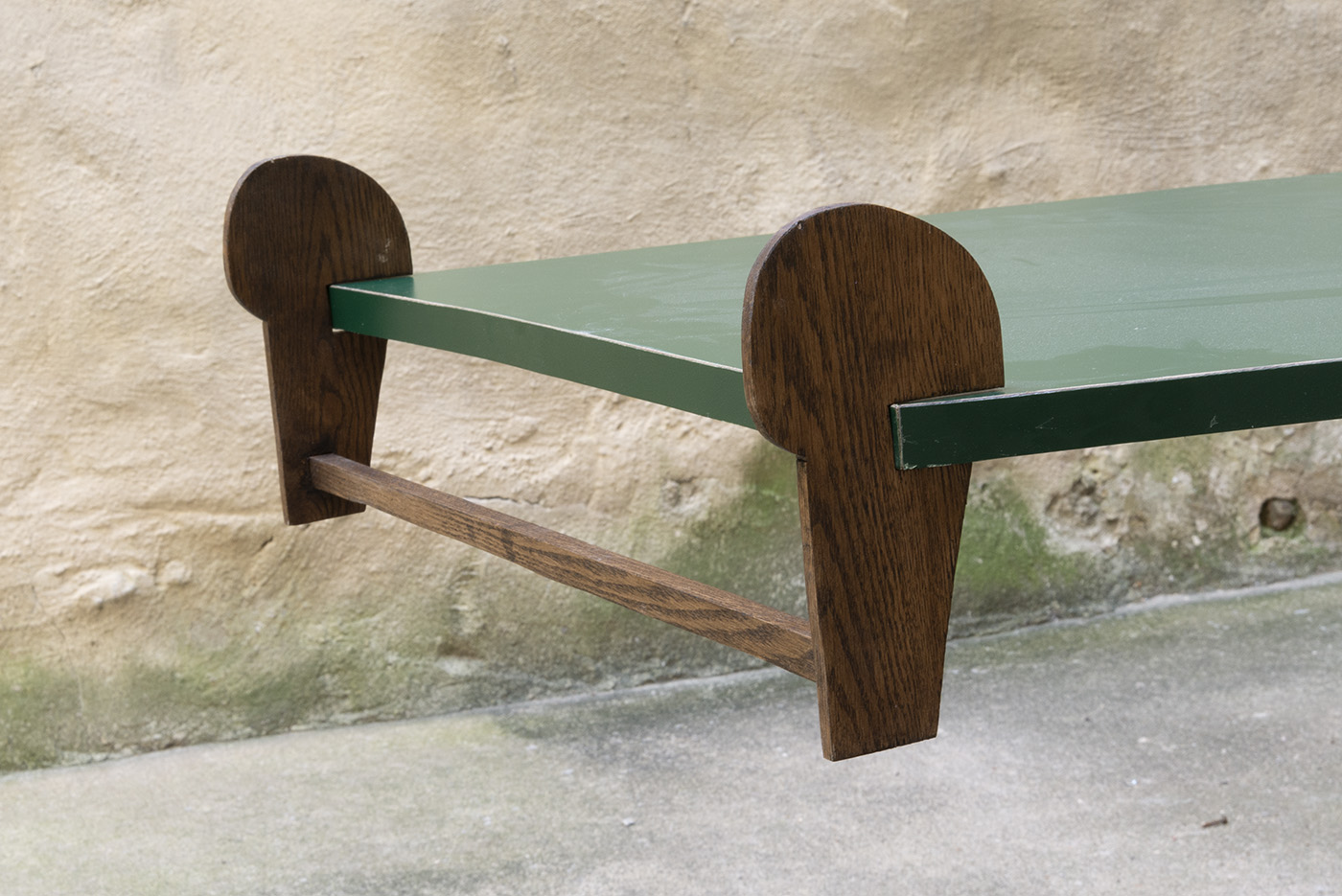
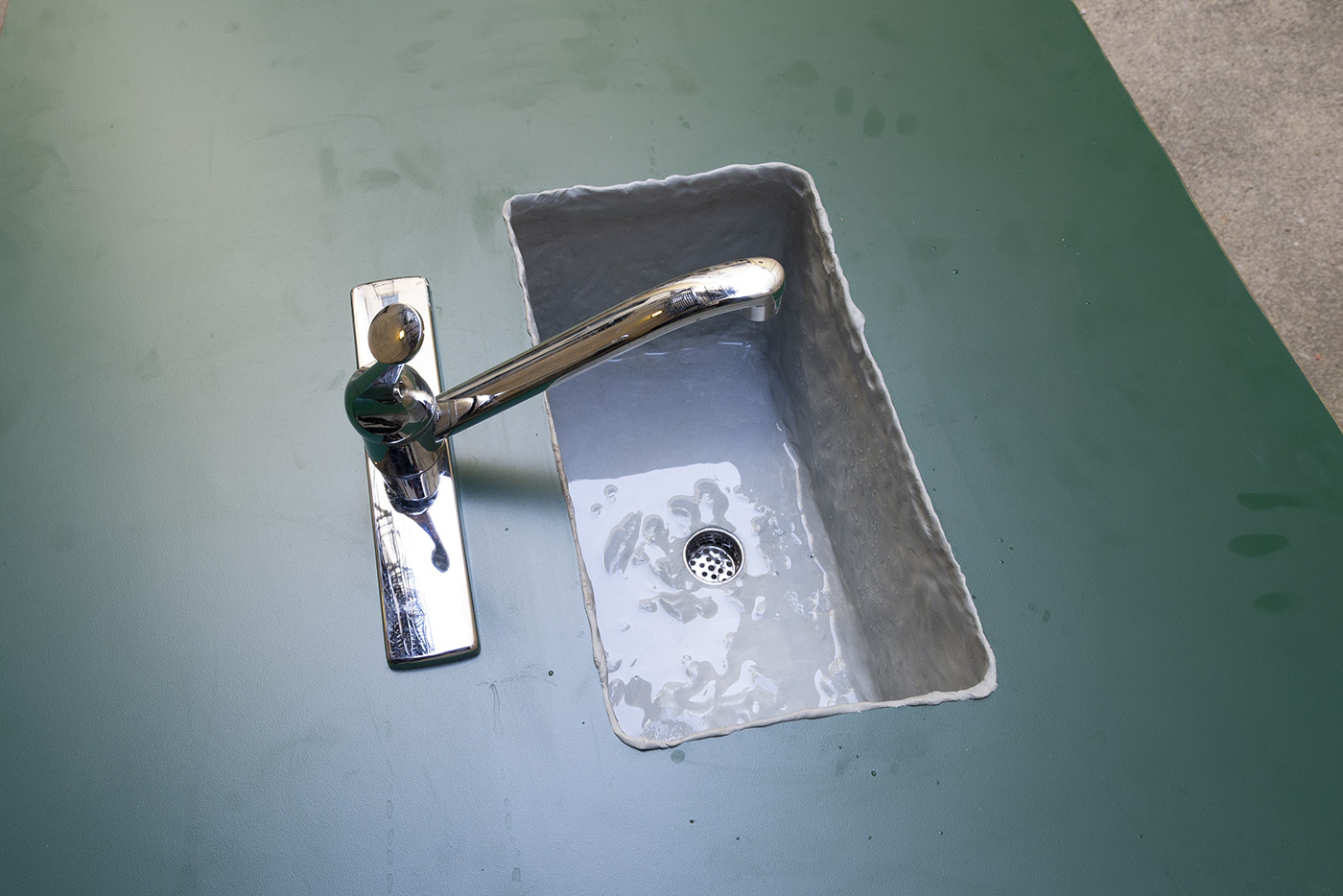
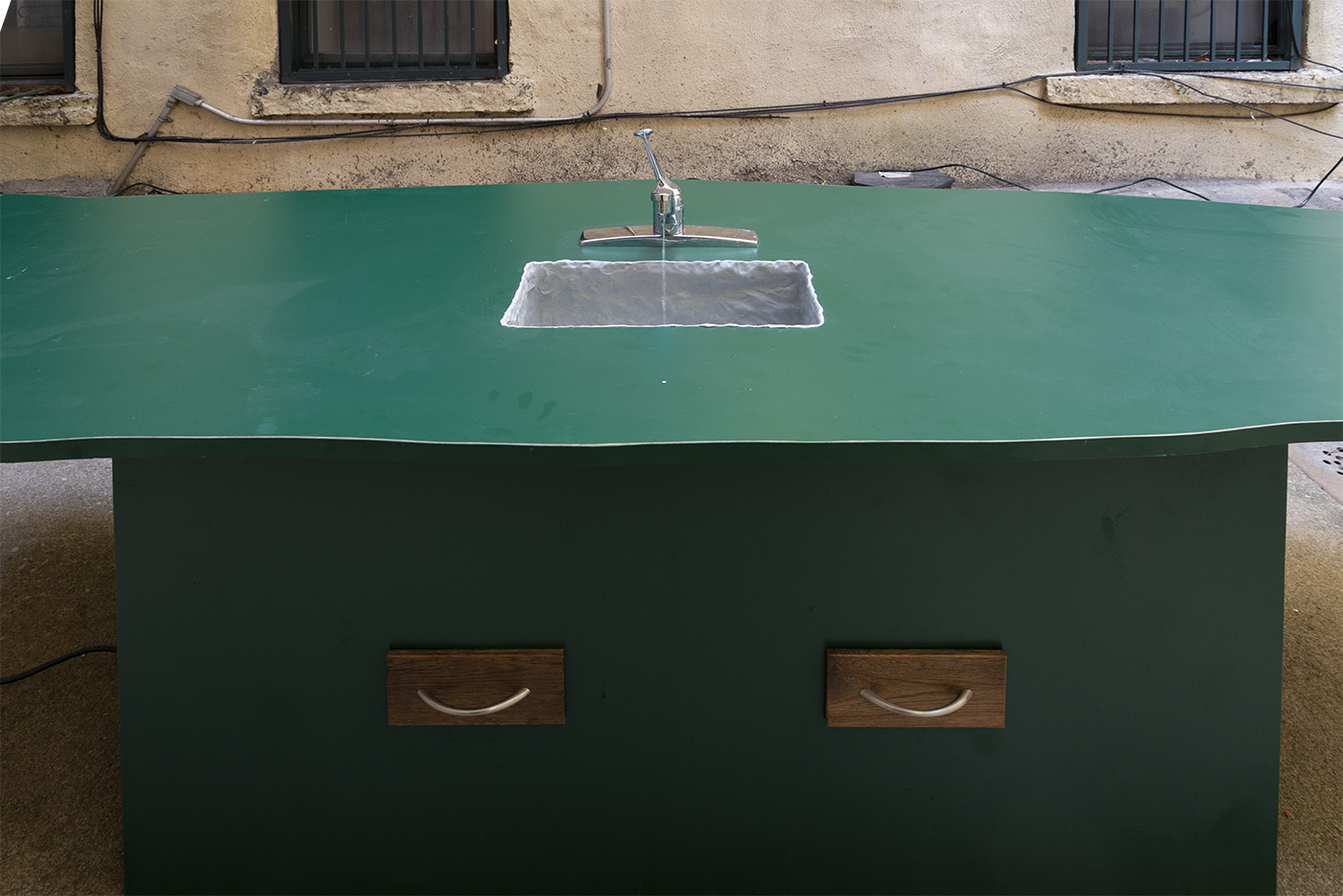
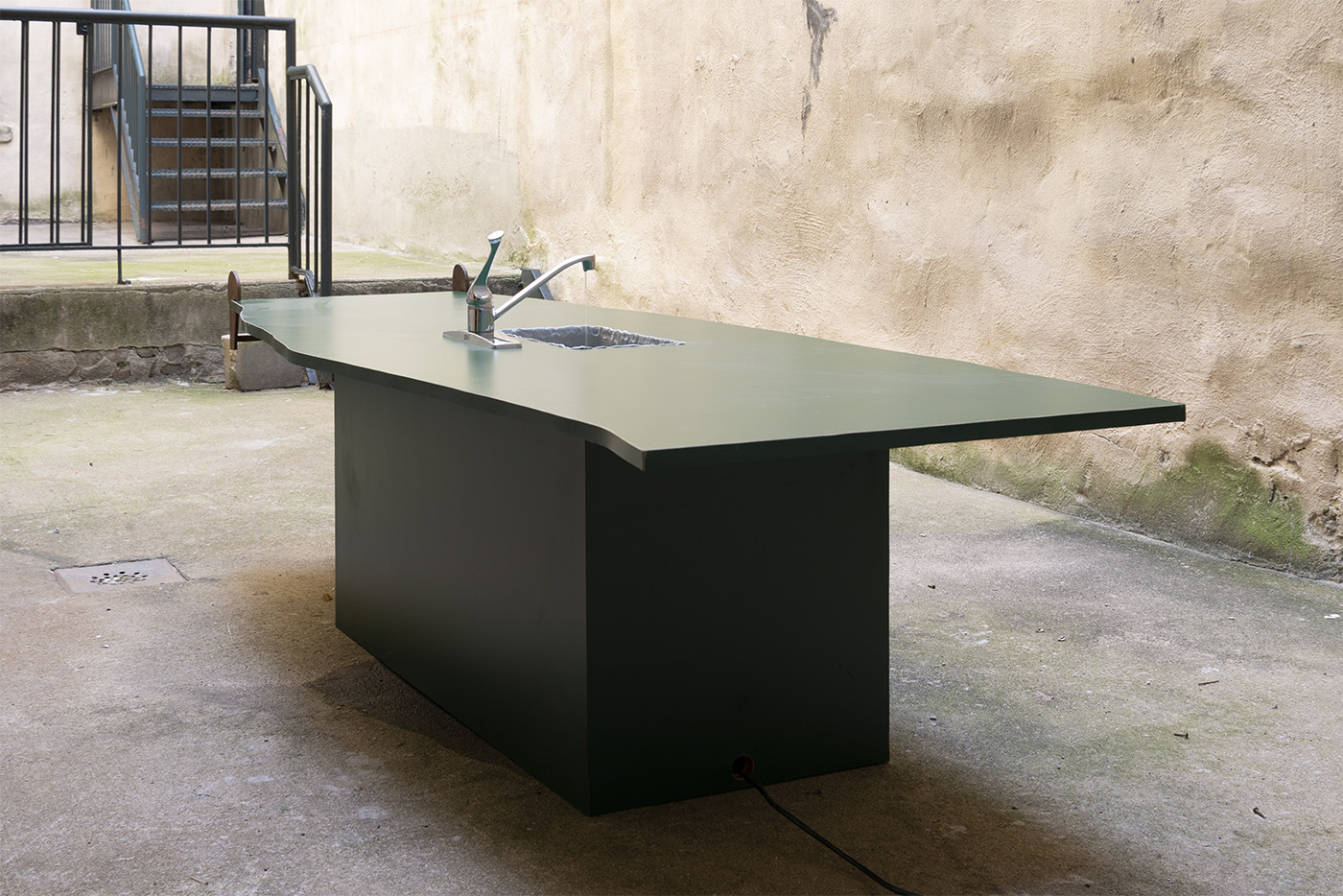
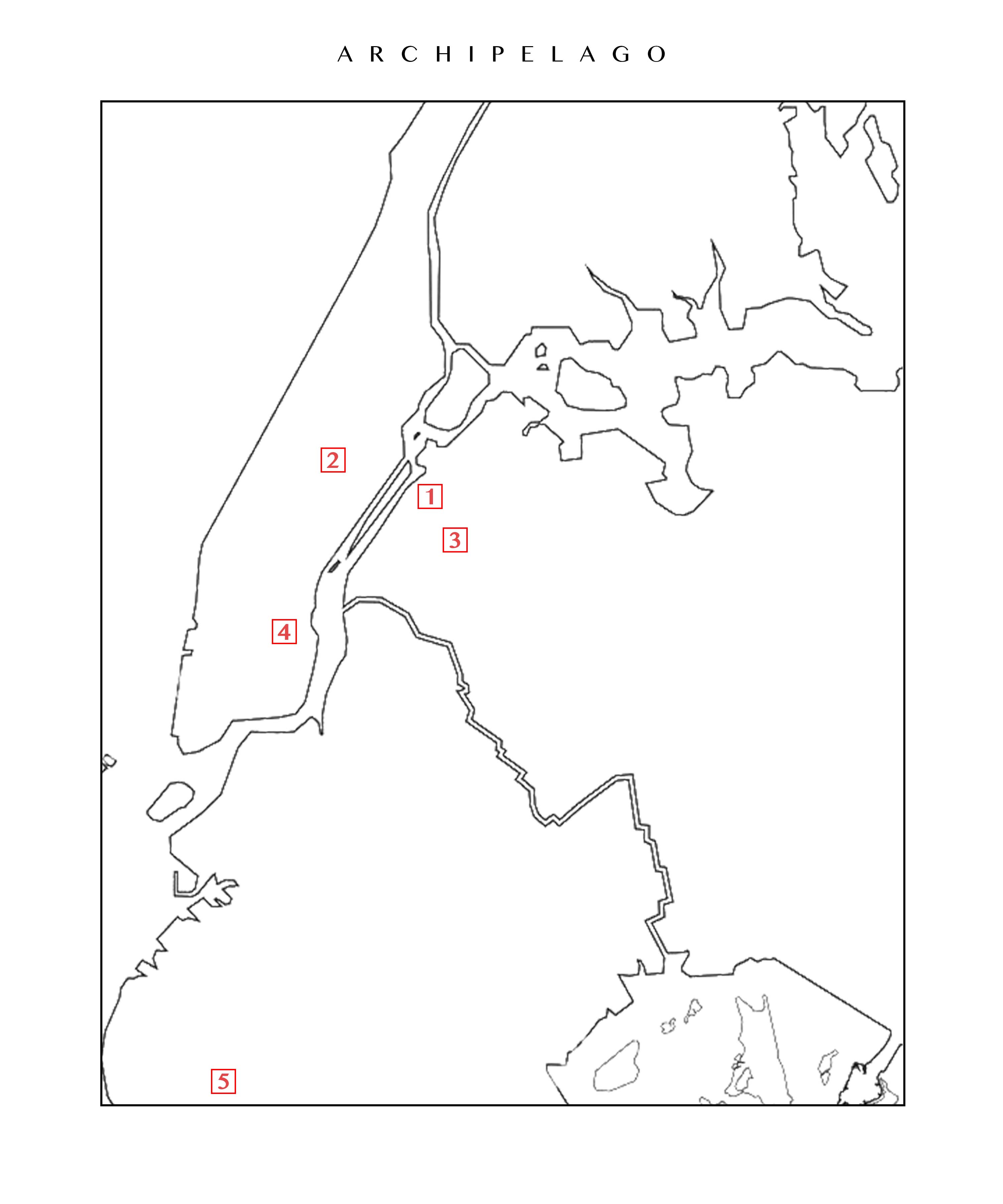
USER'S GUIDE
To the HOUSEWIFE: The pepper trees grow dim with dust. It has been a summer without rain, as ever. We irrigate to propagate: Annex Arid America! For the union makes us strong.
The worker’s duties are as follows: Preparation of food materials, care of fires, cooking, table service, and cleaning of dishes, utensils, stove, etc., per meal—breakfast two hours, dinner three hours, supper or lunch one hour—adds up to six hours per day for food service. Daily chamber work and dusting, etc., one and one-half hours per day. Weekly cleaning for house of nine rooms, with halls, stairs, closest, porches, steps, walks, etc., sweeping, dusting, washing windows, mopping, scouring, etc., averaging two hours per day. Door service, waiting on tradesmen, and extras one-half hour per day, for a total of ten hours per day in labors, from six-thirty a.m. to eight-thirty p.m. Fourteen hours total minus four hours for meals, half an hour apiece, and half an hour in the morning to rest—and two in the afternoon, spent riding around in electric cars. Rate of payment: $1.50 / day.
The climate should be favorable to outdoor going-about. Climbing rose and oleander will be found nodding over the town wall.
The townspeople will jeer at your union, branding it a School of Theosophy; a Christian Science College; a Free-Love Colony; a Secret Society; a thousand wonders. Pocket their pennies and pay no mind. Leaven the earth with a thousand hand-delivered sandwiches.
Bake the bread in long cylindrical pans, cut by machine into thin even slices. Fill your sandwiches with fish, flesh, and fowl; cheese and jelly and fruit and vegetables, named and numbered to suit the general favorites. Grind the crusts into crumbs for cooking.
Start by feeding five families. Escalate to twelve, targeting veterans and the infirm. You will need a cafeteria to keep the delivery workers fed; furnish it with flat-armed chairs, good food, comfortable seating, newspapers, magazines, cigarettes.
The men about town like to gripe, calling your sandwiches picknicky makeshifts, railroad rations, bread, and leavings. But there’s no scum on the milk and the cream’s real cream; the food’s good, the coffee’s good, and everyone gets richer in the end.
+++
A dry wind blows through Orchardina. The irrigation line runs dry; devils ride in the greenbelt, setting the data to flame.
GOODBYE TO ALL THAT.
For a world without gender, we must build houses without kitchens!
Exit the Procrustean bed and enter Kitchen Island, Kitchen Roadtown, Kitchen of To-morrow, Kitchen del Rio, Yelping Kitchen, Kitchen of Kollontai.
First revolutionary measure: suppression of private kitchens. A city of 10,000 needs just 640 dusty acres. In the civic center, construct eight rectangular halls like factories of glass and iron, flanking a domed assembly, with kitchens sufficient to feed the entire community. Housing units should be arrayed around the kitchens; bedchambers must be minimized, along with all other vestiges of fatal privacy. Life is to be lived outdoors on the patio, under the pergola. Each evening, hot meals in special containers will arrive from the central kitchens, to be eaten in common on the dining patio; dirty dishes are then returned to the central kitchen for machine cleaning. Built-ins and roll-away beds liberate housewives from dusting and sweeping; heated tile floors replace dusty carpets, and windows with decorated frames obviate curtains and their demonic upkeep. Each kitchenless house will be connected to the central kitchens through a complex underground network of tunnels, with railway cars relaying cooked food, laundry, and other deliveries to peripheral hubs, from which small electric cars are dispatched to each house’s basement.
Each child of the city should be given a rifle and taught to guard the irrigation.
The Feminist flat is revolutionary, strikes at the root of the economic system, and may involve vast readjustments of land-tenure, communal building, and taxation. But we are not afraid of revolution, for we are the pioneers of a sex-revolution!
+++
There are curtains and potted geraniums in the communal dining room, your pride and joy. Following an incident with a married couple, the Feodoseevs, rules have to be laid down: everything has to be paid for in cash upfront – water, electricity, rates, taxes, everything. Nothing comes of it, though: The new economy is one thing, but money is another, and no one has it. You make a trip to Moscow to bang on the doors of bureaucrats, and manage to eke out a subsidy for repairs. You return to the house in triumph, but the Feodoseevs continue their tirade, this time accusing you of rigging the household ledgers. Weighing the evidence, the house committee decides in your favor: the Feodoseevs are to be evicted at last.
Winter is ending, but the house remains a headache. As the sparrows begin to sing, your heart hardens to the community.
You receive a letter from Volodya:
Please Vasya, don’t torment me anymore, because I can’t put up with much more of this. You’re always promising to come and see me, but then you keep putting it off. If only you knew how unhappy you were making me! So, my little fighter’s been scrapping with everyone again, has she? There have been rumors about you even here, you know! Some people say you’ve even been in the newspapers! Now that you’ve won your victory, surely you can spare the time to visit your Volodka, who loves you so very much and longs to see you. You’ll be amazed how grandly we’ll be living from now on. I’ve got my own horse and cow, and there’s always a car at my disposal. We’ve got a servant too, so you won’t have to worry about the housework and you’ll be able to put your feet up. Spring is well and truly here and the apple-trees are covered in blossom. Do you realize we haven’t spent one spring together yet? Our life together should be one long spring, shouldn’t it, my darling! I really need you especially badly now. I’m in a bit of trouble with the Party committee. They’ve made some allegations against me, bringing up my anarchism again. Please, Vasya, you must help me clear this whole business up. I’m sick and tired of these petty squabbles. They make life impossible! It’ll be hard for them to criticize me, because I work well, but I do need you all the same. I kiss your brown eyes. I shall always love you, always, your Volodya.
+++
Toward a political genesis: the end of the division between women ‘who do work’ and women ‘who do not work’ (they are ‘just housewives’)!
We are told that serious politics is not kitchen business and that our struggle to liberate ourselves as women—our struggle to destroy our work in the home, our relations in the family, the prostitution of our sexuality—is definitely subordinate, or at best auxiliary, to the ‘real class struggle’ in the factory. Why is this so?
Today the left is more cautious but not less determined to tie us to the kitchen, whether in its present form or in a more rationalized, productive one. They do not want to abolish housework, because they do not want to abolish factory work. In our case, they would like us to do both kinds of work. As to the rationalization and socialization of housework (canteens, dormitories etc.), capital has often toyed with this possibility, for in terms of pennies such rationalization might be a saving for capital.
GOODBYE TO ALL THAT.
The knife that draws the line is feminist, but what it divides are not men from women, but the technocracy from the working class it aims to supervise.
Cut with the kitchen knife.
- Daniel Marcus
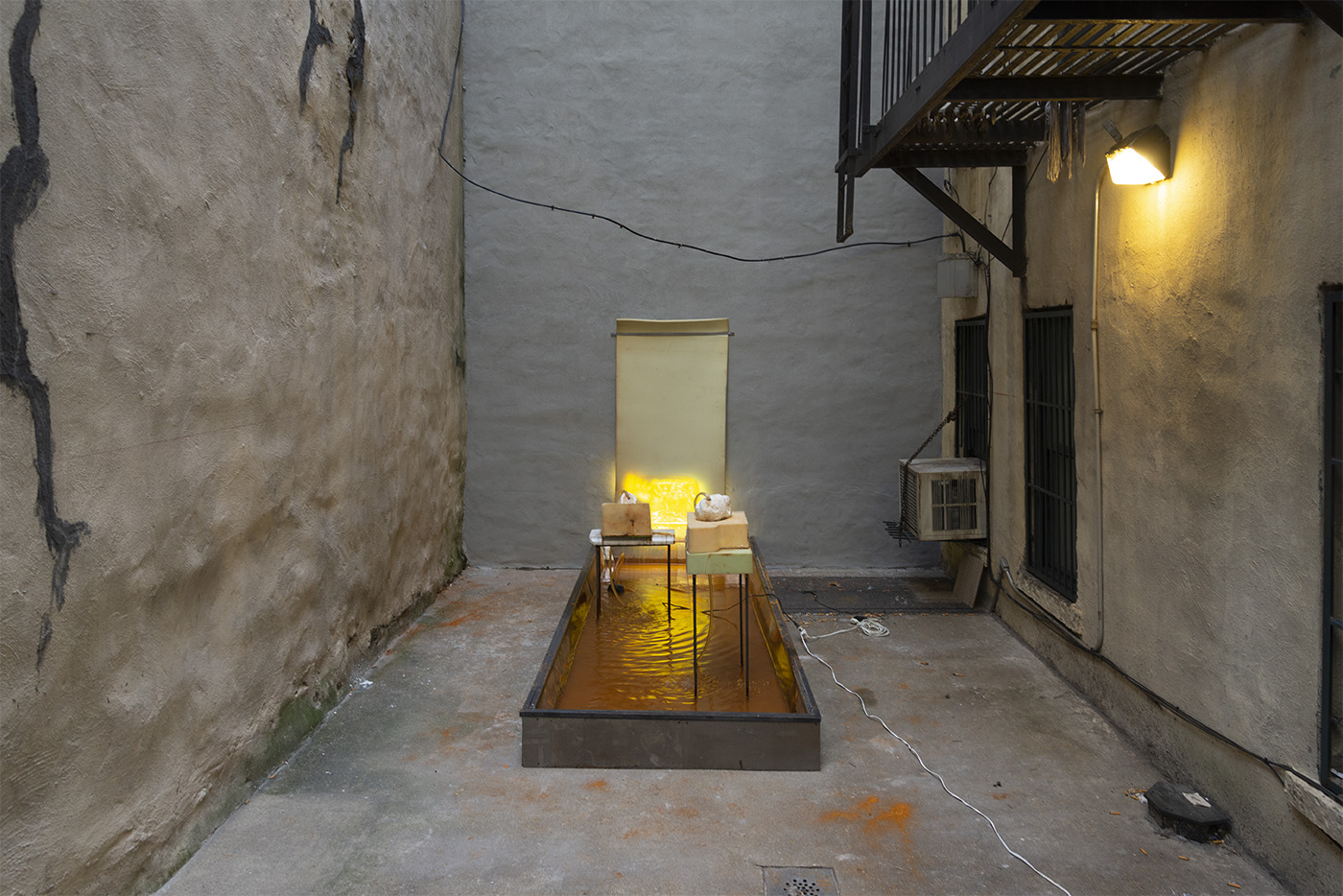
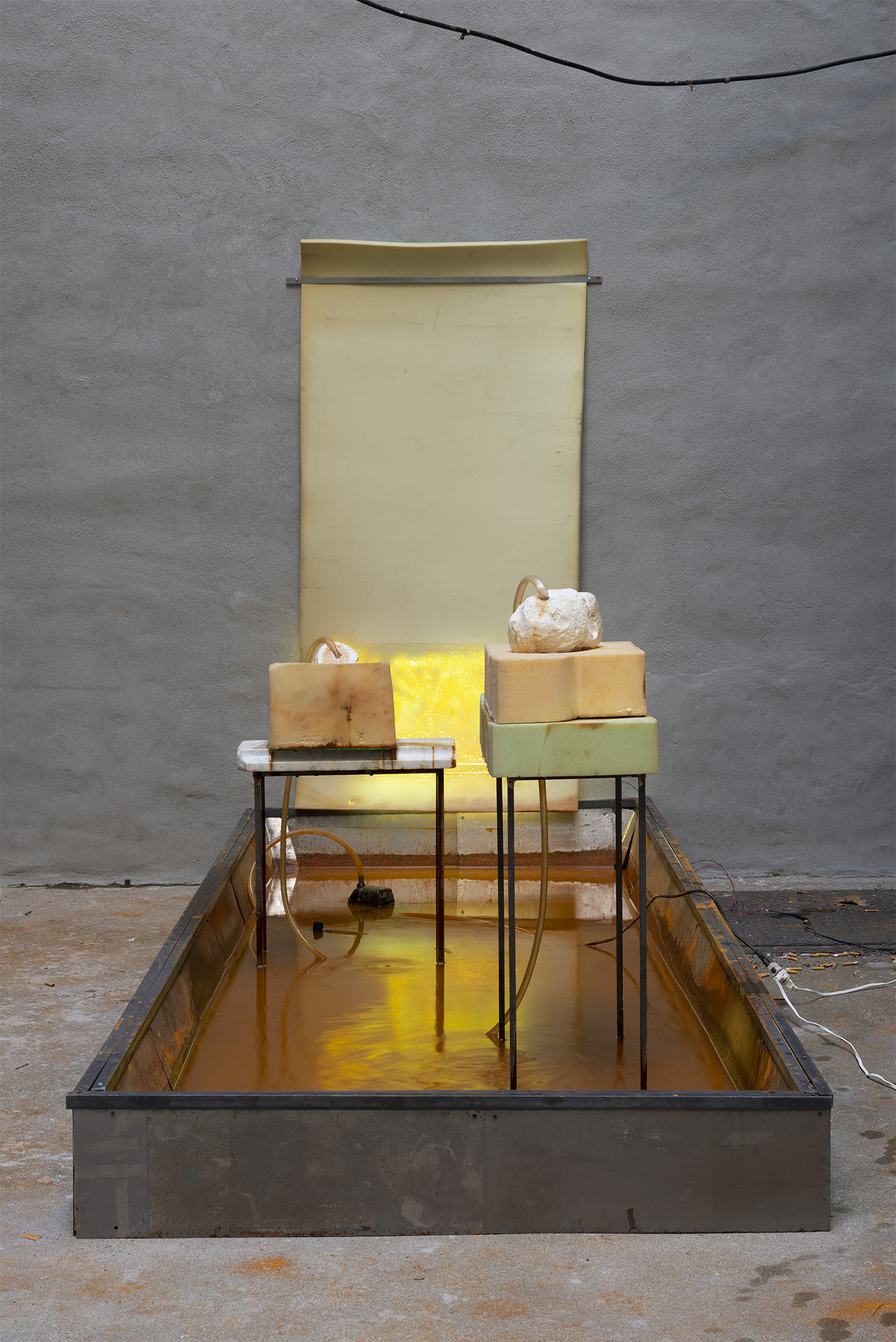
Veritas, 2018
Water, steel, tarp, pump, foam, lights, wires, plastic tubes, glass, wood, marble

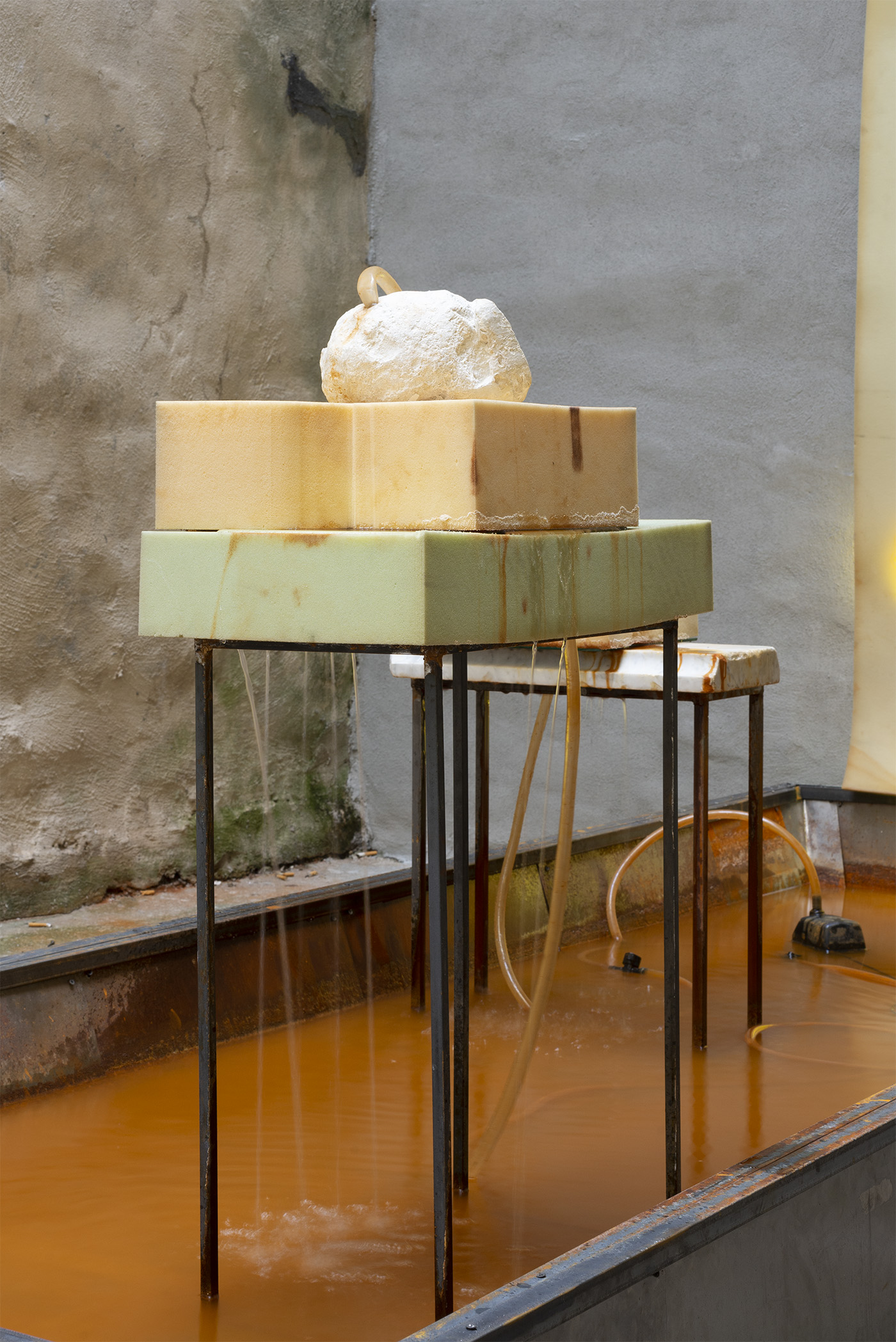
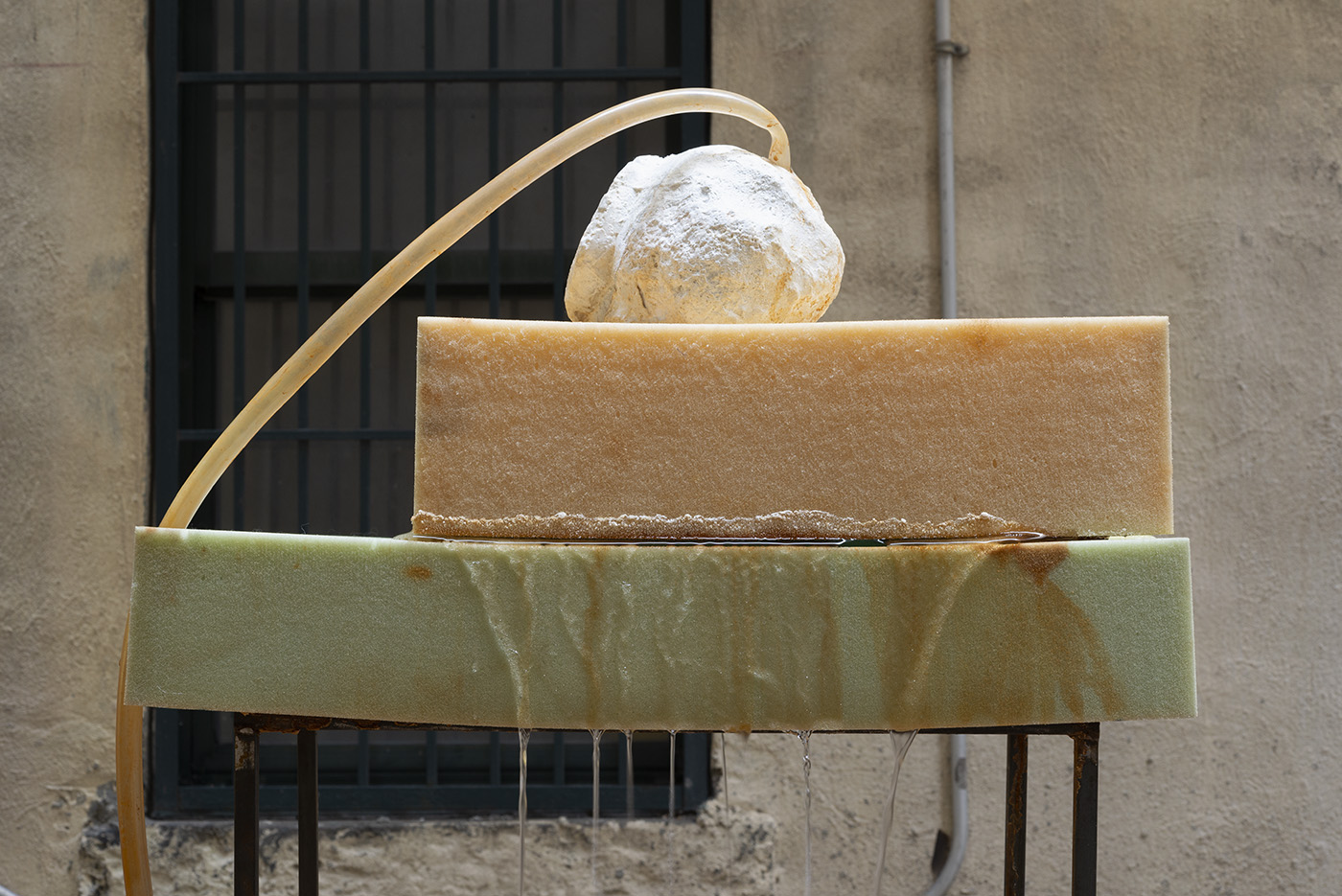

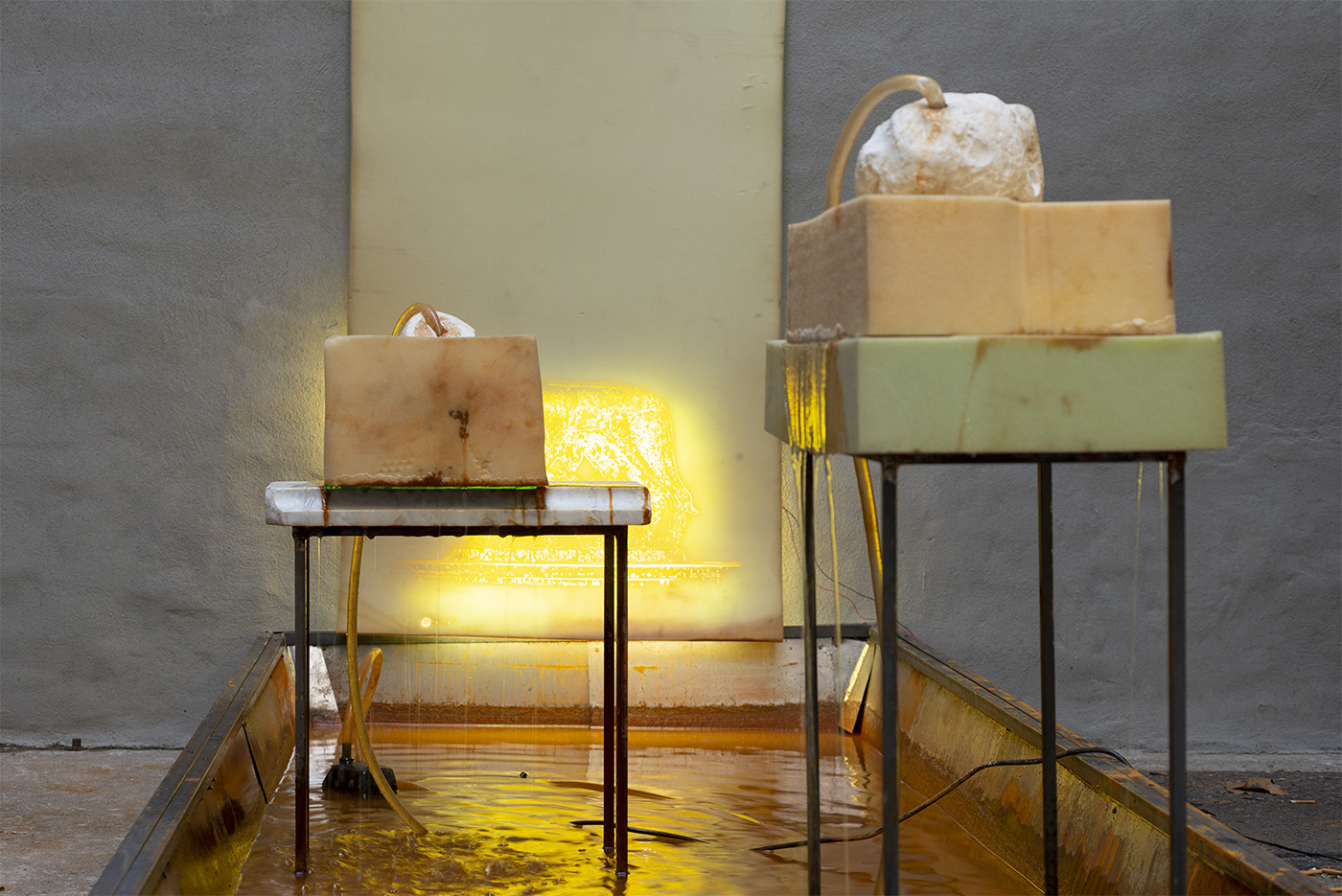
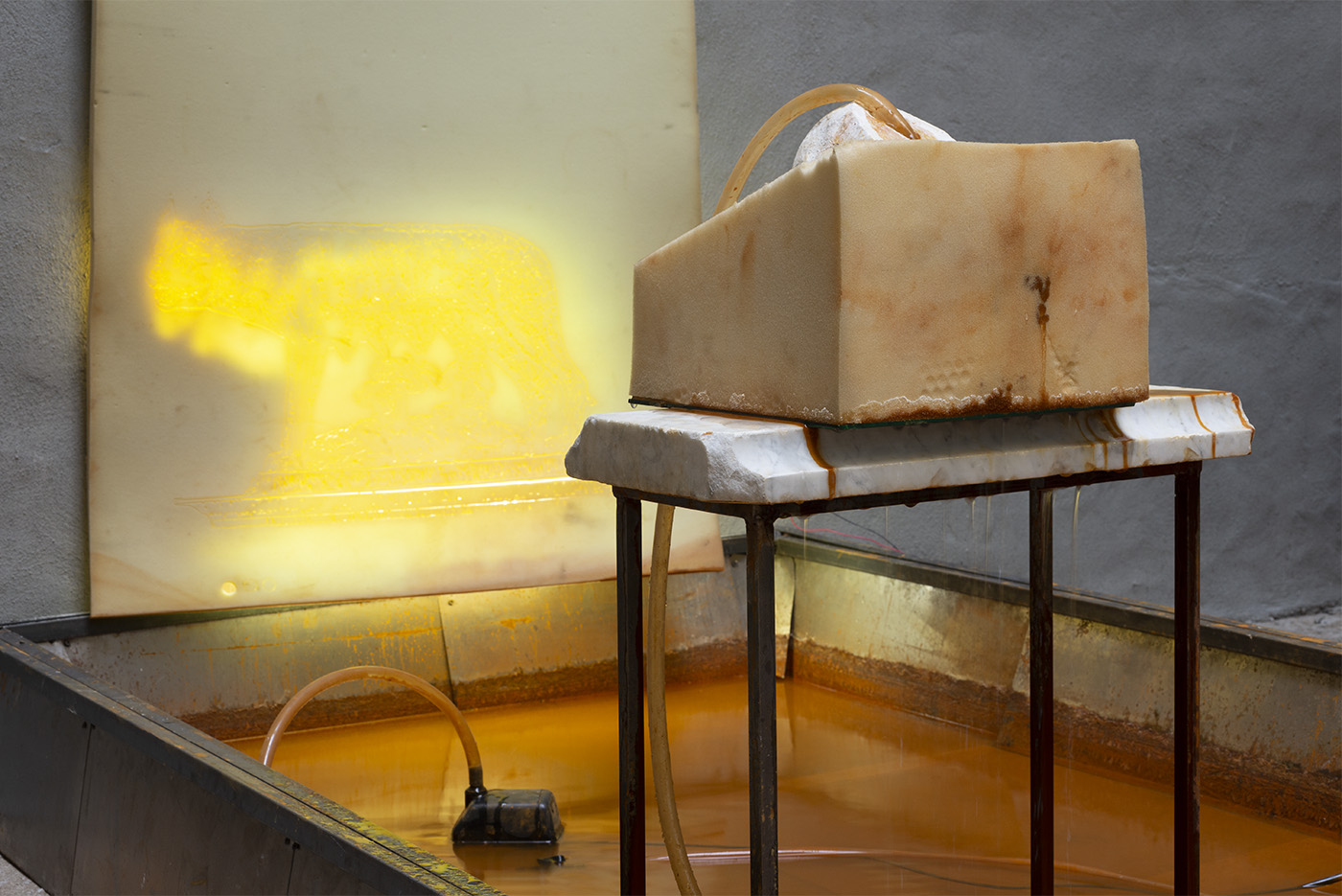

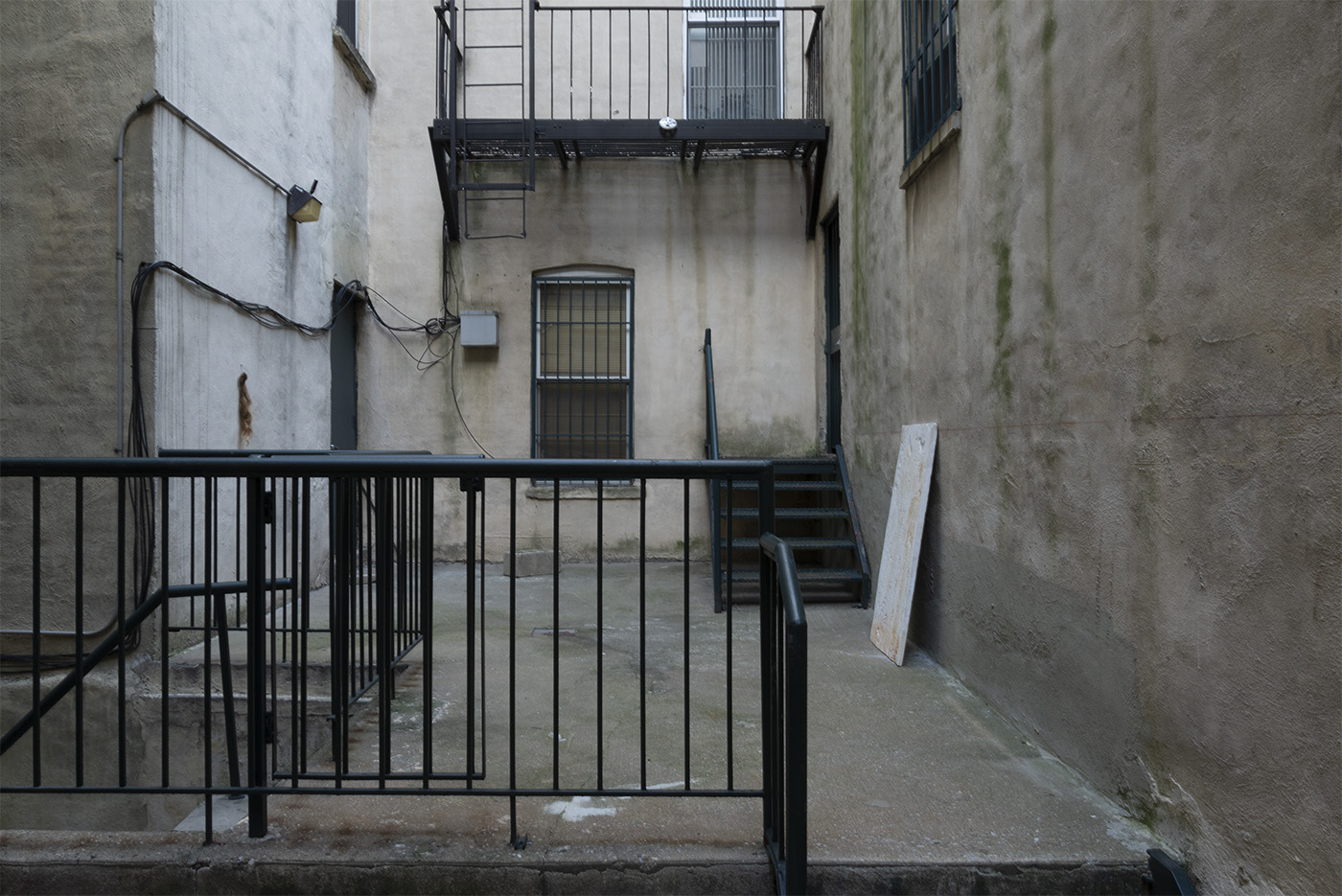


My Mother's Hair, 1970
Hair, wire
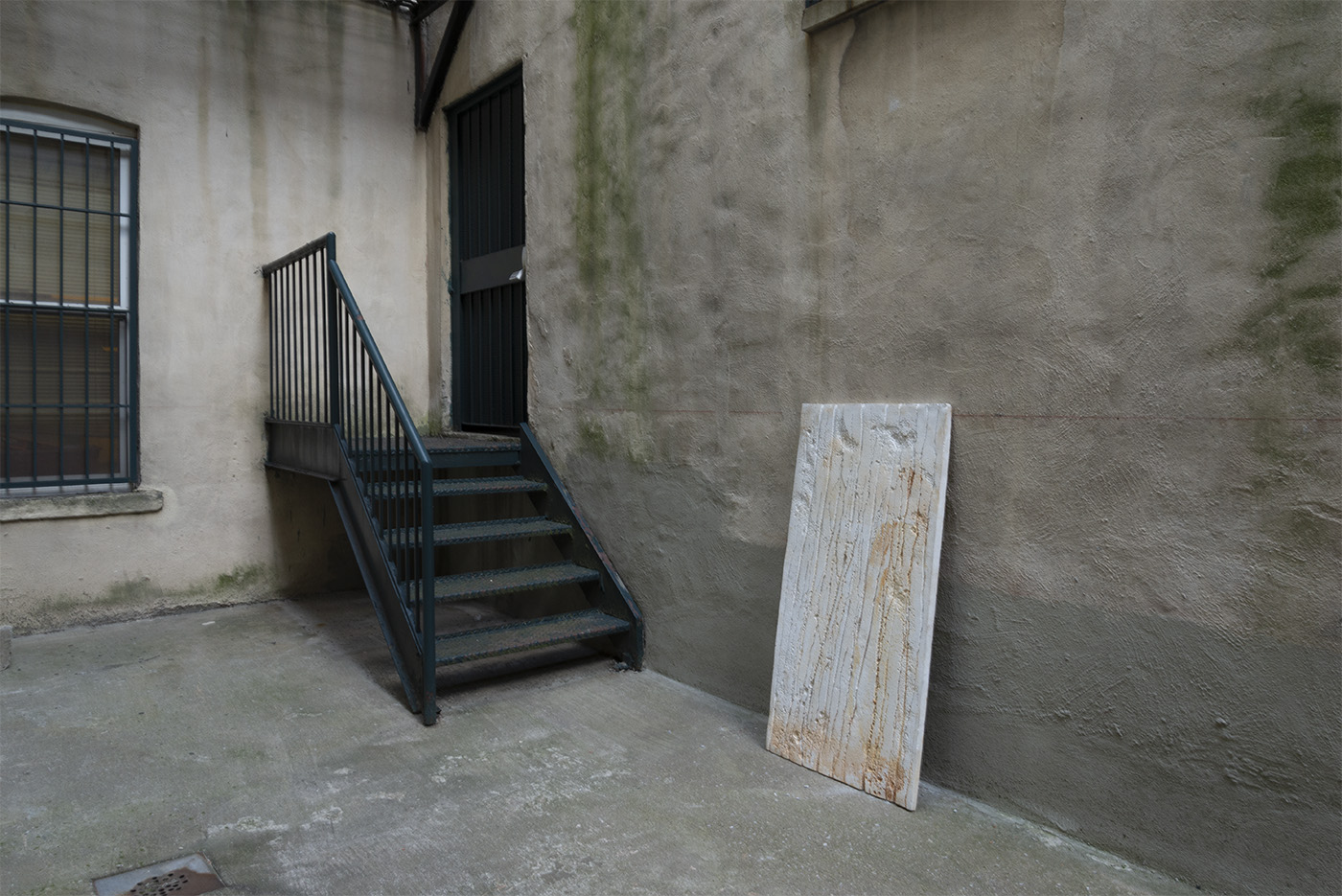

Linen 1, 2018
Cement dipped in rusted water
Every day except for Sundays
You would hear the merry Lavoir
Women scrubbing, whitening, laughing
The green water
From the neighboring hill
Still hides the echo
Of their gossiping thrill
I sit by its side
The cold stone is as smooth as a mirror
I can almost see my reflection
Or is she my ancestor?



Maison d'Angelo, 2018
Paperboard, cardboard, various fabrics, newsprint, aluminum foil, LED battery-powered light, styrofoam netting, glitter, trim, Savannah lenticular magnet, lapis lazuli elephant figurine, paper platform, colored pencil, rhinestones, Play-Doh, bottle cap, miniature ceramic amphora, plastic shoe, beads, chains, glass bottle, spectacles, Japanese hand-painted eggshells, silver earrings, wooden chest, Magic 8-Ball, champagne bottle cap, wood, miniature plates, miniature pies, antique travel alarm clock, miniature camera, shoe-shape rod, sand dollar, miniature teacup and saucer, measurement conversions acrylic magnet, miniature ramen bowl, glass, wire, metal pencil sharpener, dominos, miniature metal console table, faux flowers, Altoids® tins, miniature metal chairs, plastic prescription vial, rock
33.25 x 35 x 32 in





Maison de Mario, 2018
Paperboard, cardboard, various fabrics, newsprint, plastic containers, mohair, wire, brass chain, glass drawer knob, LED battery-powered light, acrylic box, rubber finger puppet, miniature piano, metal jar lid, gauge vinyl, plastic beads, metal jumprings, shoe-shape rod, sequins, metal bottle caps, plastic Christmas tree ornament, brass snail, miniature mattress, antique miniature wooden furniture, miniature rubber snake, novelty oversized Kennedy half dollar coin, embroidered patch, New York Jets squishy souvenir toy, dyed silk ribbon, miniature bread bag, miniature metal chair, Ellis Island lenticular souvenir, pearls, KB Imports Murano glass paperweight, No. 2 pencils, miniature plastic dog bed, seashell, antique whiskey bottle name plate, antique miniature tennis racket, antique doll dress, Victoria's Secret Pink dog toy, lampworked glass fly
33 x 36 x 12.25 in




Maison de Bob, 2018
Paperboard, cardboard, various fabrics, newsprint, glass tile, paper stars, rhinestones, sequins, LED battery-powered light, plastic beads, Antique glass paperweight, vinyl patch, Japanese handpainted eggshell, Muji™ glass toothbrush stand, abalone boxes, John Deacons Scottish glass paperweight, resin Bula-Fiji guitar keychain, metal jar lid, plastic spoon, Altoids® tins, miniature ramen bowl, Sculpey, miniature smoothie cup, ornamental faux plant, silver earrings, US dollar bill origami, Urban Decay® by Skindinävia Chill Cooling & Hydrating Setting Spray bottle cap, wire, seashells, shoe-shape rod, antique cat humor magnet, acrylic, foam core
26 x 32 x 19 in






You wait for signs, 2018
Gouache and rhinestones on paper
22 x 30 in




Clam Chowder, 2018
Dibond aluminum print

Coffee and Tea, 2018
Dibond aluminum print



Untitled, 2018
Salt, wood

Bird Feeder 3, 2018
Steel, aluminum, various nut and seed mix, vegetable shortening, chandelier





Unattainable Hottie, 2018
Wood, cotton






Thank you. Thank you. Now I would like to talk about how the Bush administration covered up the tapestry of Guernica by the entrance to the U.N. Security Council with some blue curtains [ears] so that those poor ladies wouldn’t have to watch Colin Powell’s W.[mouth] M.[eyes] D.[nose] slideshow. Nelson Rockefeller commissioned that tapestry and gave it to the U.N. to promote peace on earth. What would he say about such hijinks? He who had Lenin sandblasted [whiskers] off his Diego Rivera mural might have offered valuable insight! Oh those poor Guernican gals! With their hands like baseball mitts and their ears like clam fritters, [muzzle] forced to listen while Secretary Powell made his terrible case. I hope they find peace and quiet. Once in Italy I saw a painting of a damsel. She had a an ivory bosom and dimples [pupils] where her knuckles should have been. She was in the middle of a gilt frame in the middle of a great hall [muzzle, head] where nobody was saying anything. I hope they find peace like that.”, 2018
Oil on linen
60 x 45 in (152.4 x 114.3 cm)

The job of us artists is to draw new lines. All the old lines are straight [whiskers], even the curvy ones and us artists gotta draw new ones. Us American artists, we thought the road was really something. For a hundred years we poked at its vanishing point [mouth] with our thoughts. Like sea lions we thought we could balance our dreams on its pointed tip [nose]. Like sea lions we were wrong! Us artists need to learn more from the Parisian Communards who barricaded the streets but pierced the houses [eyes, pupils] and flowed that-a-way. They “found flowers [muzzle] which are chairs” said Rimbaud confusingly. Oh artists! We are the Most Influential Artist’s of 2017 yet we must be influenced in turn. Let us remember to gaze upon that the tear shaped cloud of starlings [ear] gyrating over Central Park South and to wonder at their reflection in a glass facade [ear] as we turn to enter the Apple Store., 2018
Oil on linen
60 x 45 in (152.4 x 114.3 cm)

There were six long art students, thin like spaghetti, standing around the nude model [whiskers]. The model posed with her head thrust forward and her fingers locked together behind her back [nose, mouth]. Her stage was a little round platform with a blanket thrown over it [muzzle]. The art students looked up at her and one by one broke their vine charcoal into two pieces [pupils]. They rubbed the black sticks onto pads of newsprint until the shape of the powder that crumbled off resembled the shape of the model. Meanwhile, the teacher sat by the window and fiddled with a paint flecked oval boombox [head]. He carried it around the room like a thurifer, trailing plumes of static. He waved it about, and pushed its antennae this way and that [ears] until, finally, it shouted “Autozone!” , 2018
Oil on linen
60 x 45 in (152.4 x 114.3 cm)

The Pfeilstorch smiled when he met his arrow [nose, mouth]. Two clouds recoiled, grew dark [eyes, pupils] and cried [whiskers]. Acacias and baobabs sighed in the rain [muzzle]. Somehow the Pfeilstorch flew on. The hunter bent his bow [ears] in frustration but it would not snap. The limp string [head] brushed against the savanna but the bow would not snap. , 2018
Oil on linen
36 x 24 in (91.4 x 61 cm)
.jpg)
.jpg)
.jpg)
.jpg)
.jpg)
.jpg)




A Monument to Chronology should be made of copper, so patina can record it's days under the sun.
A Monument to Chronology should not be too large or too small, but find presence somewhere between.
A Monument to Chronology should be stacks of things, like the sediment of time in layers.
A Monument to Chronology should mimic the growth of a tree with sheets of paper, one after the other in diligence.
A Monument to Chronology should evoke the space of a second within a minute within a day within a month within a century, and be strung together with a rod through it's core.
A Monument to Chronology should be etched with drawings of circles and all the shapes we see in nature, like the man in the moon.
A Monument to Chronology should be a tool for measurement, telescoping forwards and backwards to represent all time - for everyone.
A Monument to Chronology should be a cloud by day and a pillar of fire by night, to help in remembering "the torch was lit from another before you, and another and another before that . . ."
– G.W.W.




Enviro-mental, 2017
Braille sign, acrylic



Antique sentiment (Pieta), 2017
Charred wood, paint


Le Decrottoir (The Shit Scraper), 2017
Knife, blue stone, steel, bristle brush
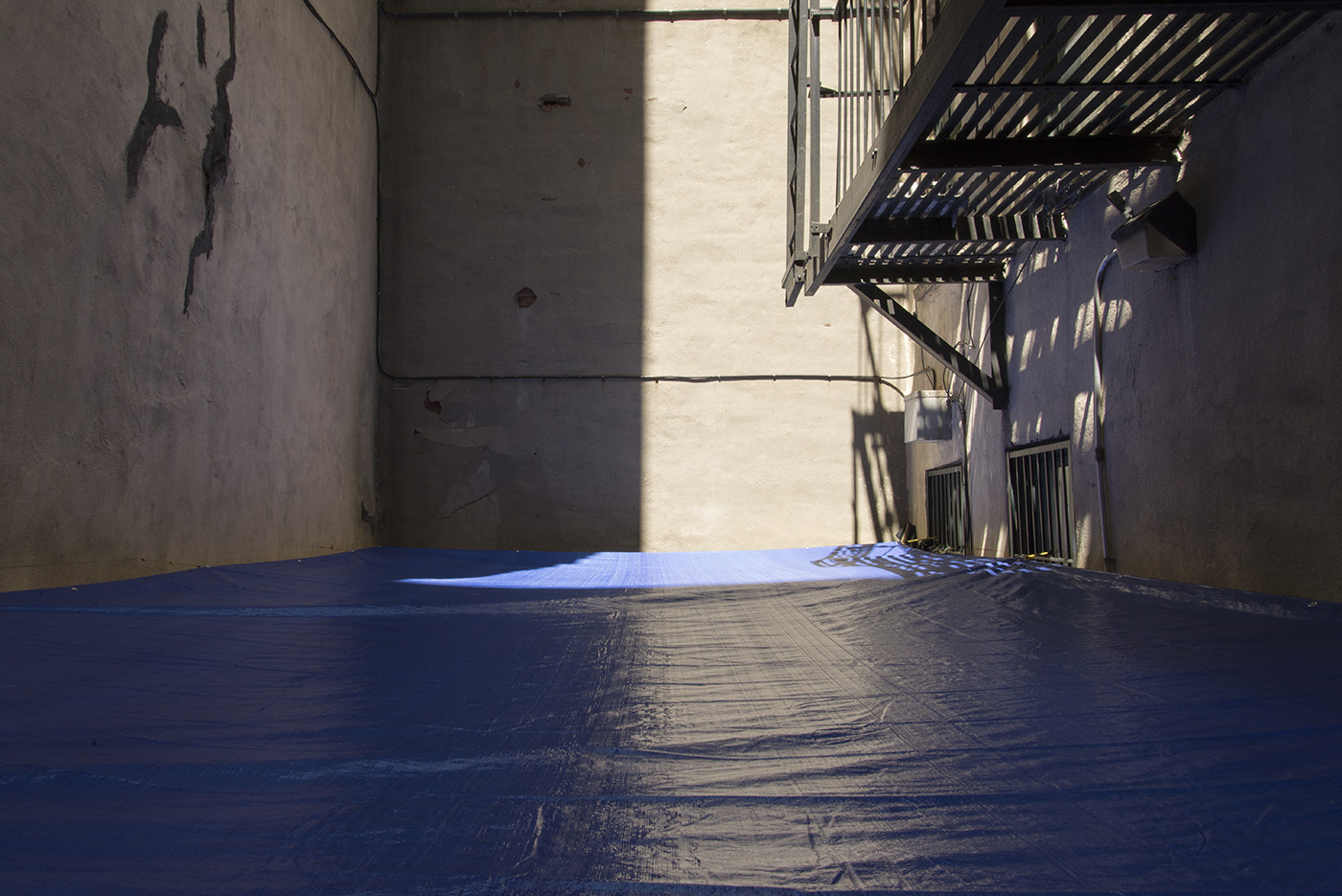
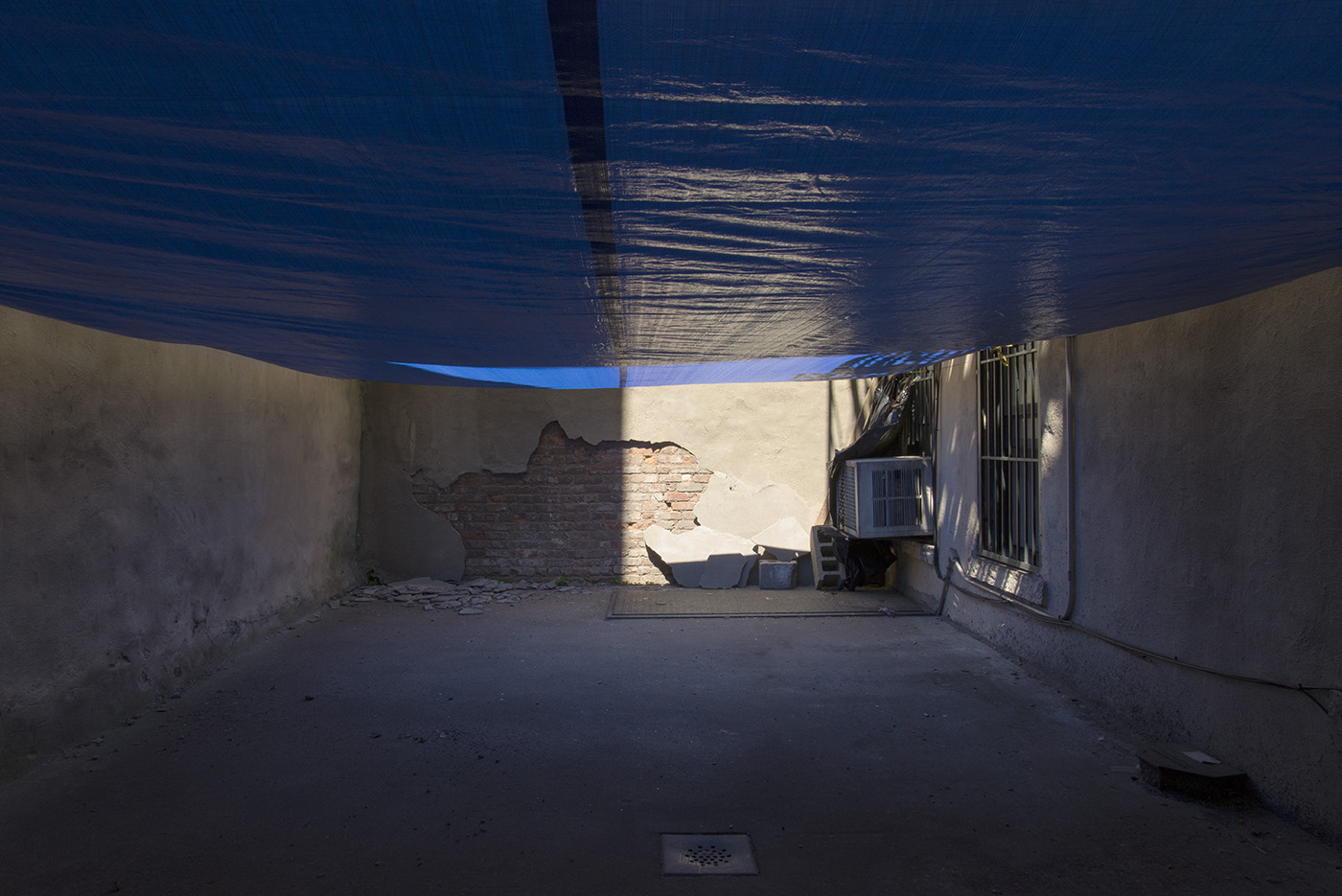

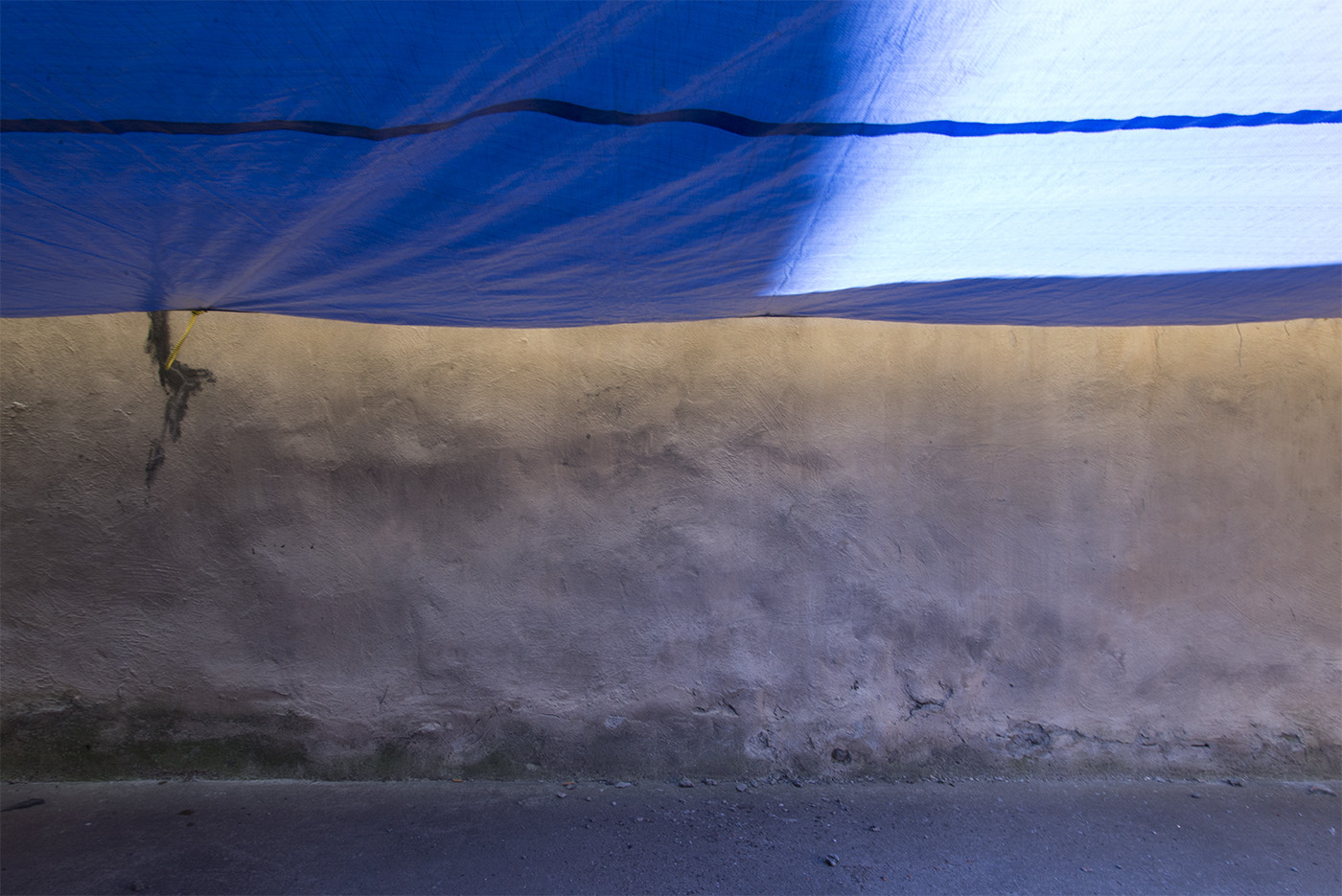
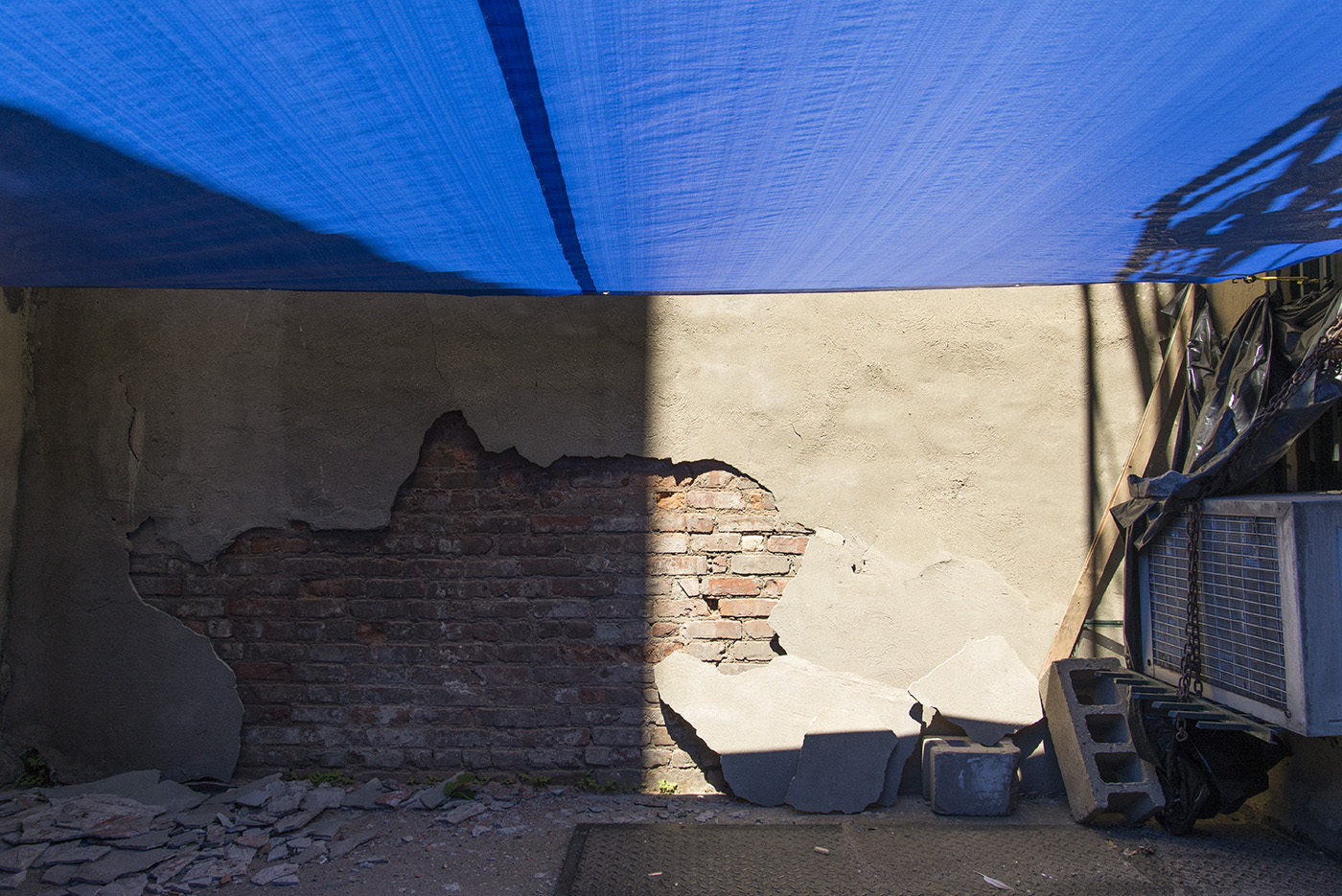
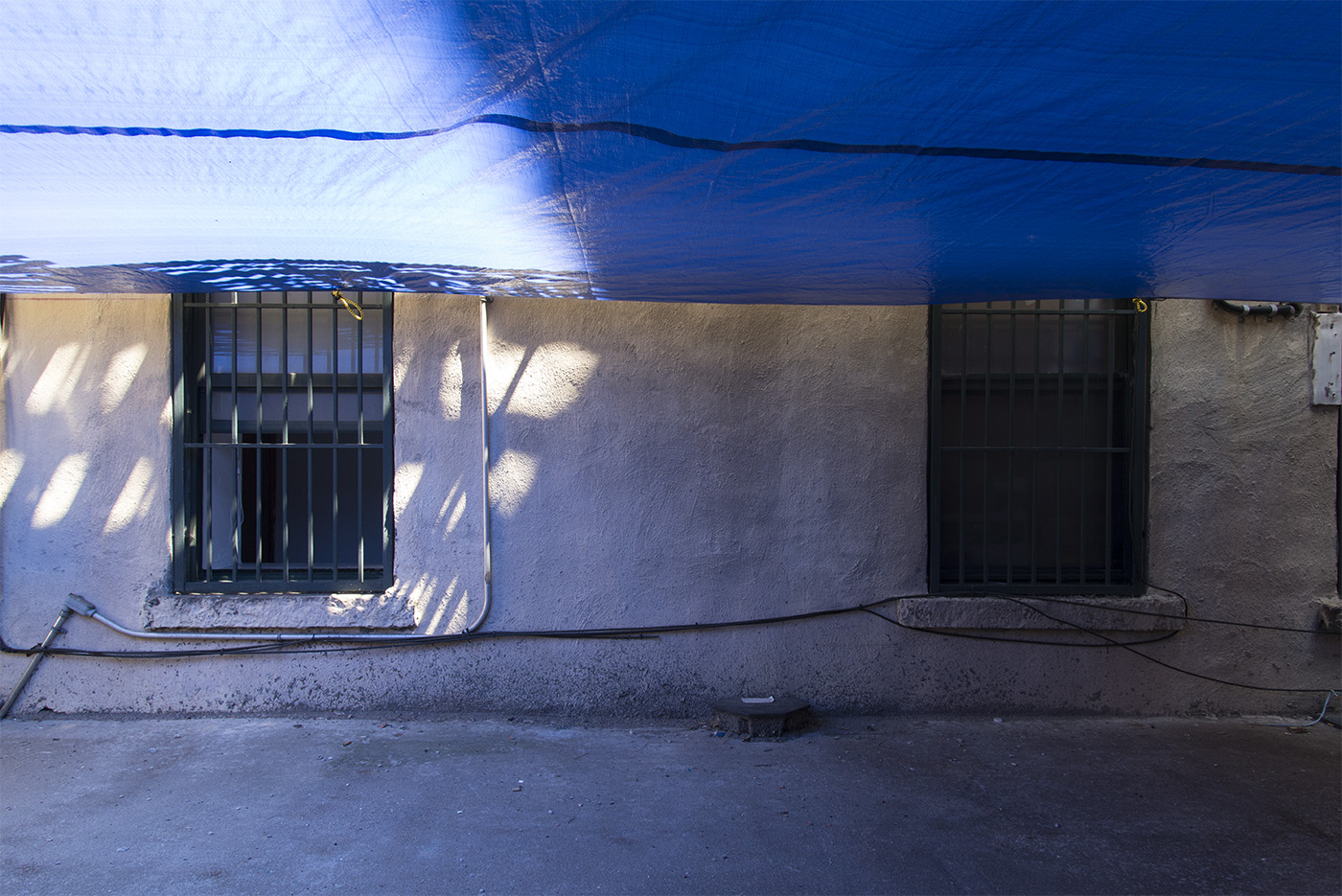
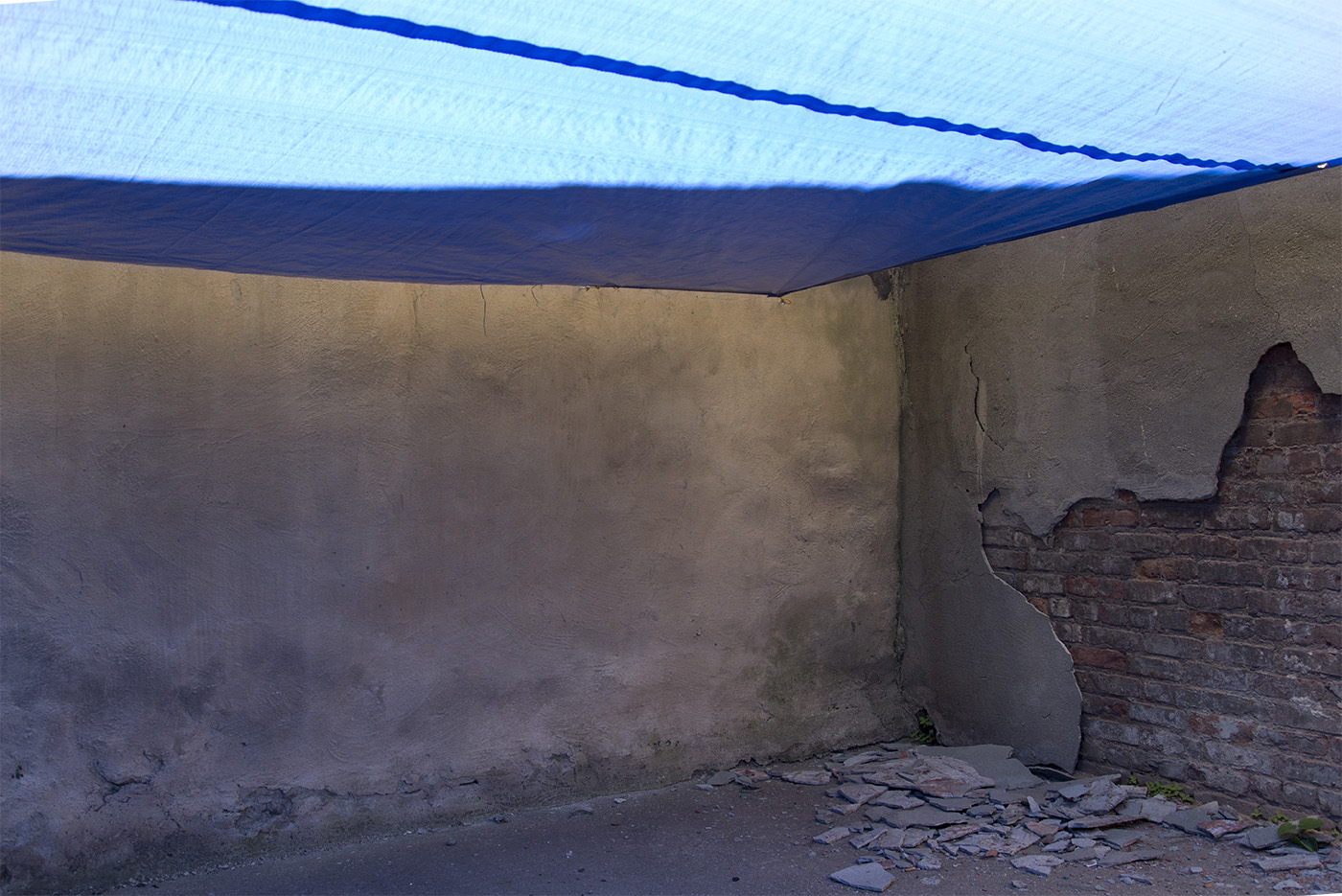

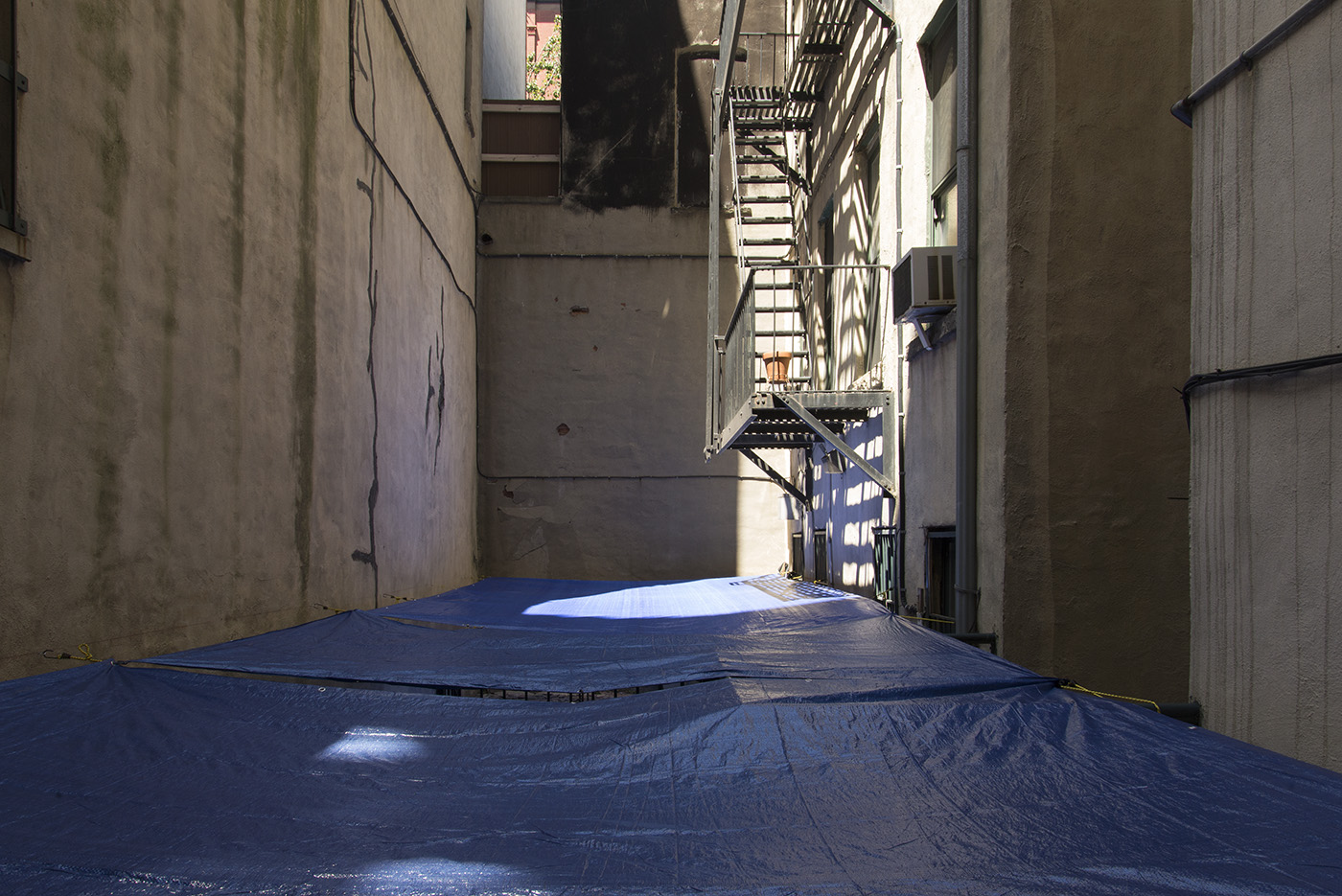
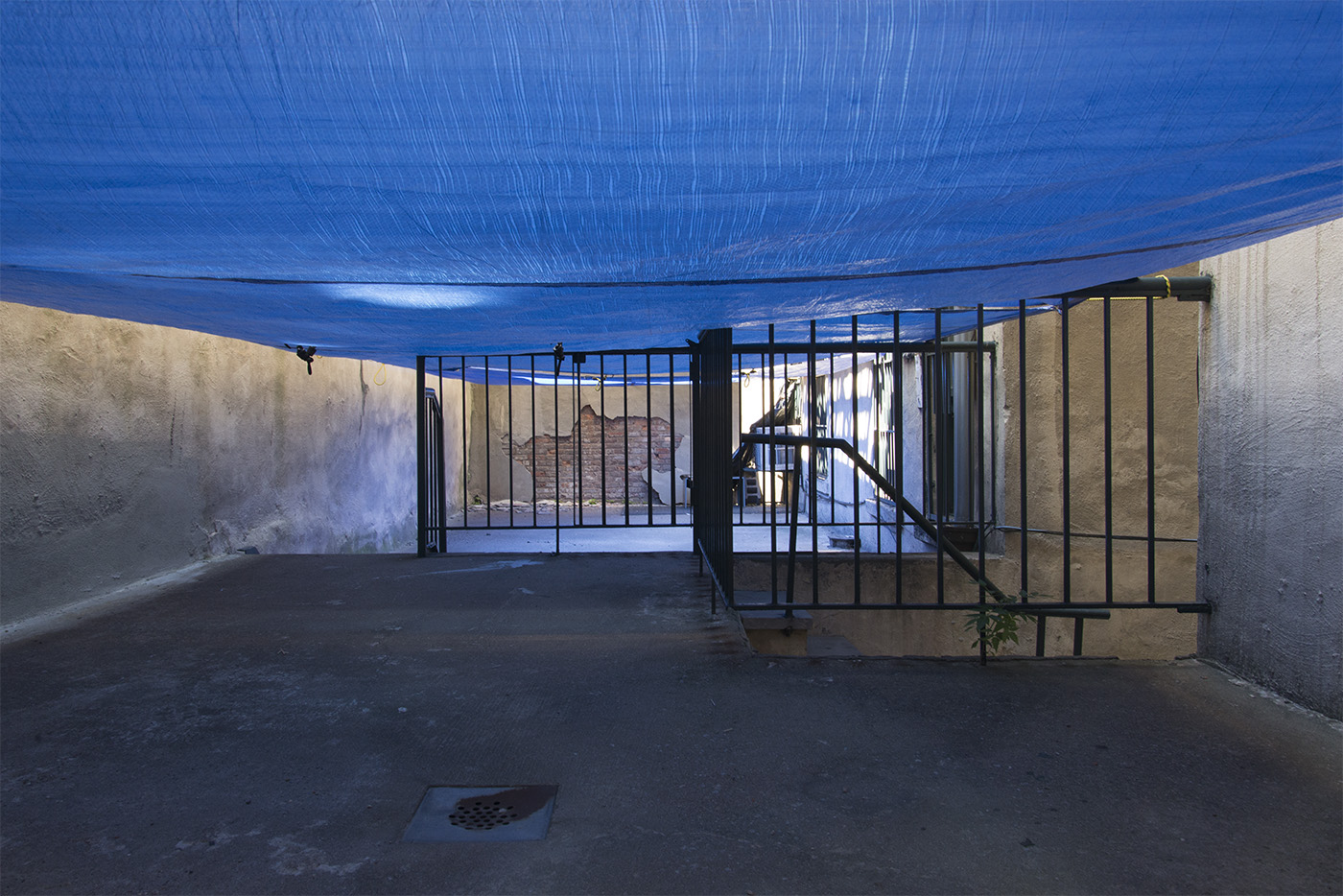
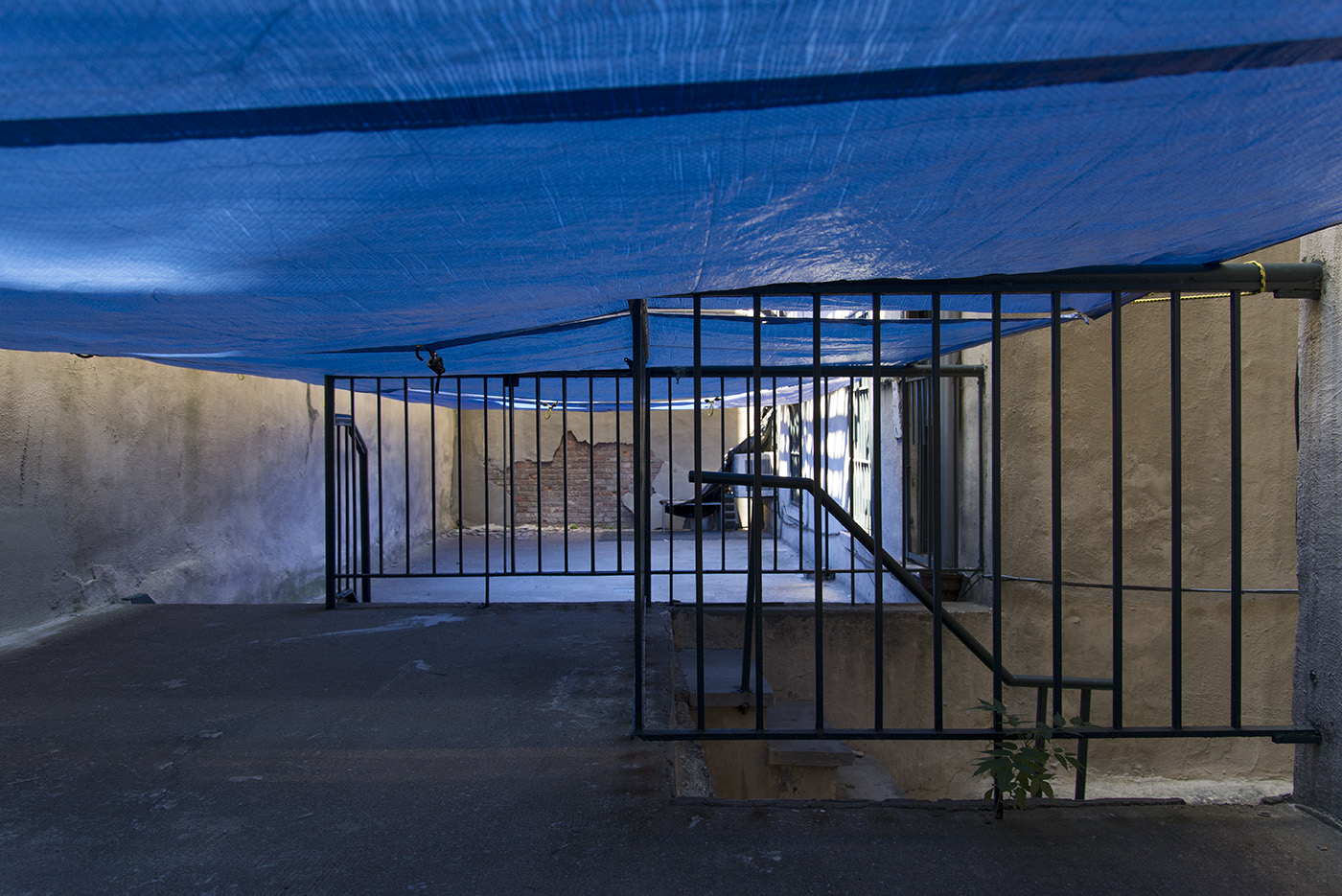
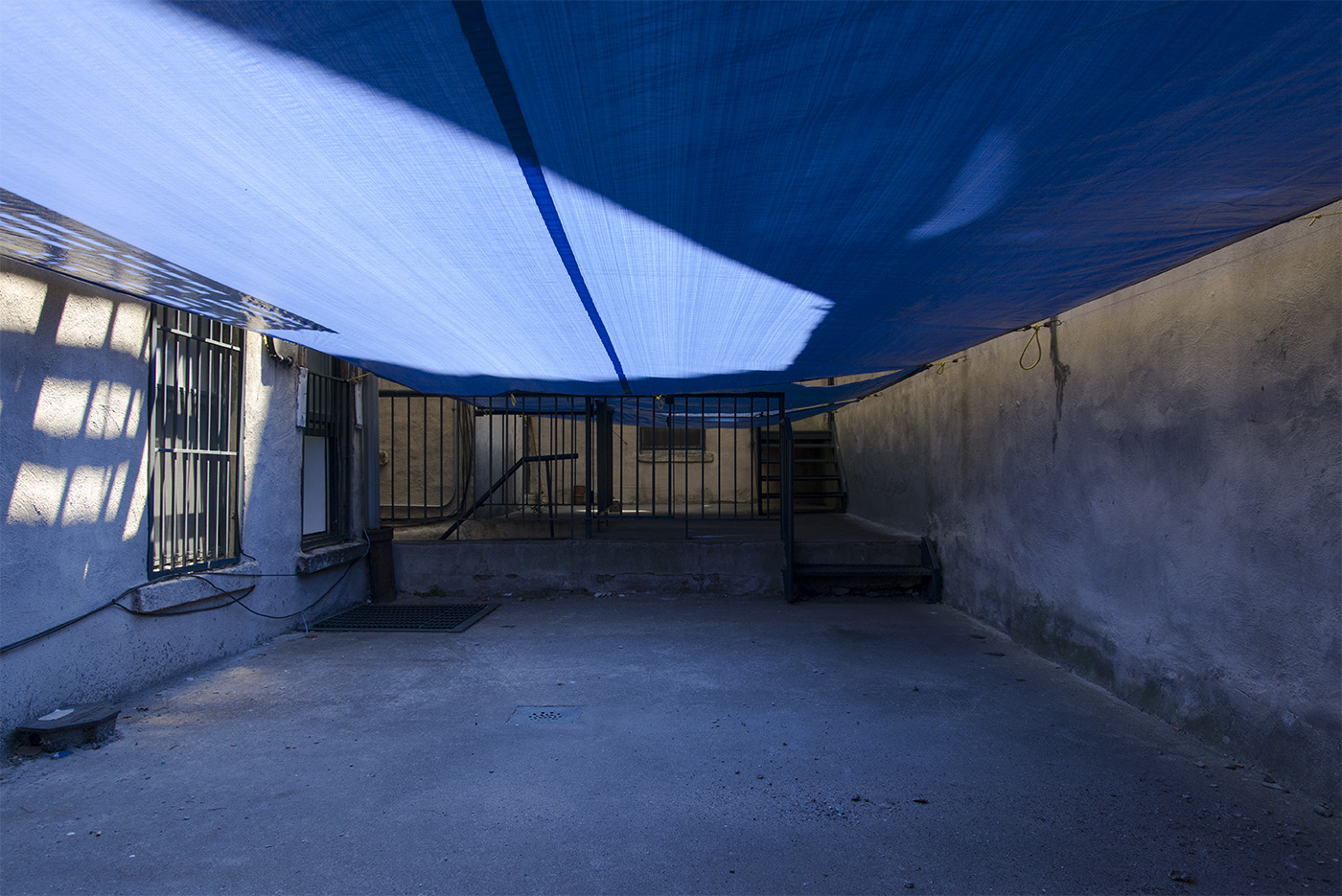

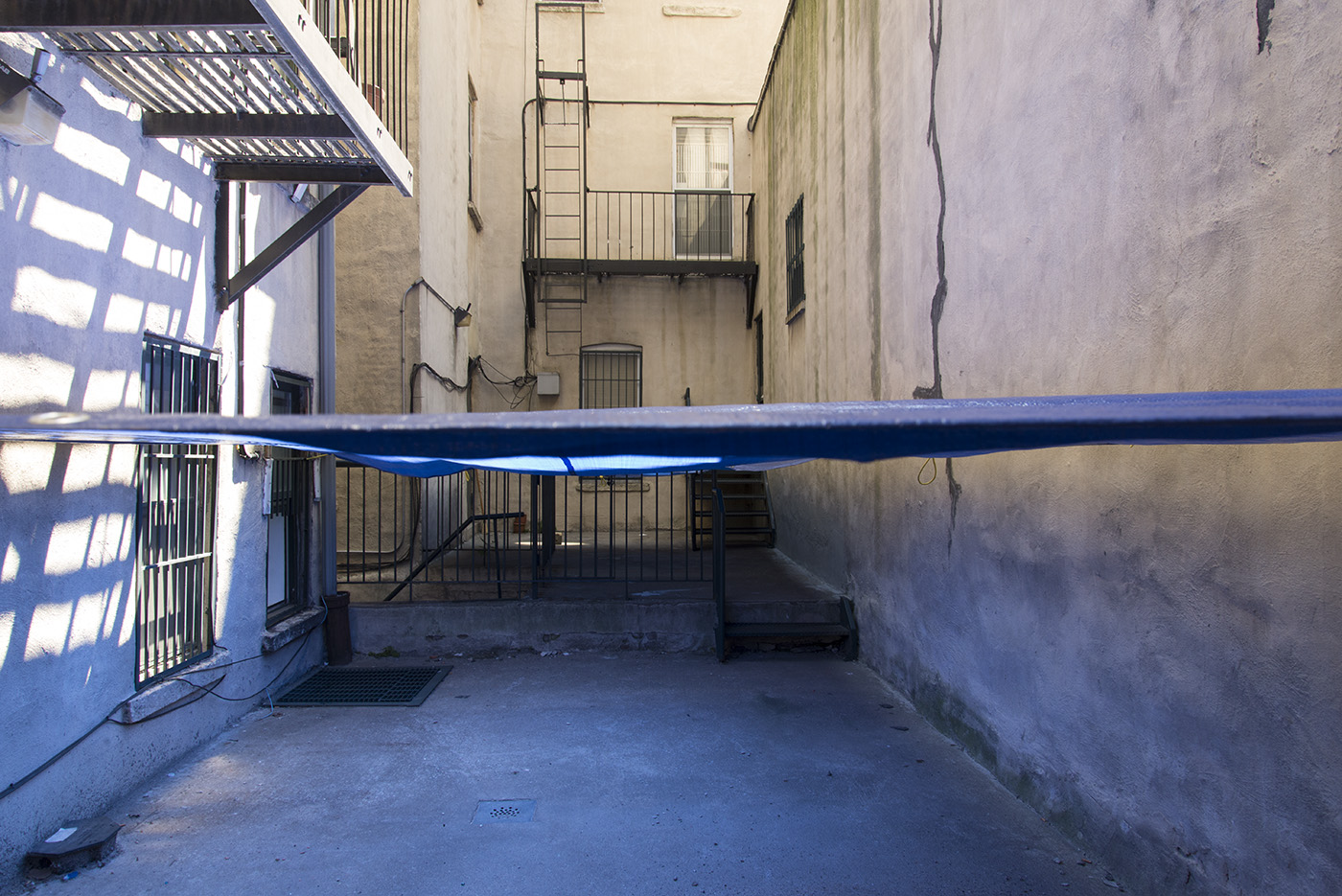
Hermes is the guide into the underworld via communication and interpretation (and creation) of symbols. Jesus, while not himself a "block" to the underworld, is definitely utilized as a block by the church, as a kind of controlled demolition of the entrance to the underworld. The myth that dies/is buried, along with the idea of reincarnation, wherever christianity went is that earth is hell or rather an odd purgatorial realm with more below and more above. Jesus' teachings (if heeded) allows one to be social in an ever expanding, ever globalizing, ever hostile world. Hermes allows one to do the same but in the "unseen" world. It sounds like you are already in the narthex, why not relax and stroll about for a bit? (…)
The society of the spectacle is simply a hazy affirmation that politics and materialism are merely chapters in the history of religion, not a new phase of history proper, rather a brief forgetting of what history and religion is, what it's capable of and how one "finds" (and uses) it. -zummi



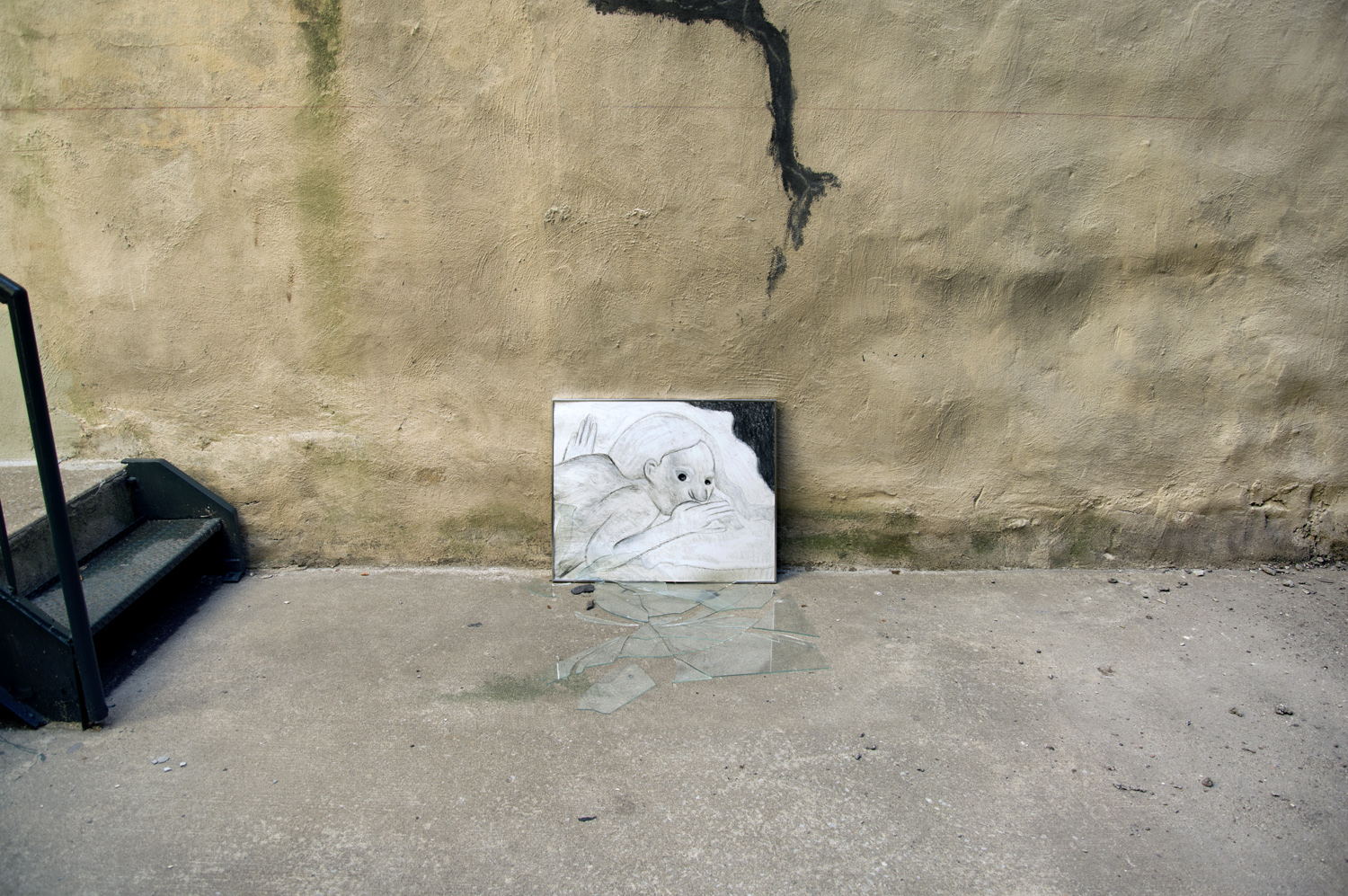
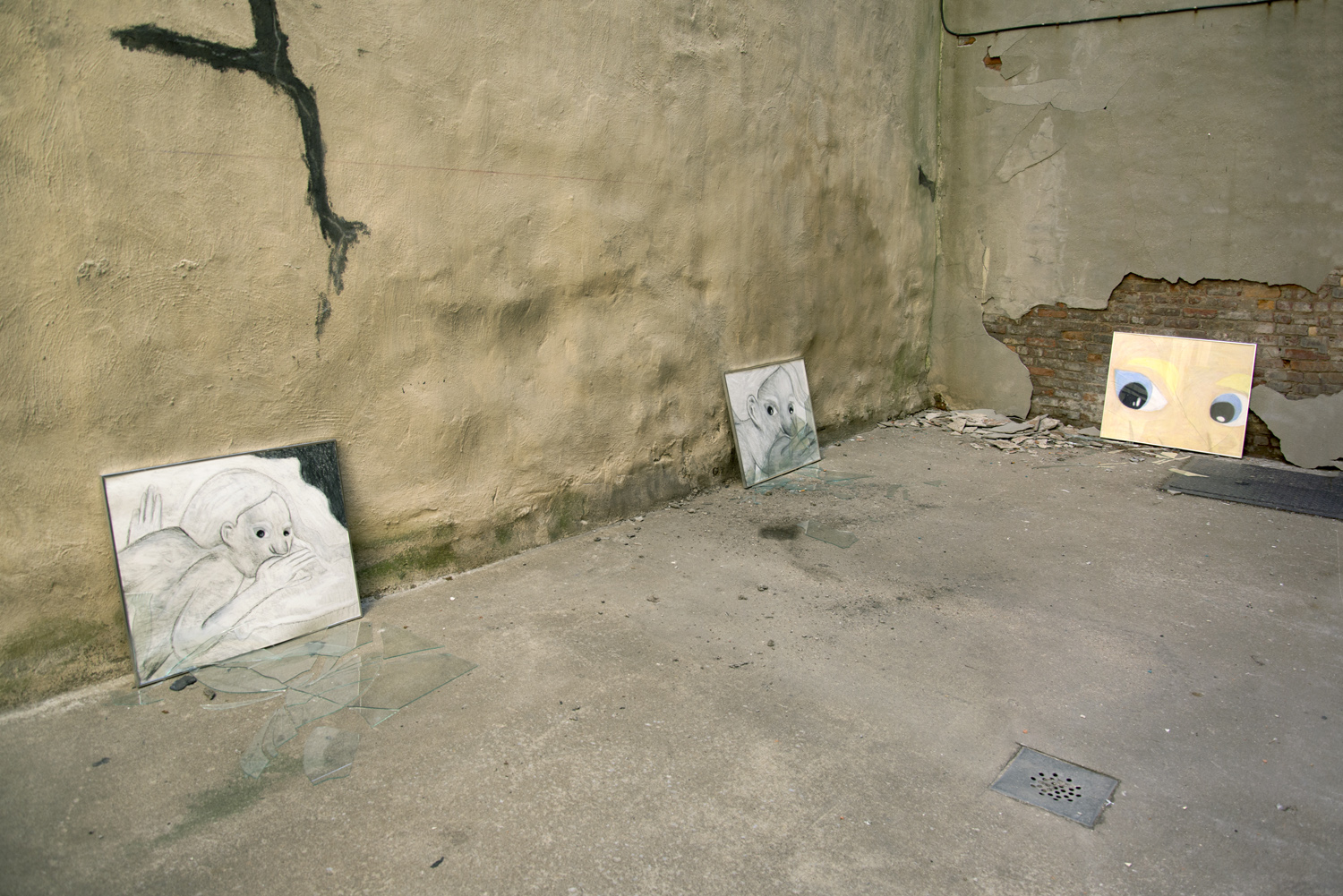
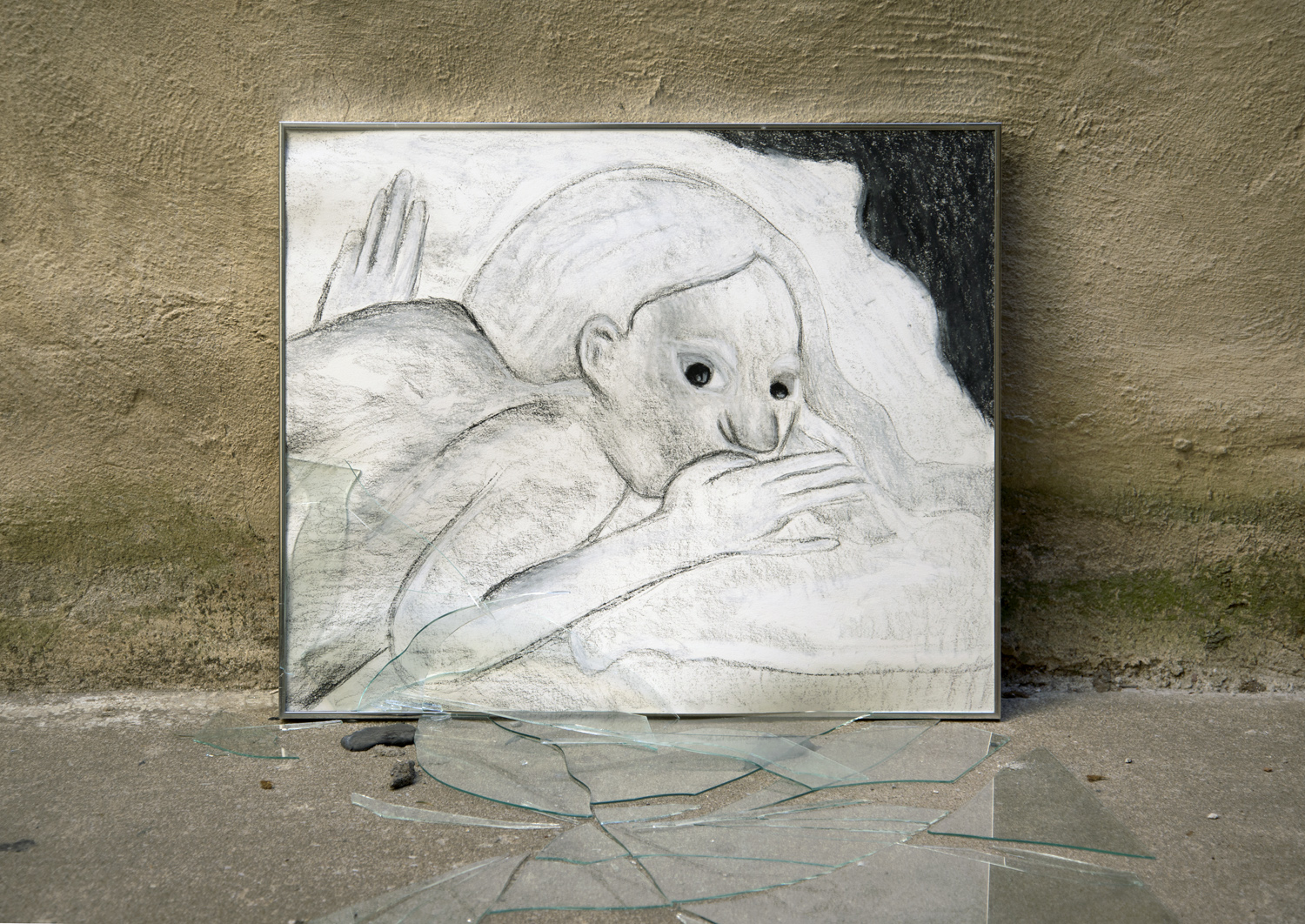
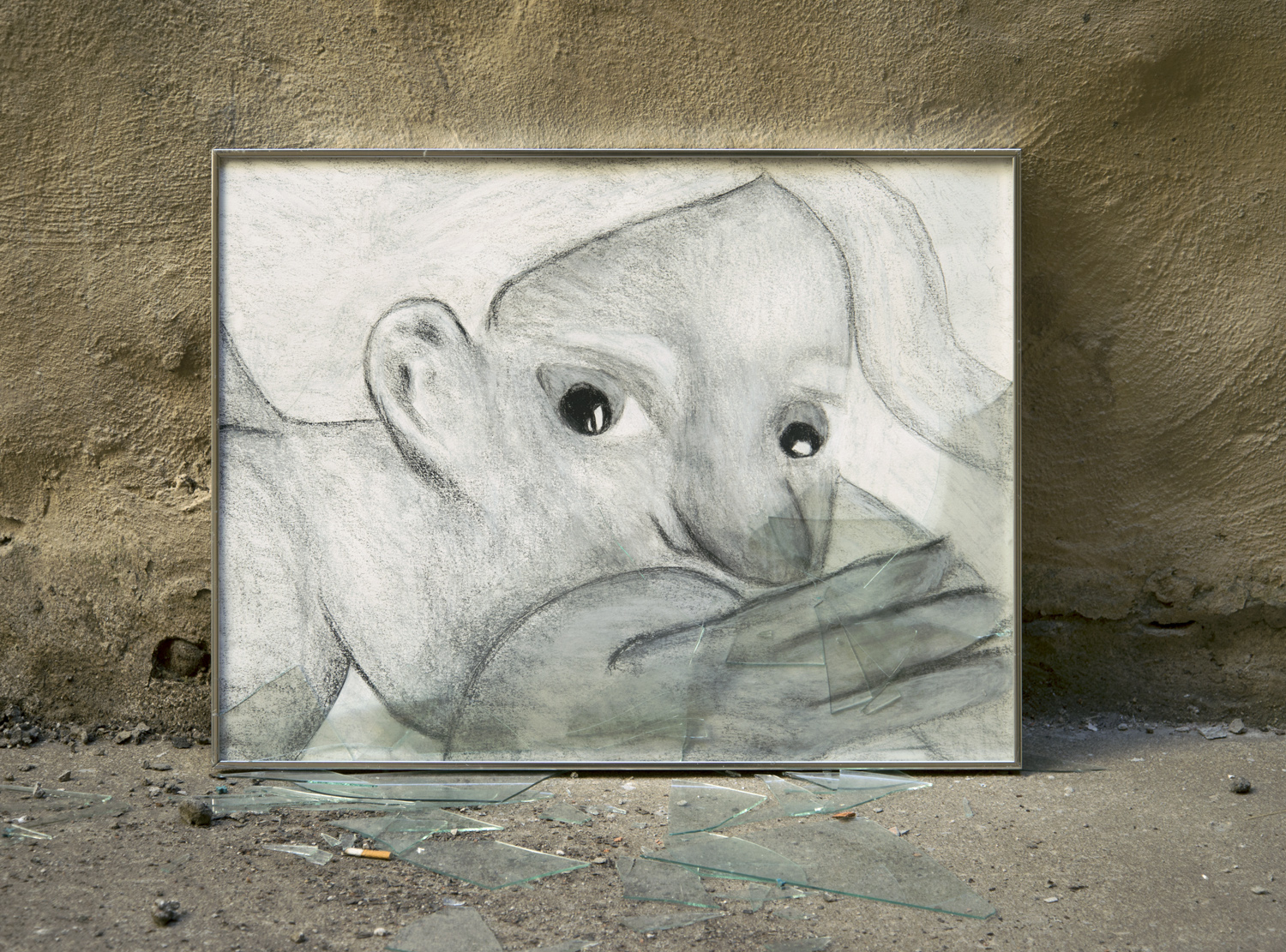

Help Me
Princess is pleased to present, Help Me, an exhibition of new work by Lulou
Margarine. In this exhibition, Margarine will present three new works on paper in
charcoal and oil pastel. In this series Margarine has reworked an earlier
composition (Portrait, 2015), narrowing the frame around the subject’s enigmatic
eyes. In many ways, Margarine’s composition is the new Mona Lisa.
Lulou Margarine (b. 1984, Dallas) lives and works in New York. Margarine has
exhibited in a solo presentation at Egg, Chicago, and in group exhibitions at 0dX,
Berlin and Queer Thoughts, Nicaragua. Upcoming group exhibitions include Life
Sport, Athens and Et al. etc., San Francisco.
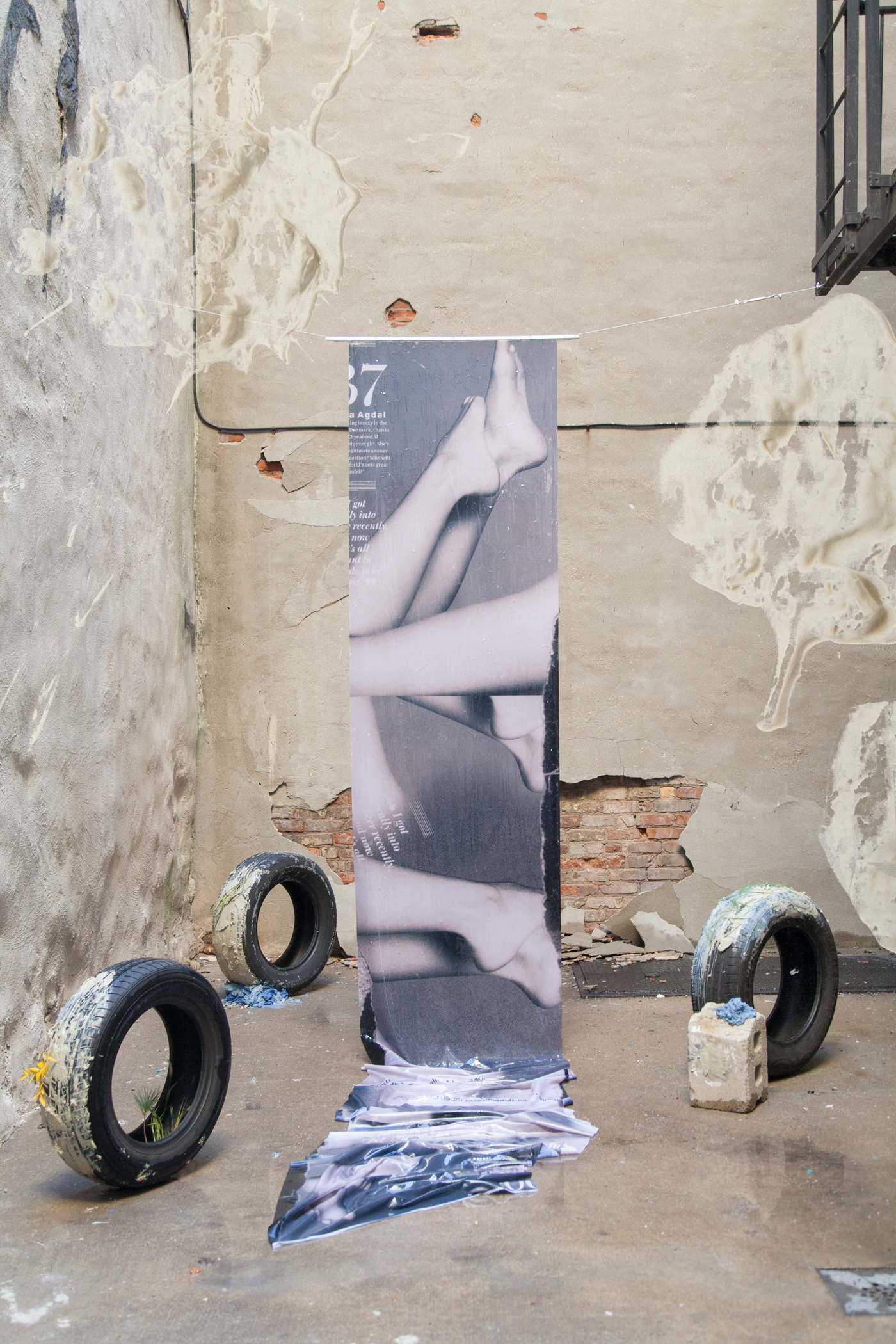

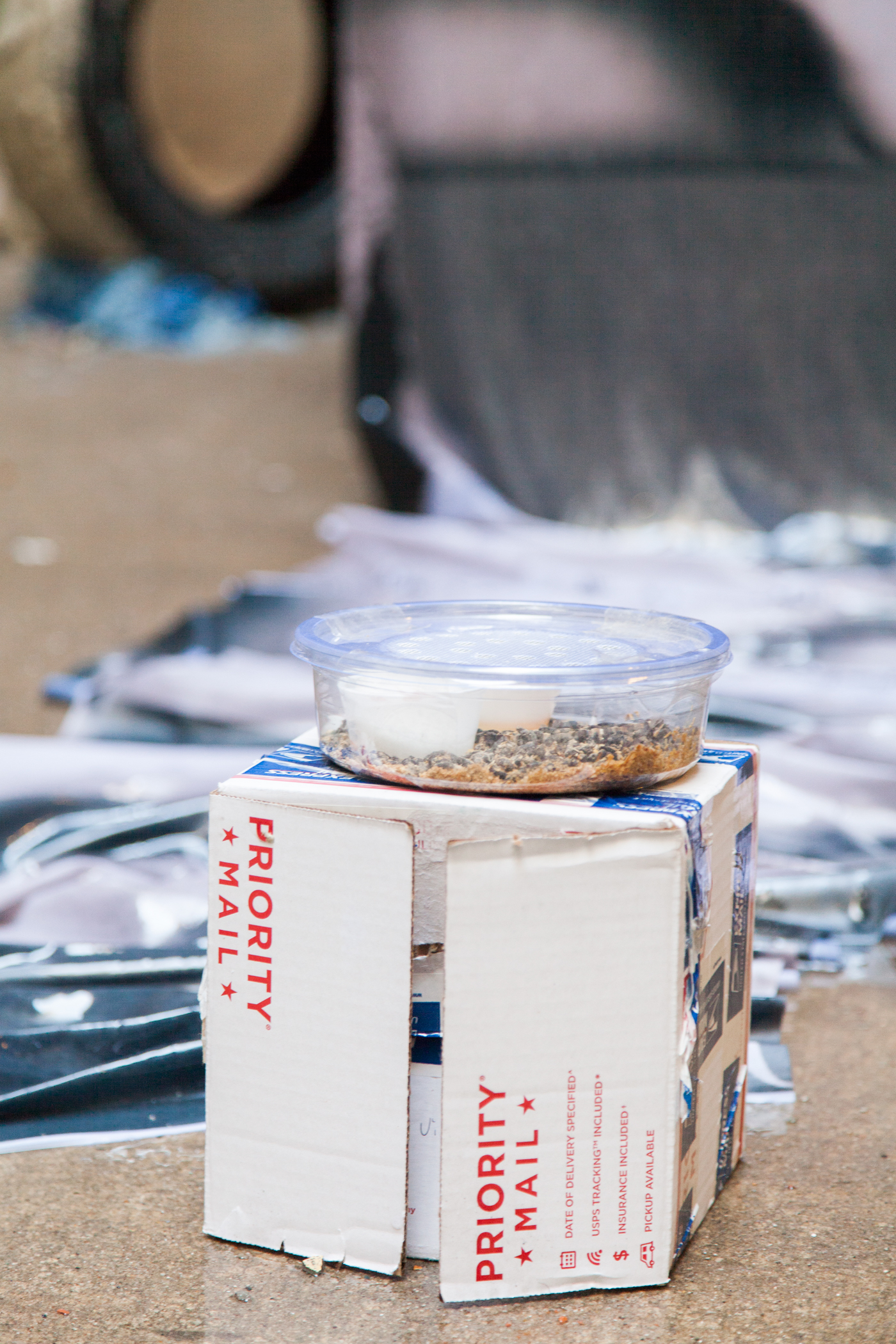
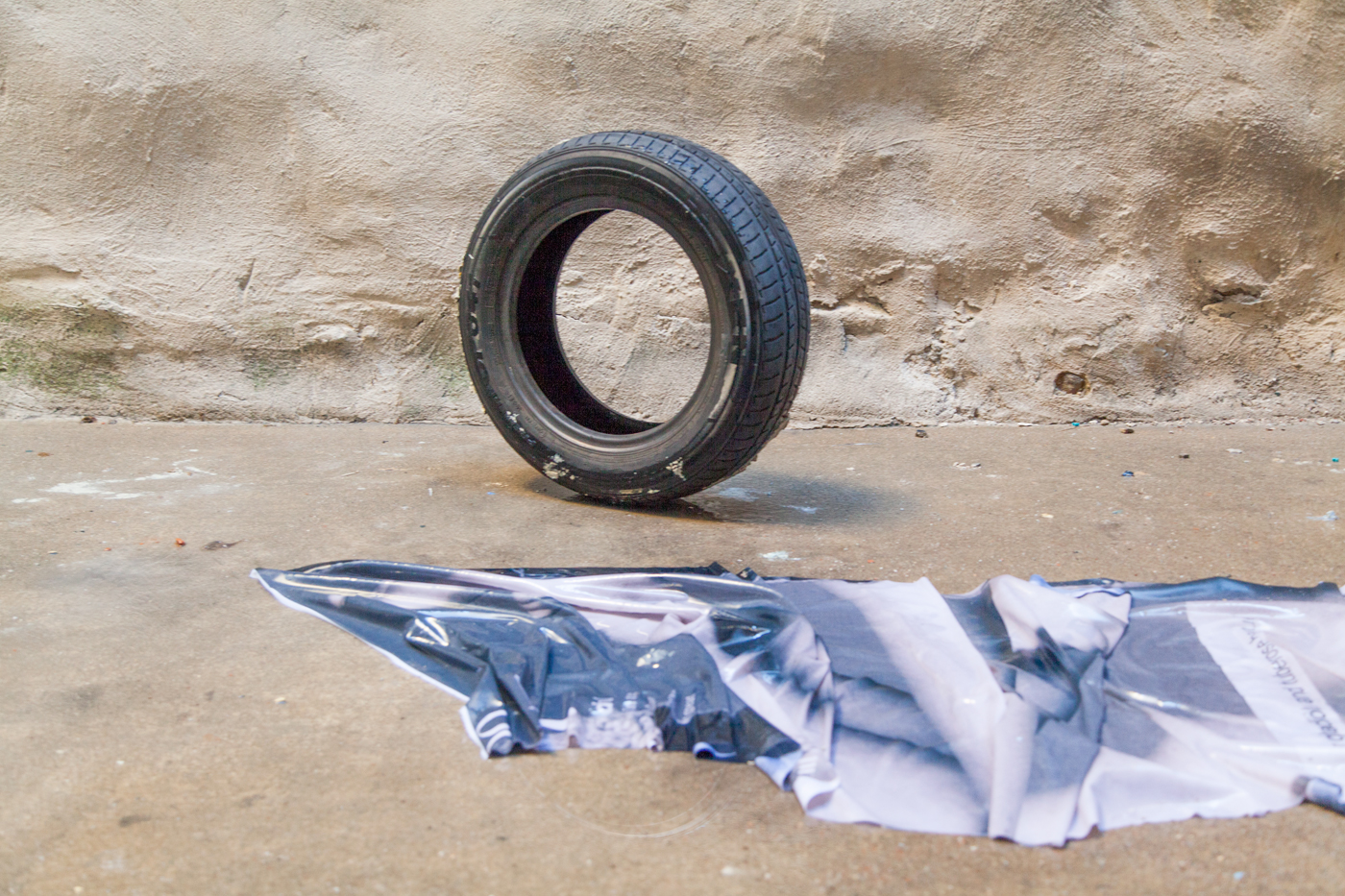


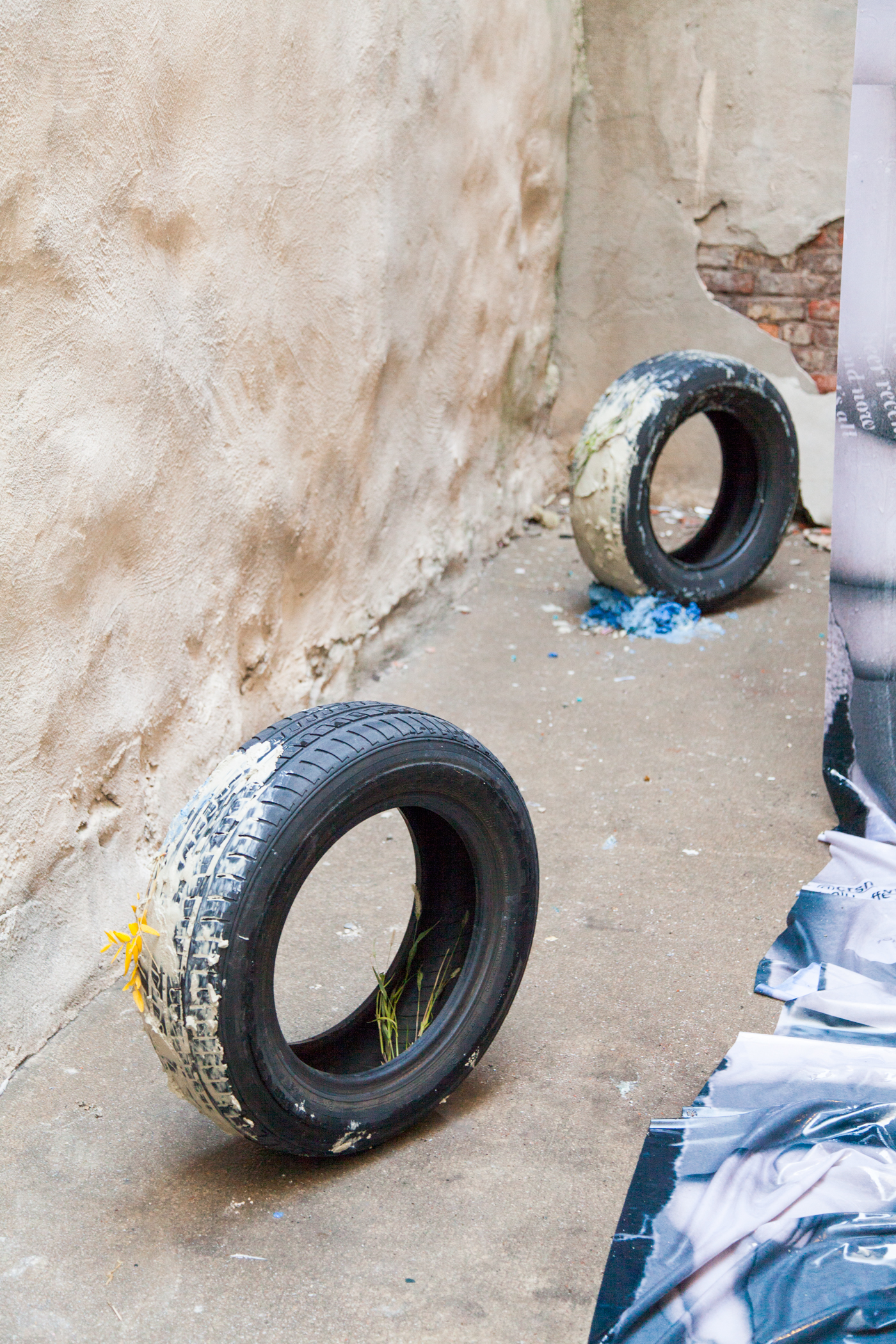


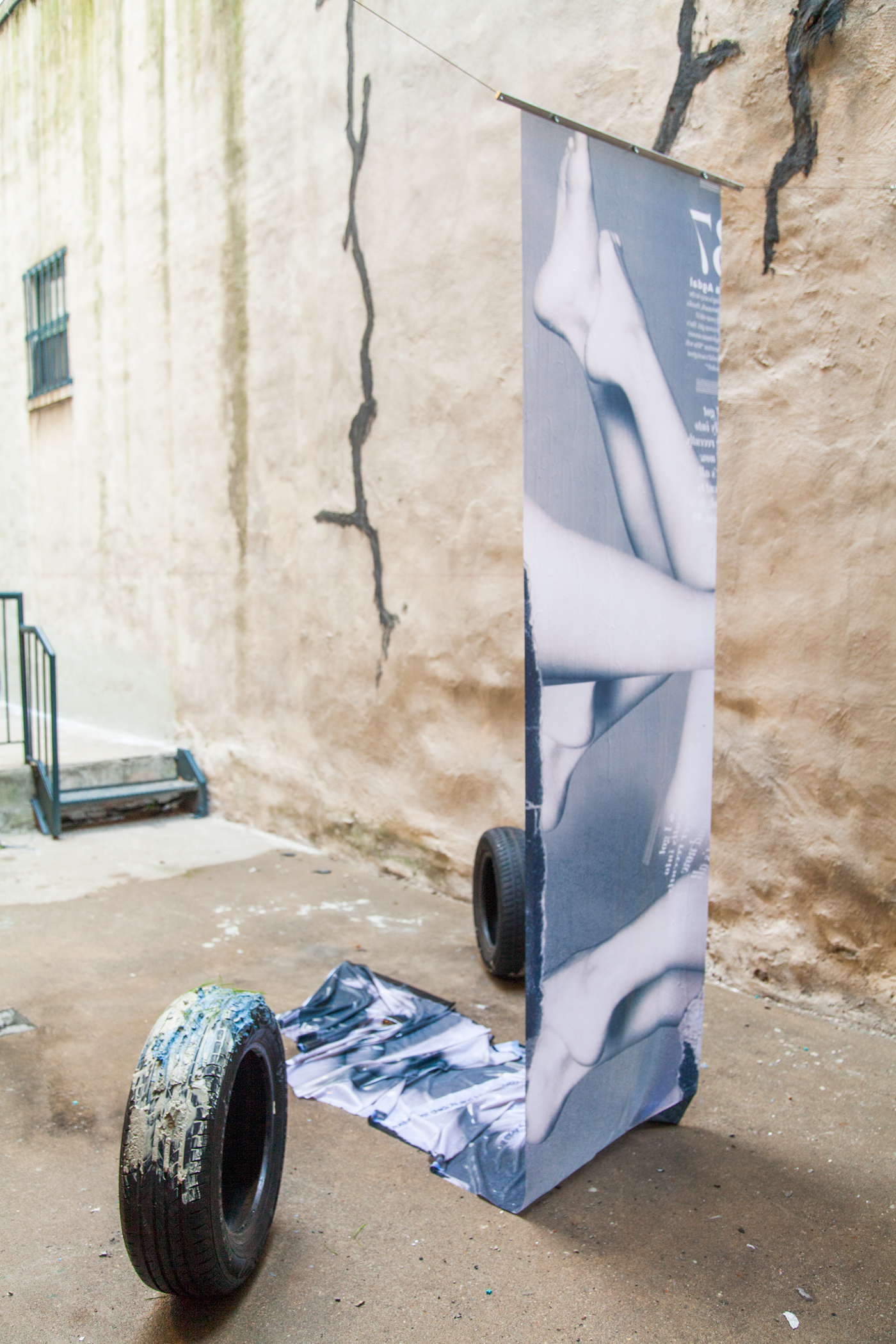

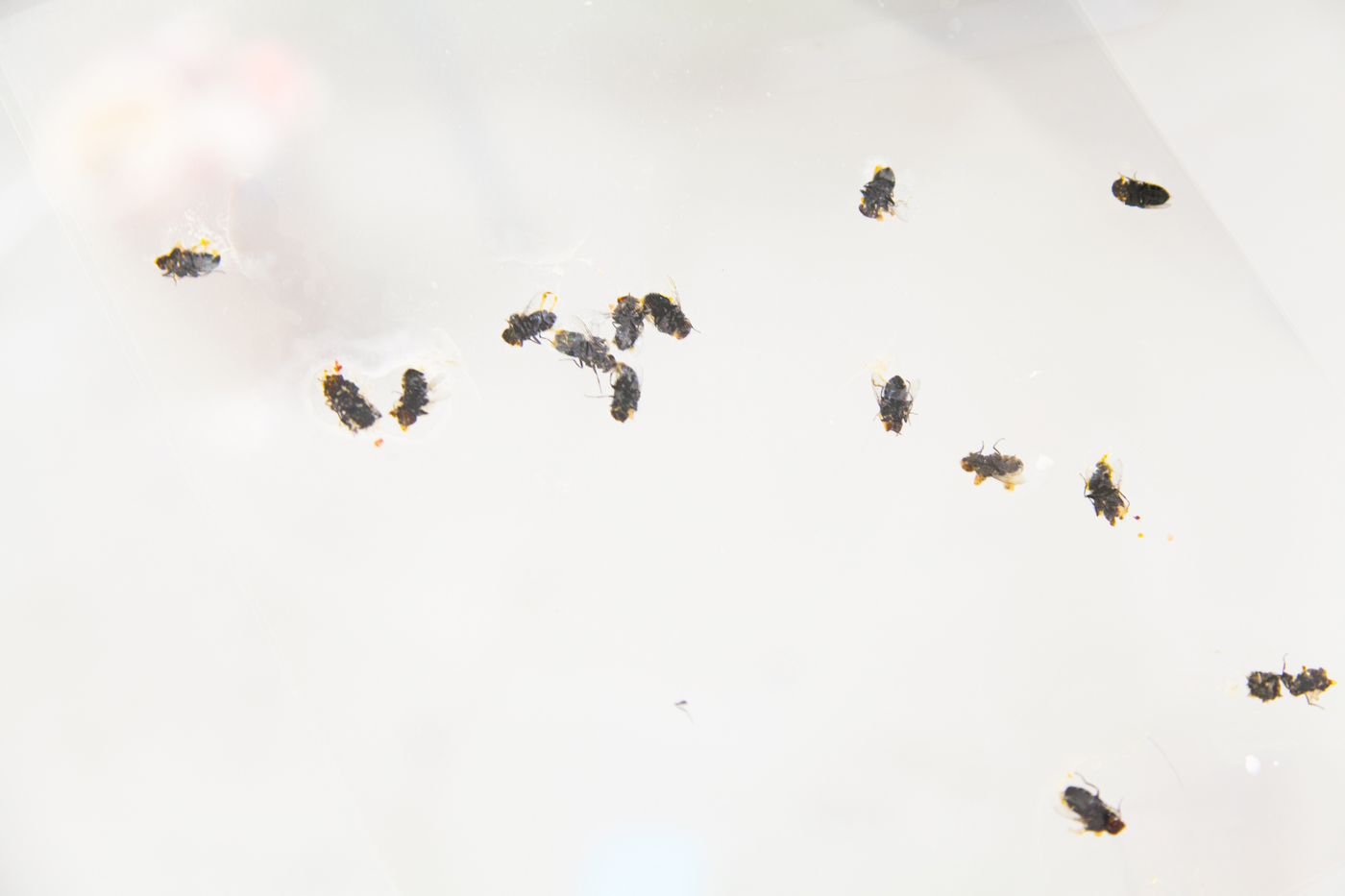

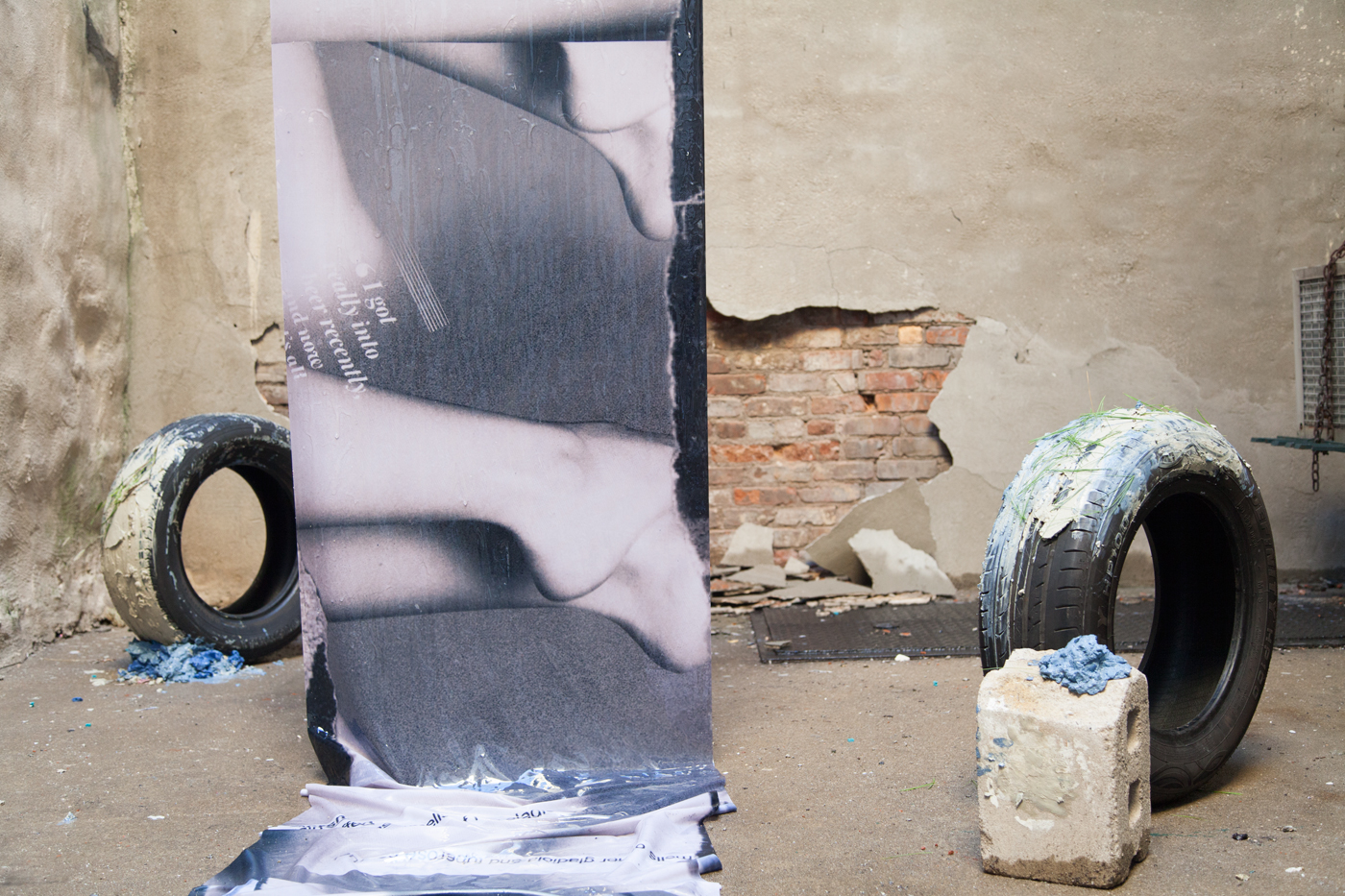


the woman places an
oasis into a vase
a tulip balloon floating
over peace lilies
landscape as archive
faces on flowers
the difference between
power and botany
Q: What is this sticky stuff all over my car?
A: At this time of year I am often asked about what is colloquially known as 'honeydew', but is, in actual fact, aphid droppings!
Curious things arise from desire.
Tiberius loved cucumbers so much that he ordered the construction of the first known greenhouse so that he could indulge his voracious appetite for those elongated melons year-round. Bringing the garden indoor was the first step in cultivating a human-made nature. Through processes of speculation, trial, and error, scientific experimentation helps us to control unpredictable elements that might better yield results in our favor.
The image of a bountiful bouquet reflects our ability to arrange desired elements plucked from nature. With the planetary fields of biochemical and geological determinism, how has the bouquet adapted?
Welcome to the Age of Precarity.
CFA
@}---’----
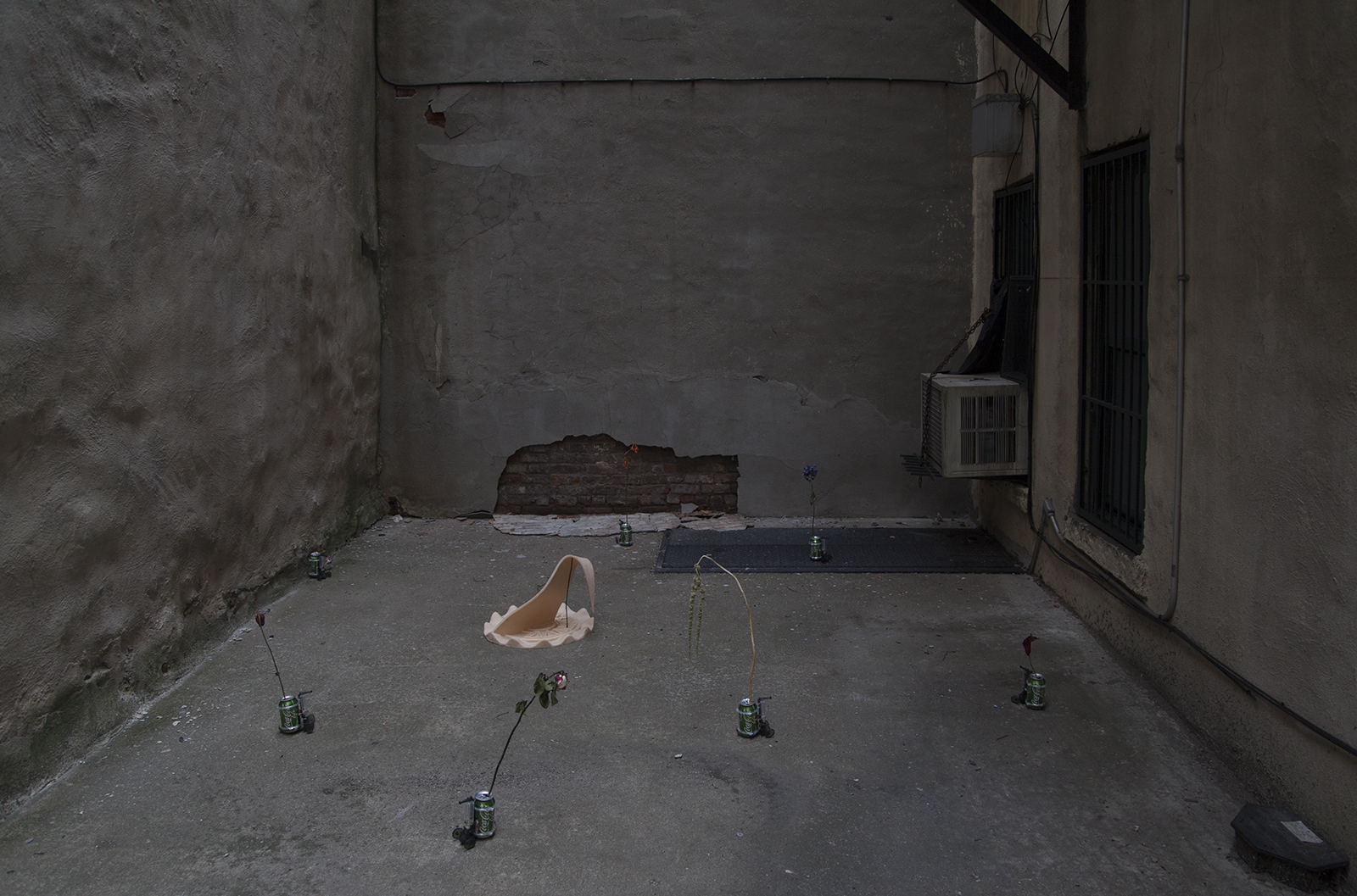
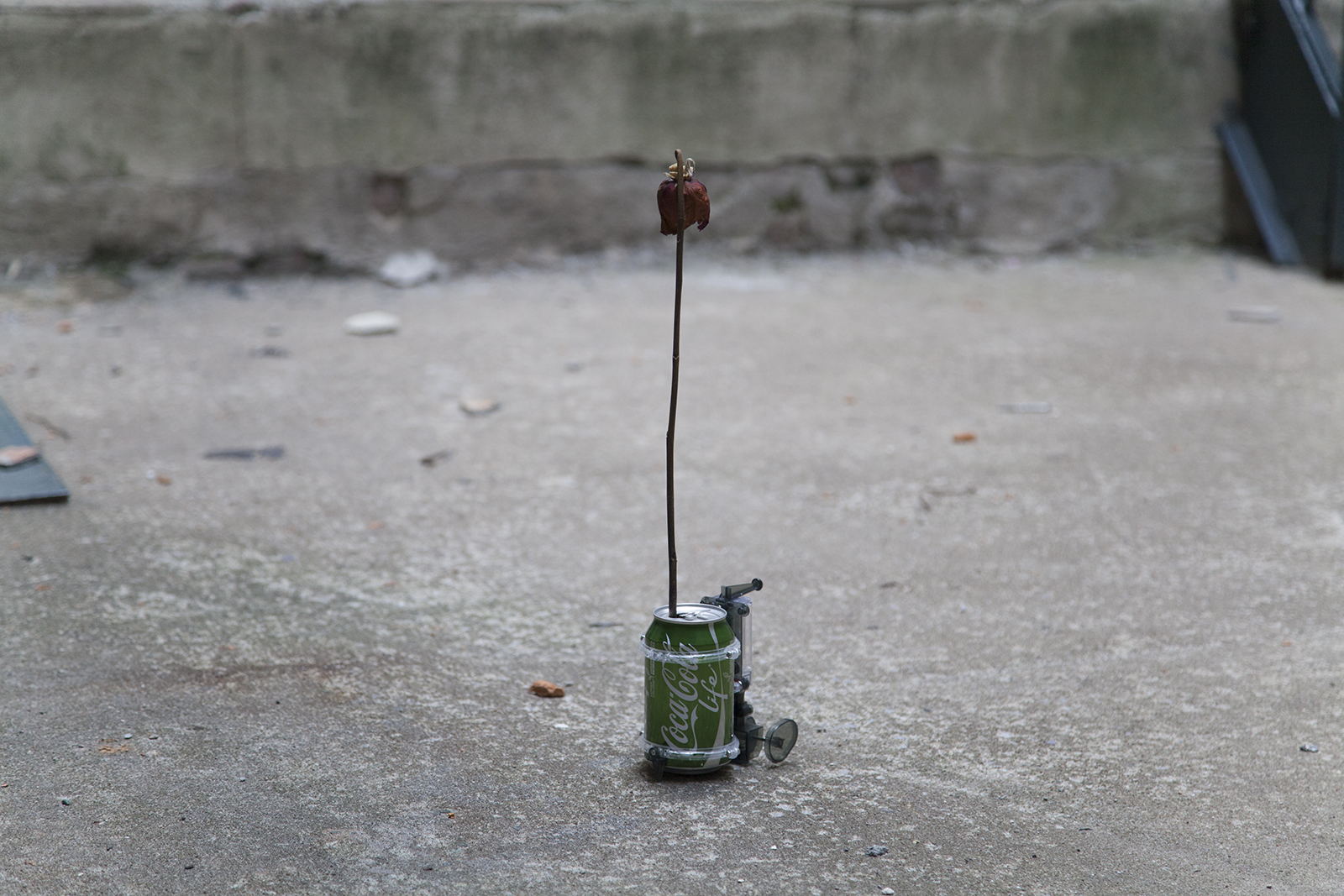


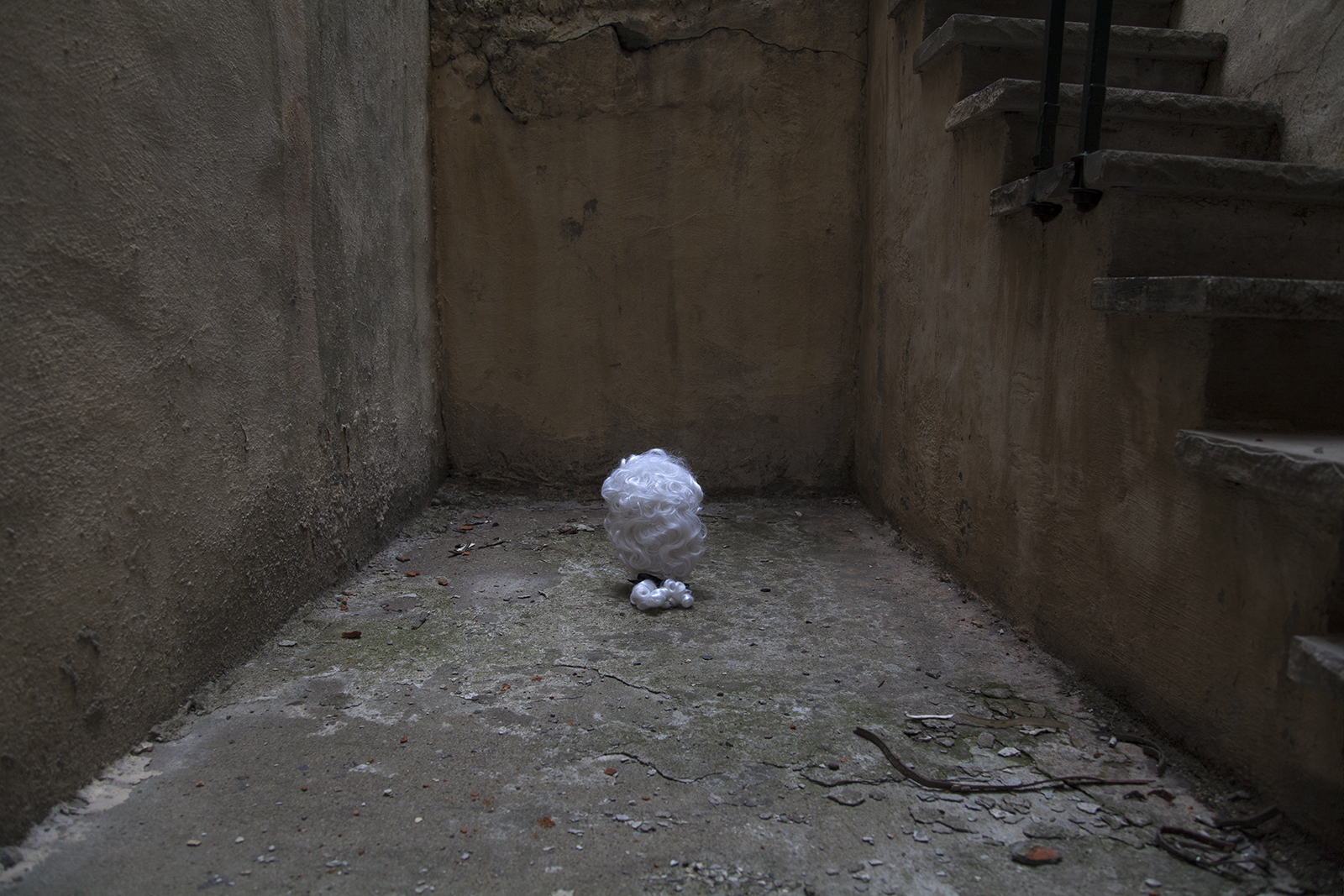
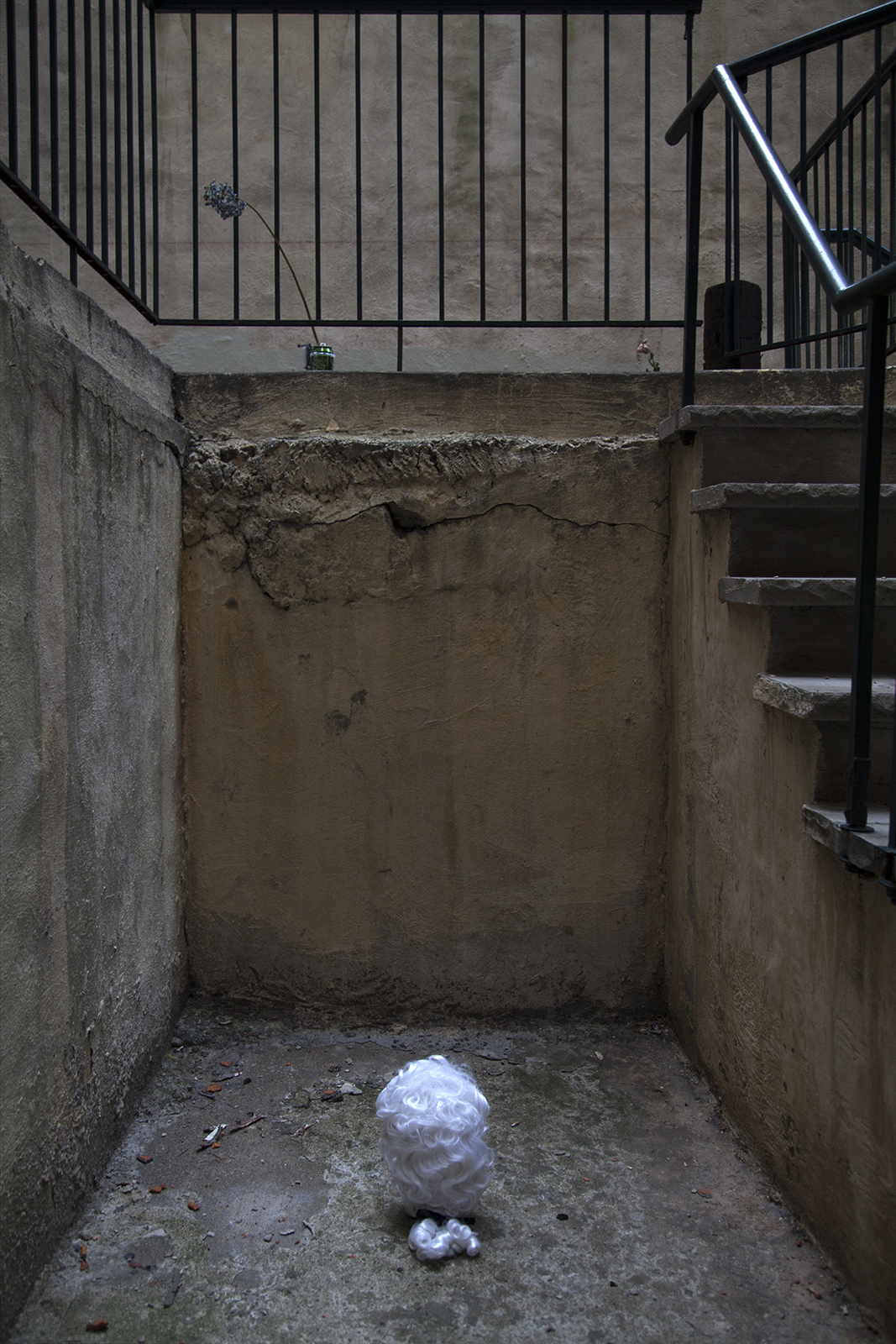
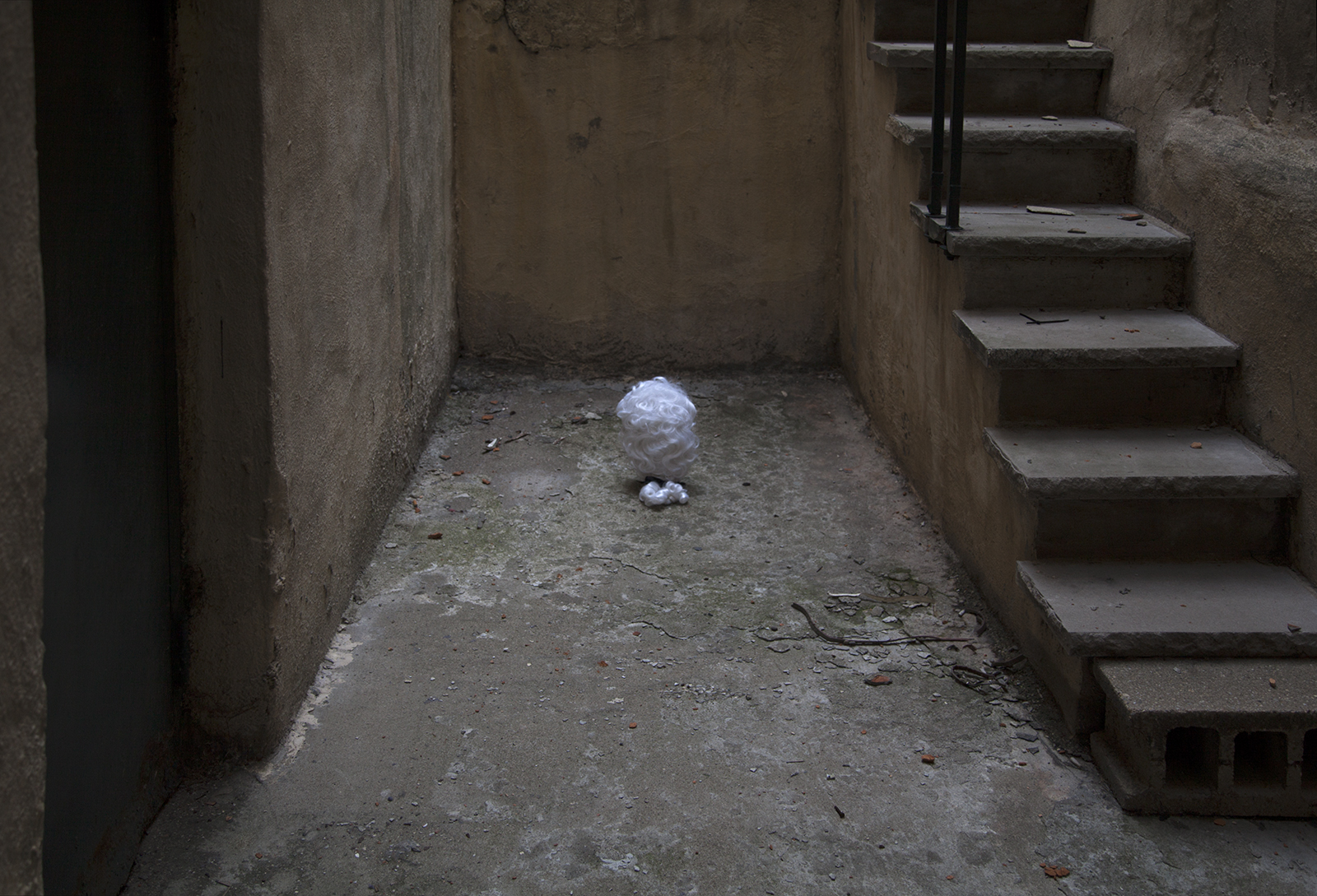
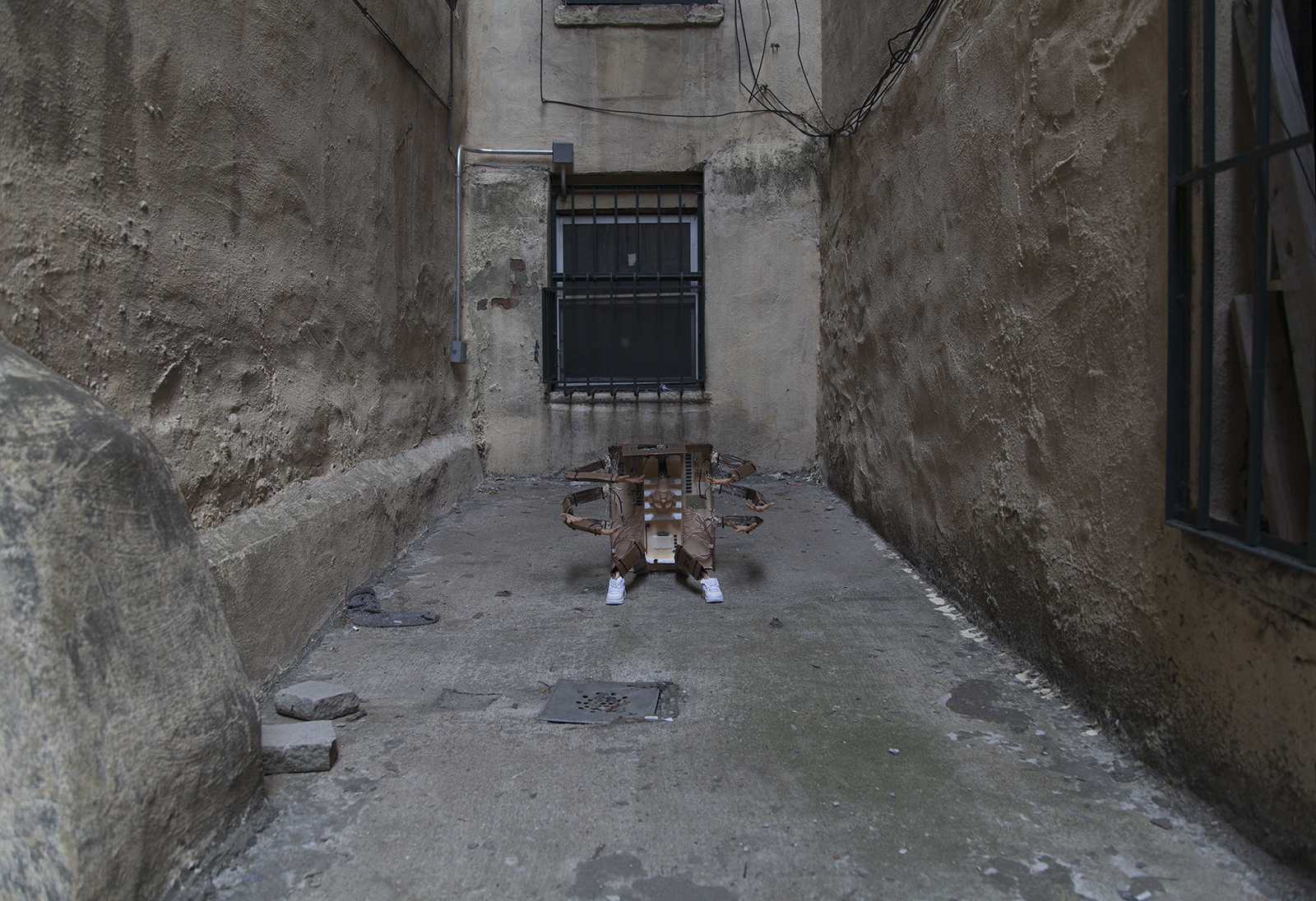
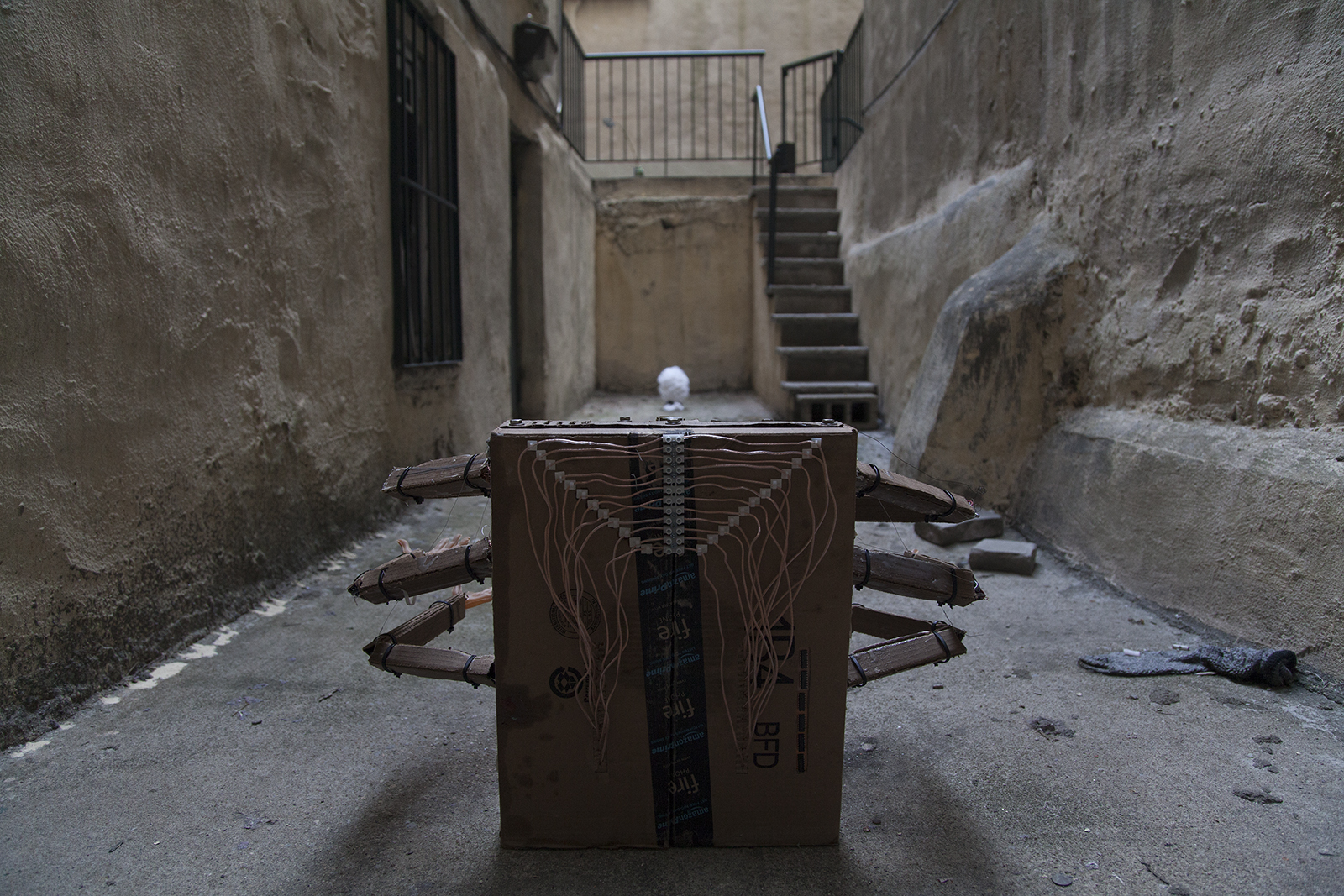
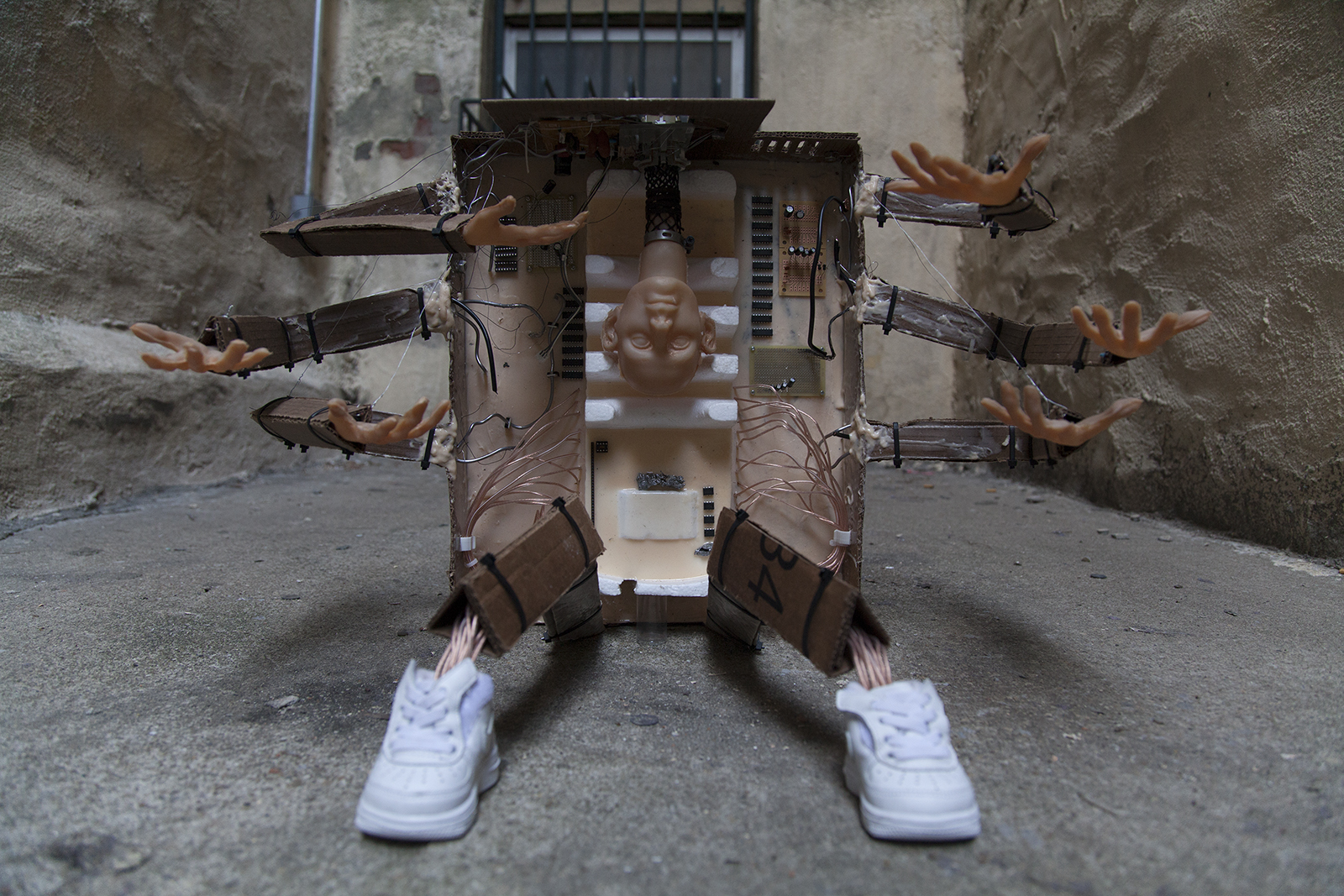
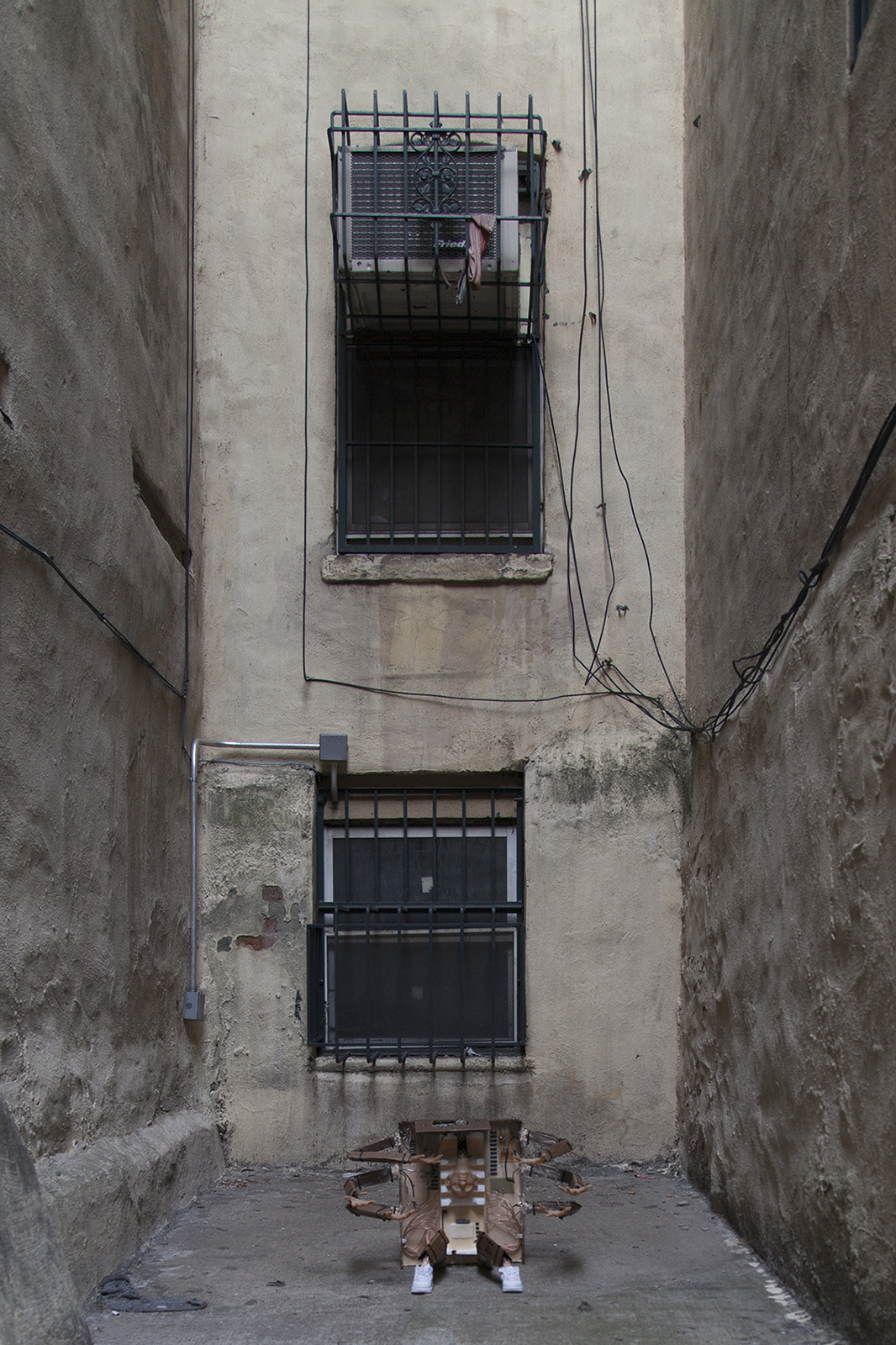
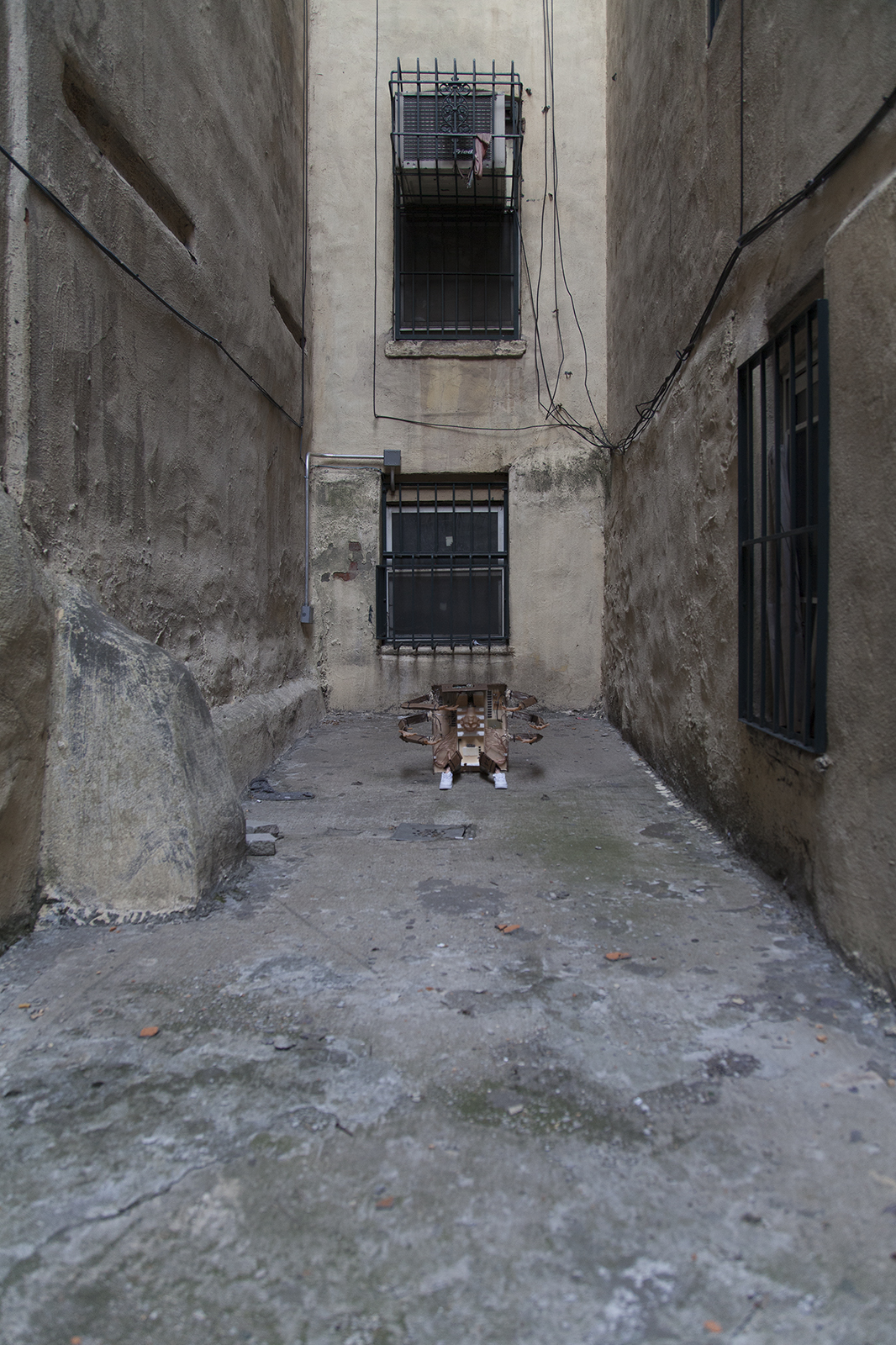
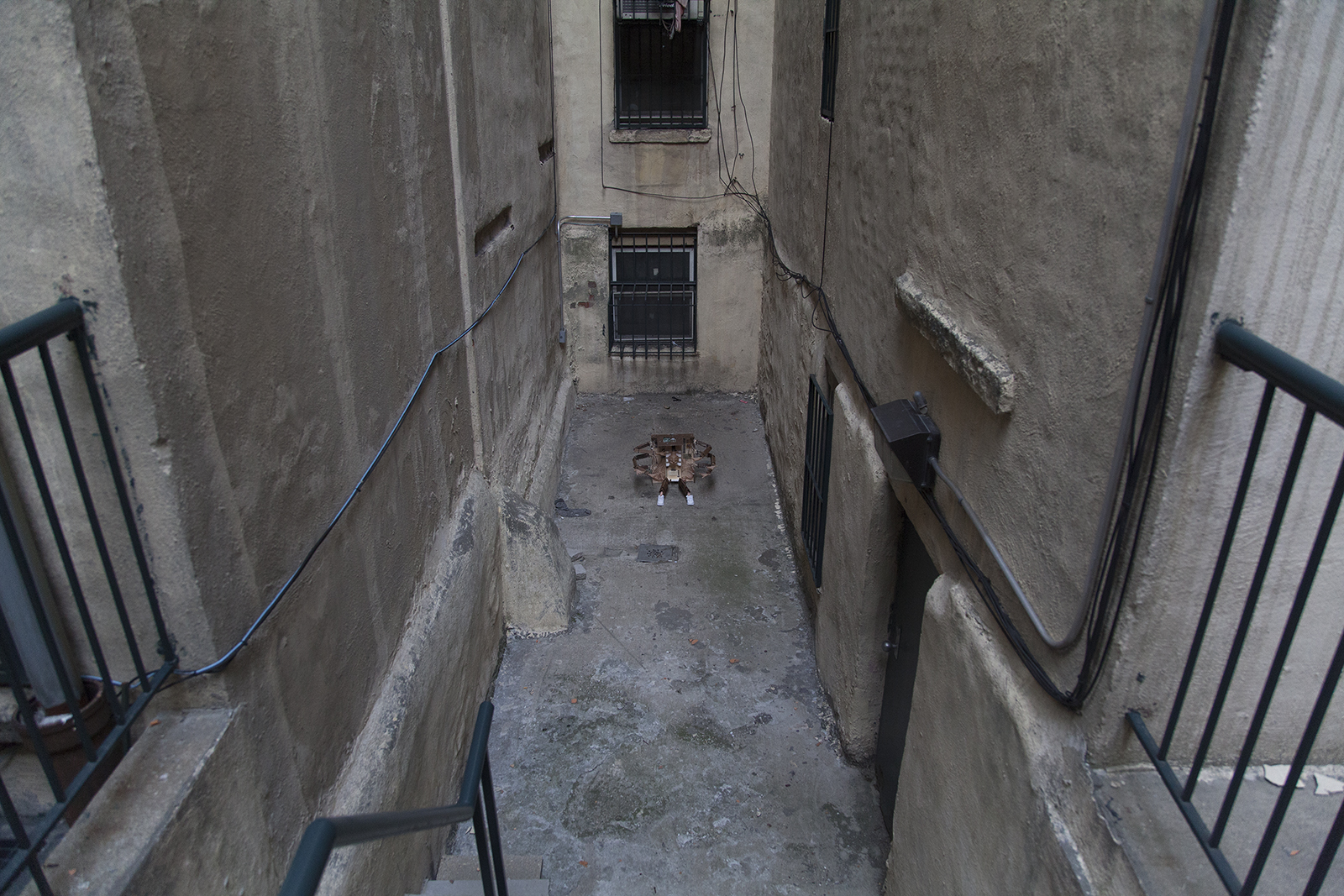
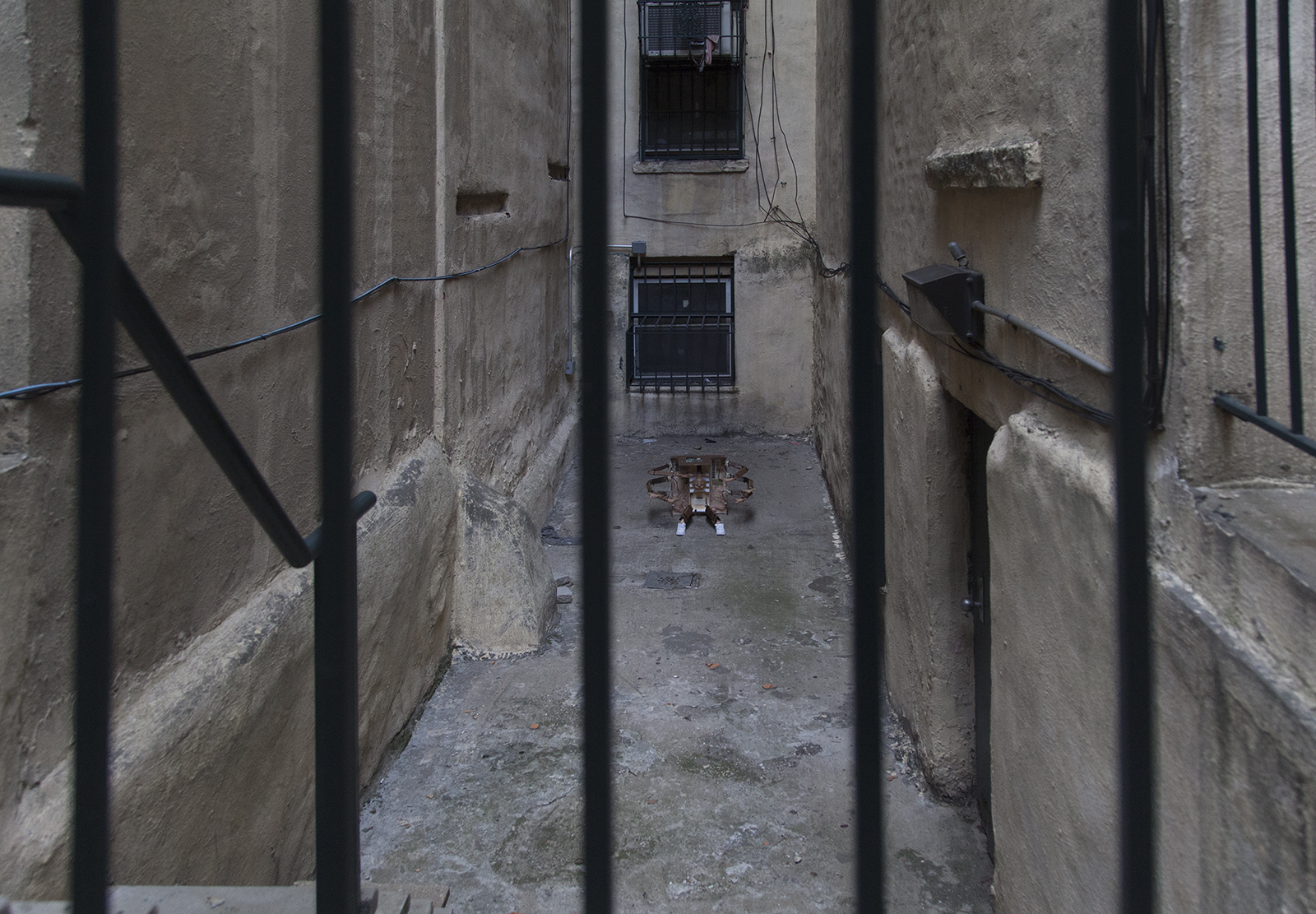
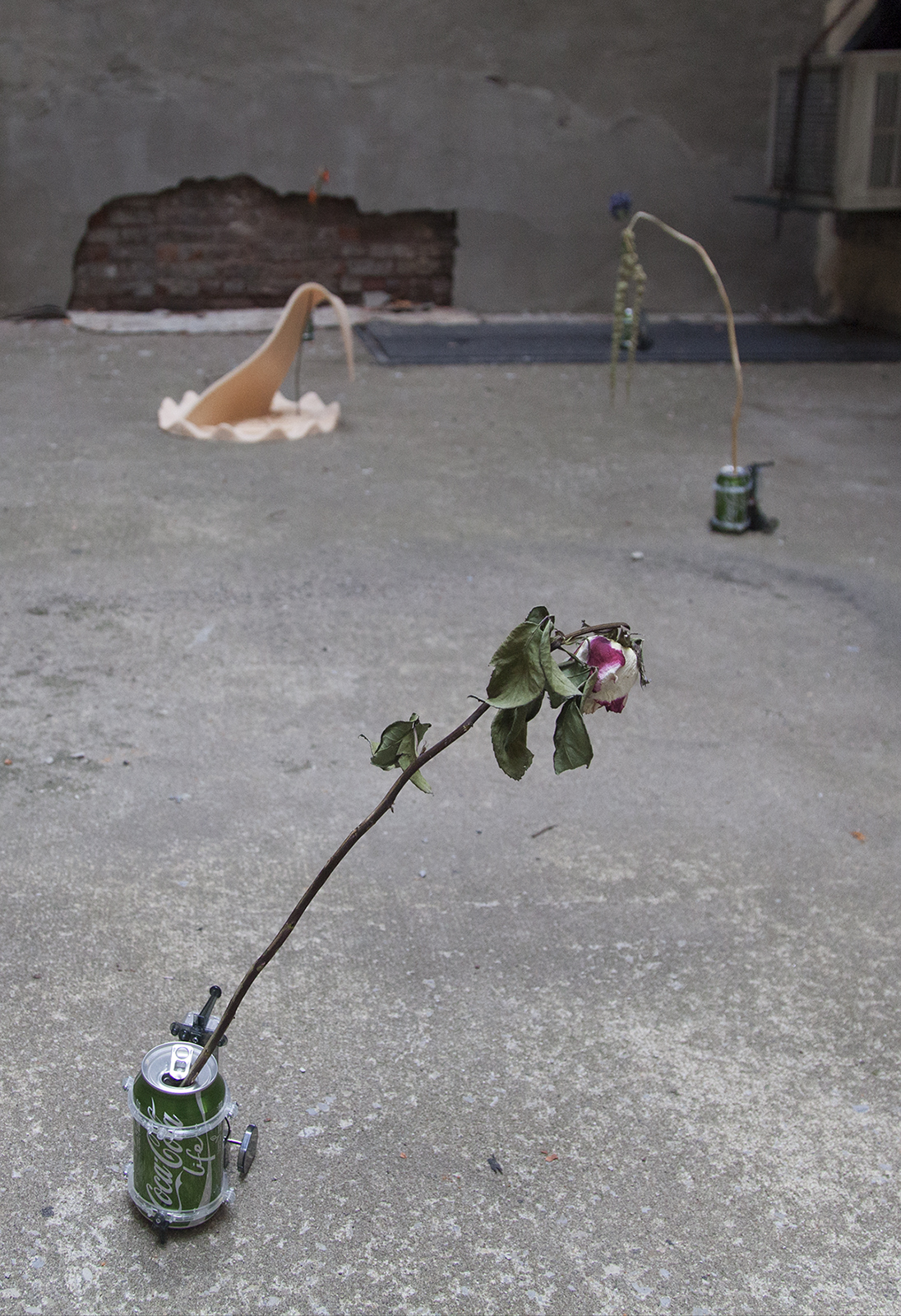
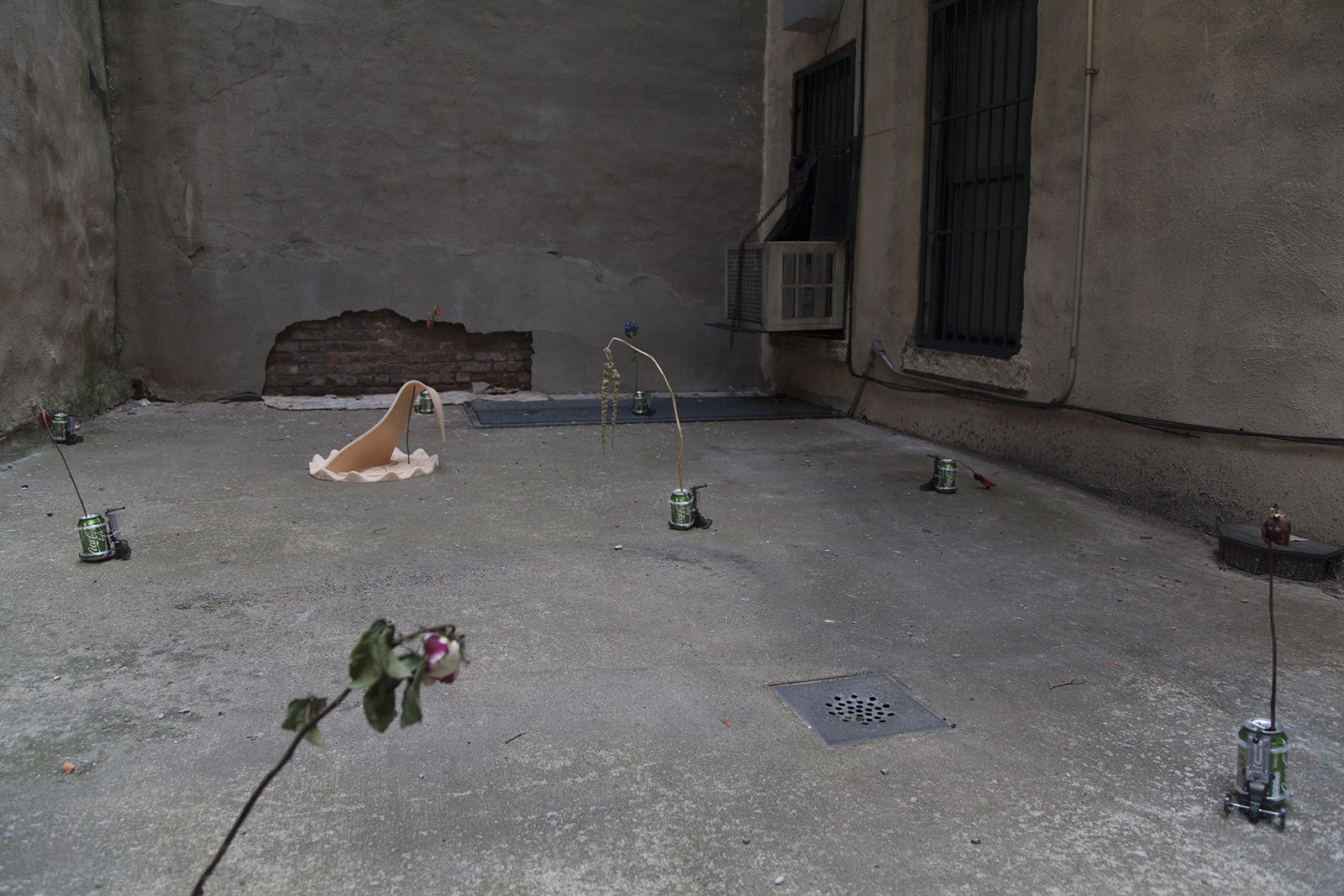
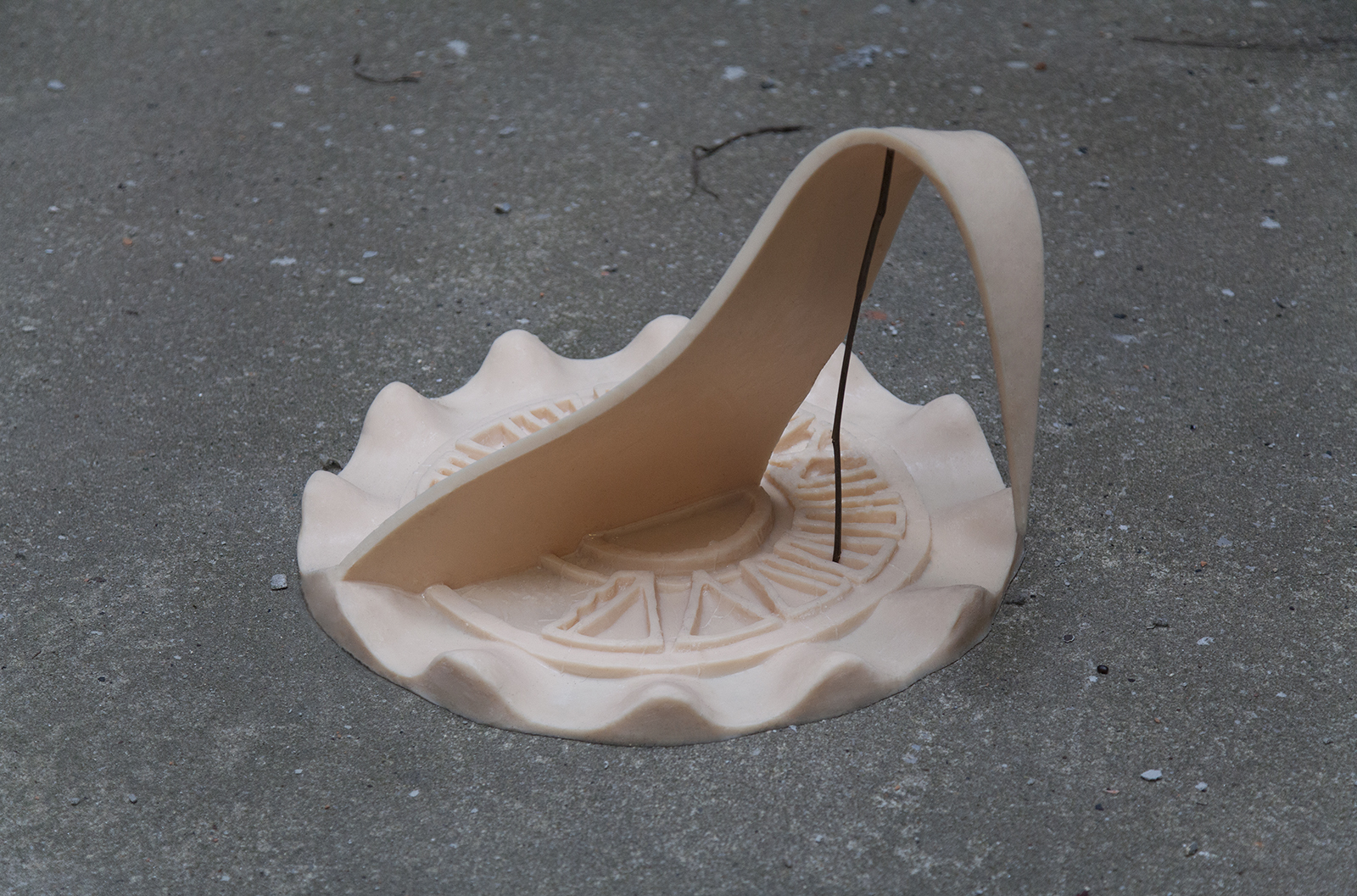
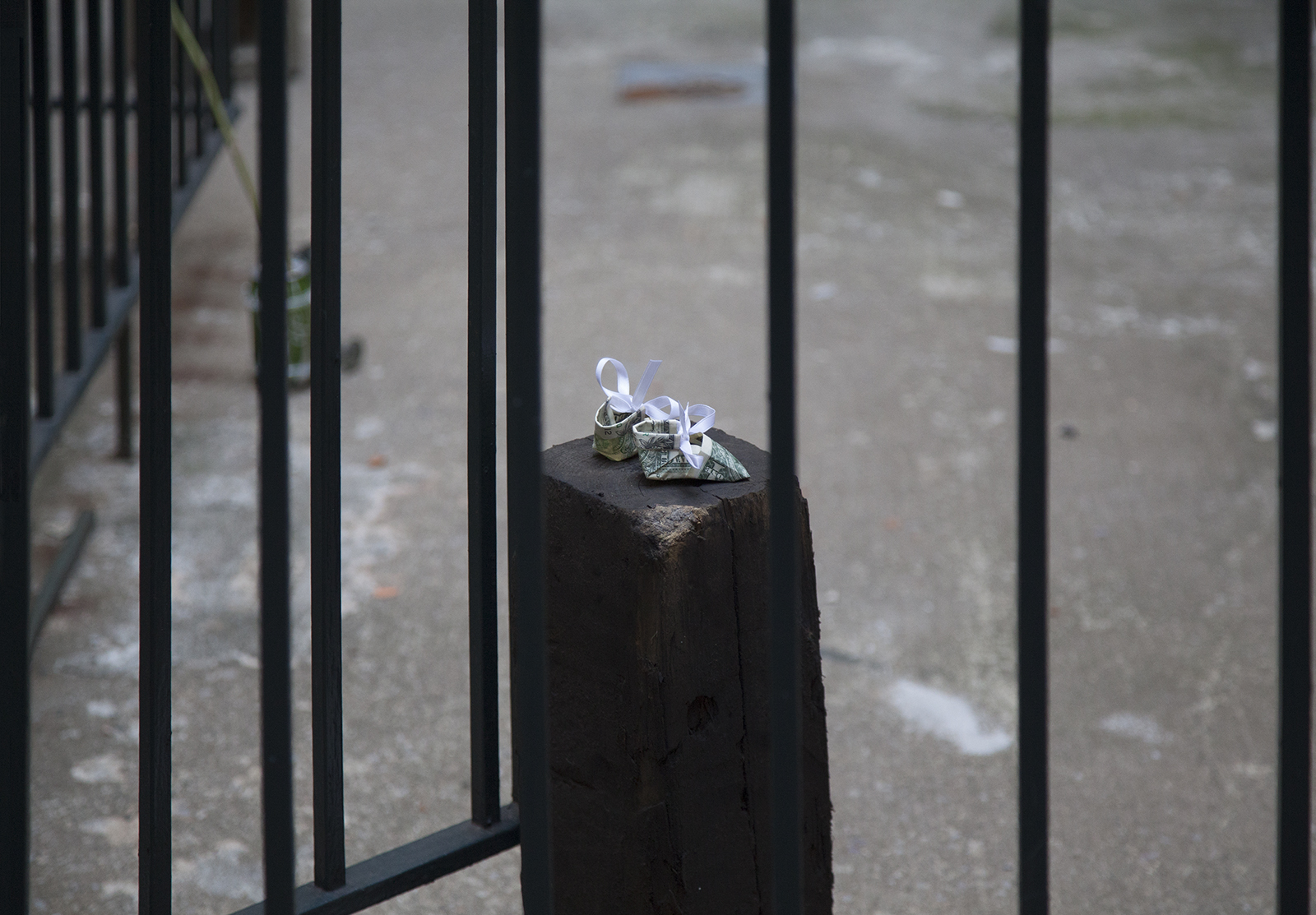
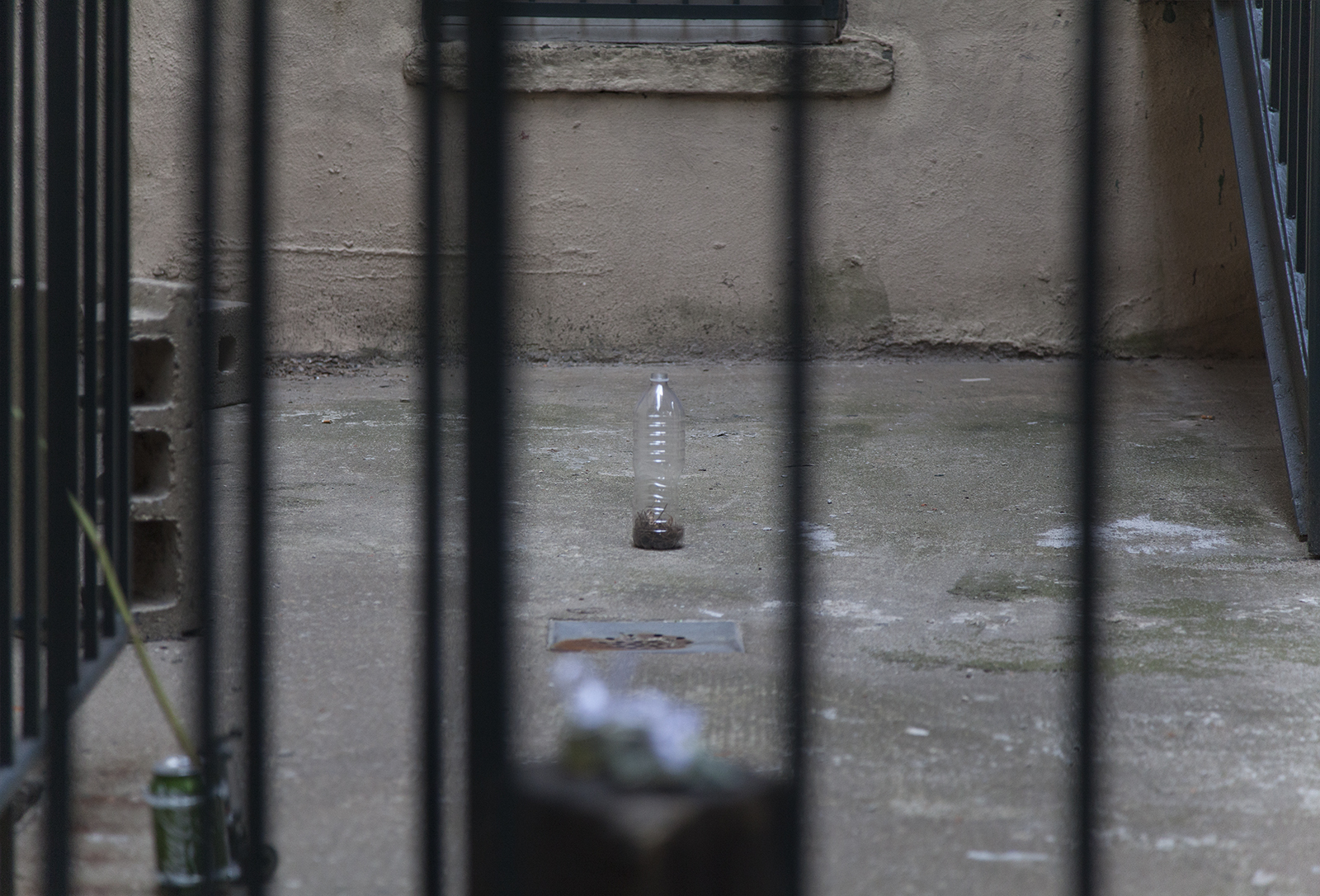
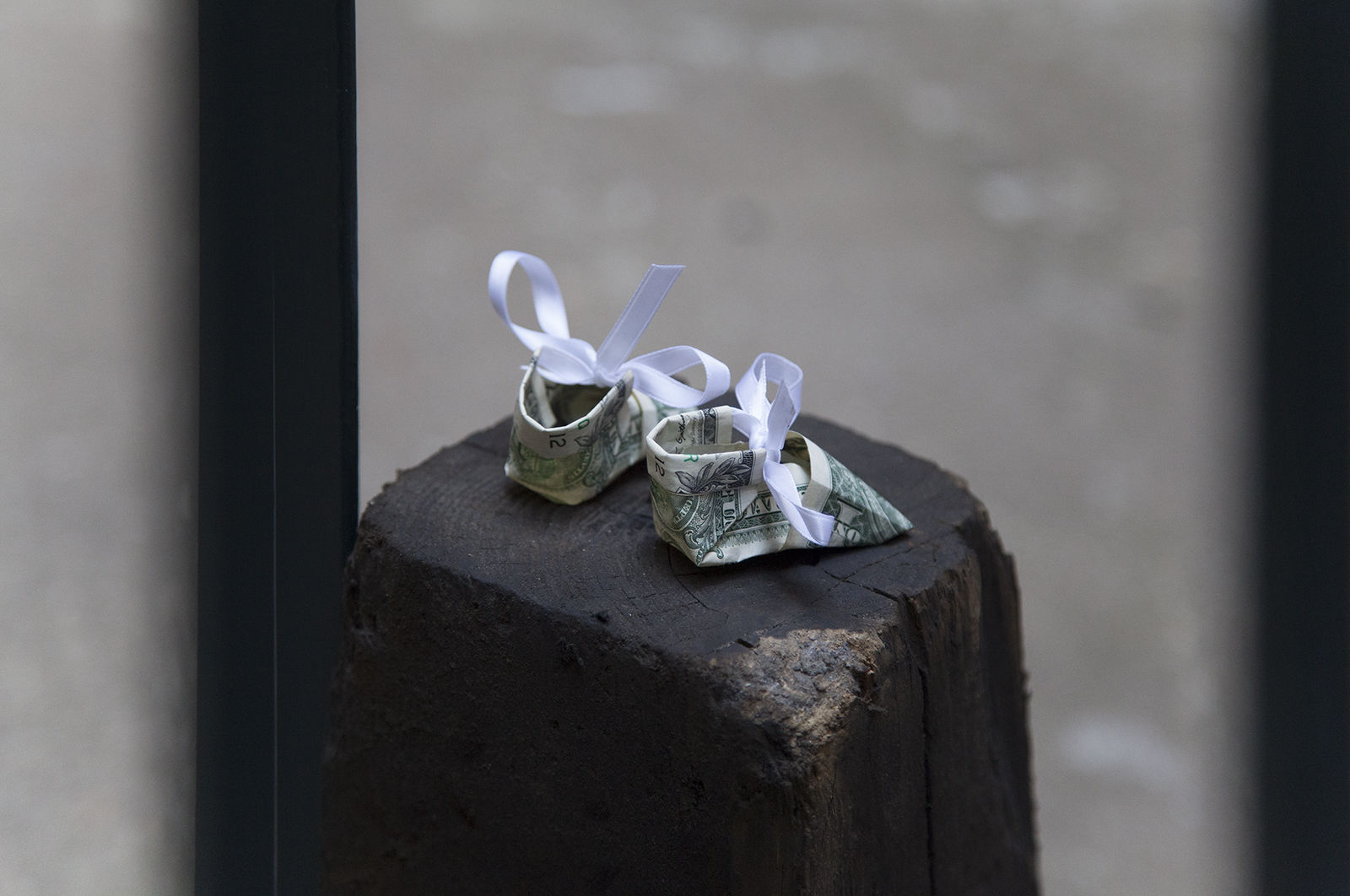
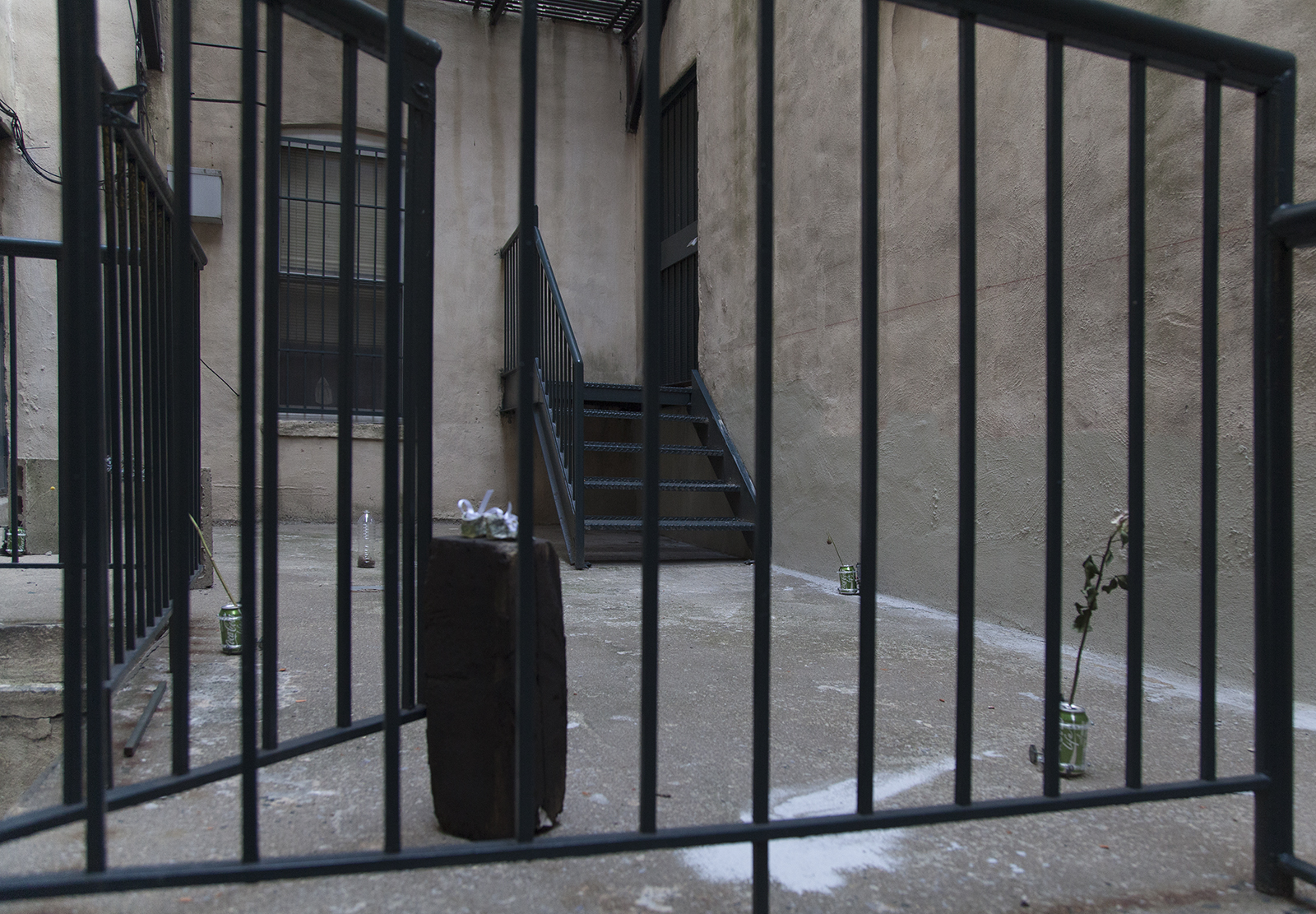
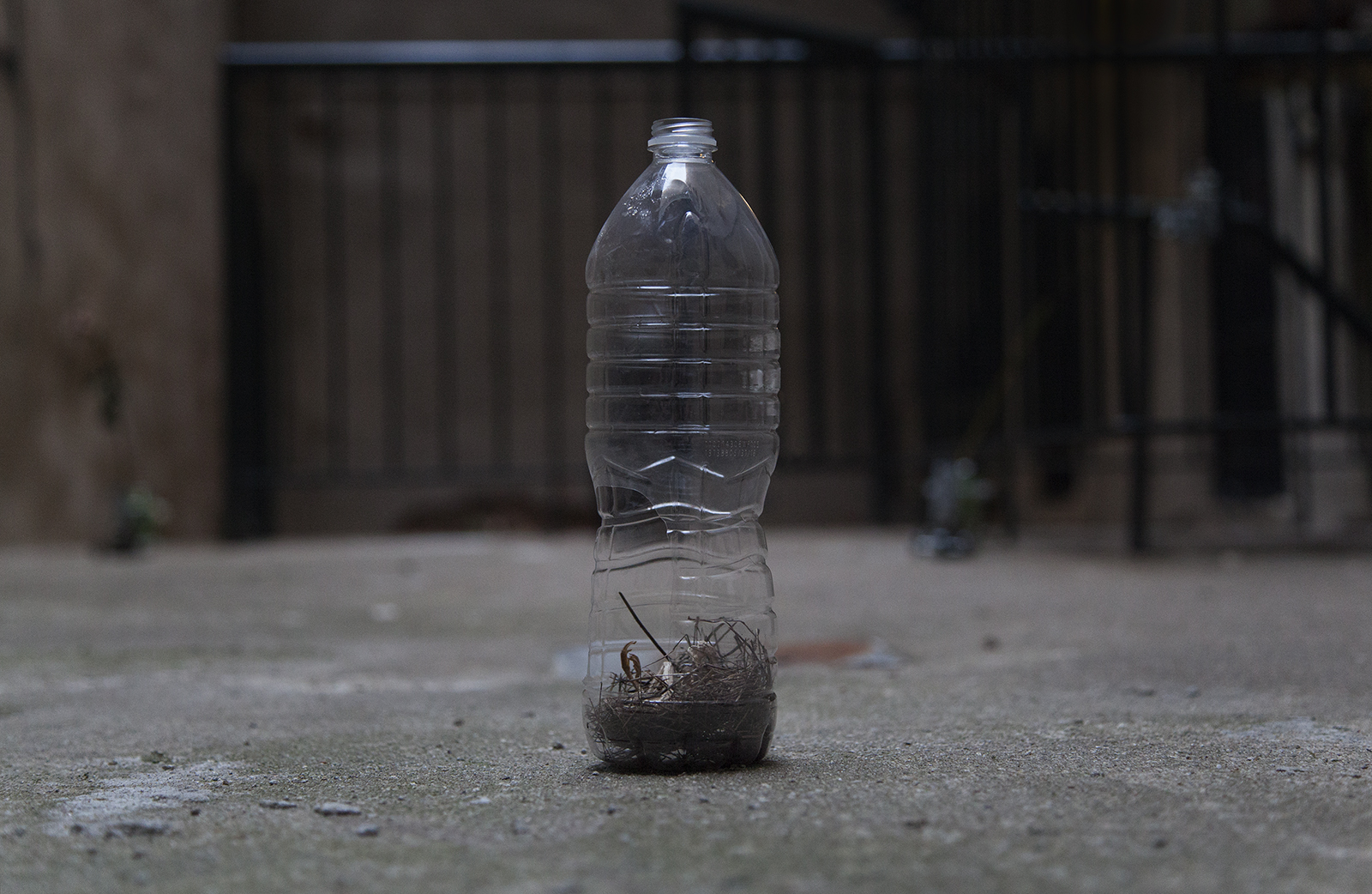
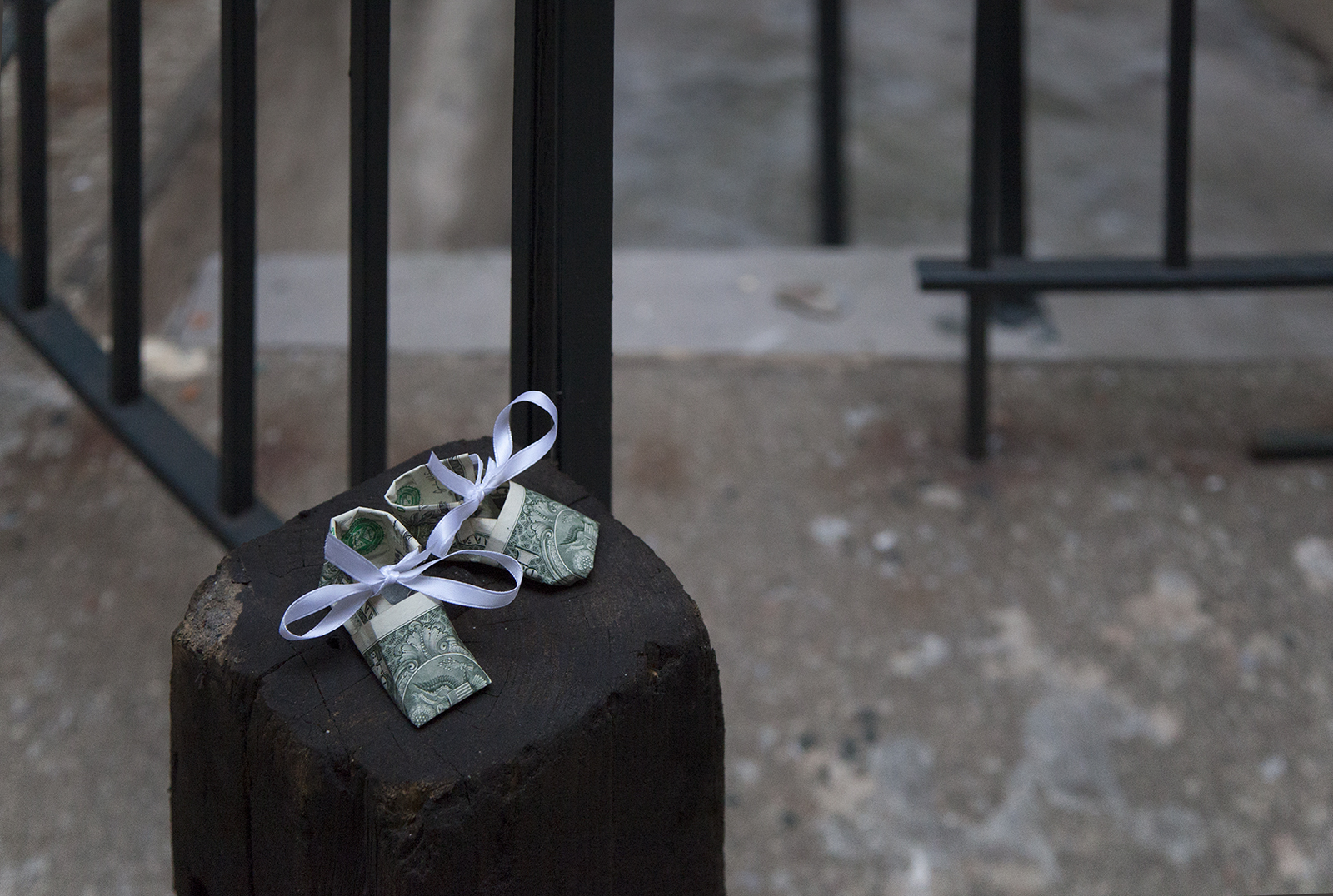
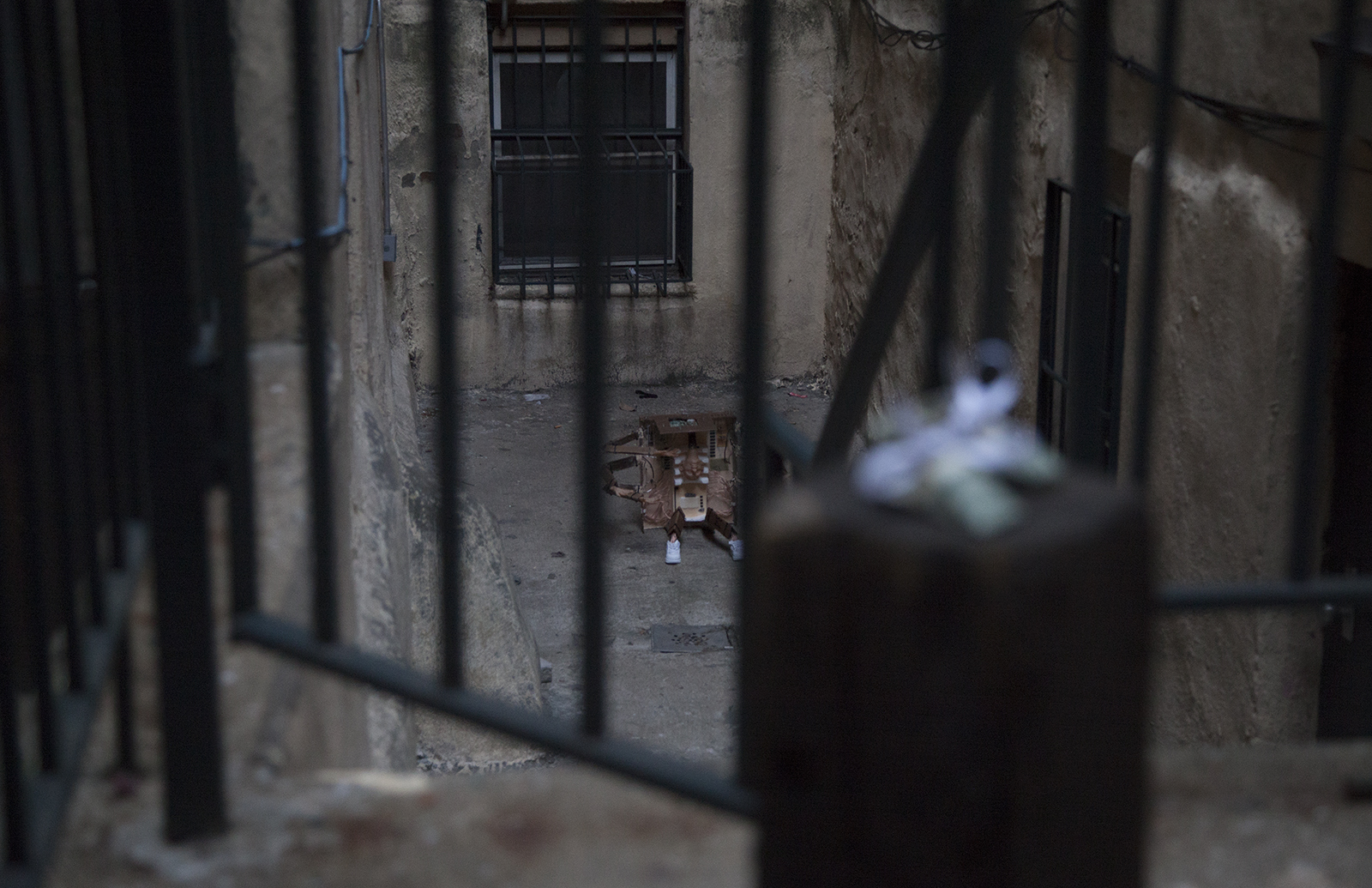

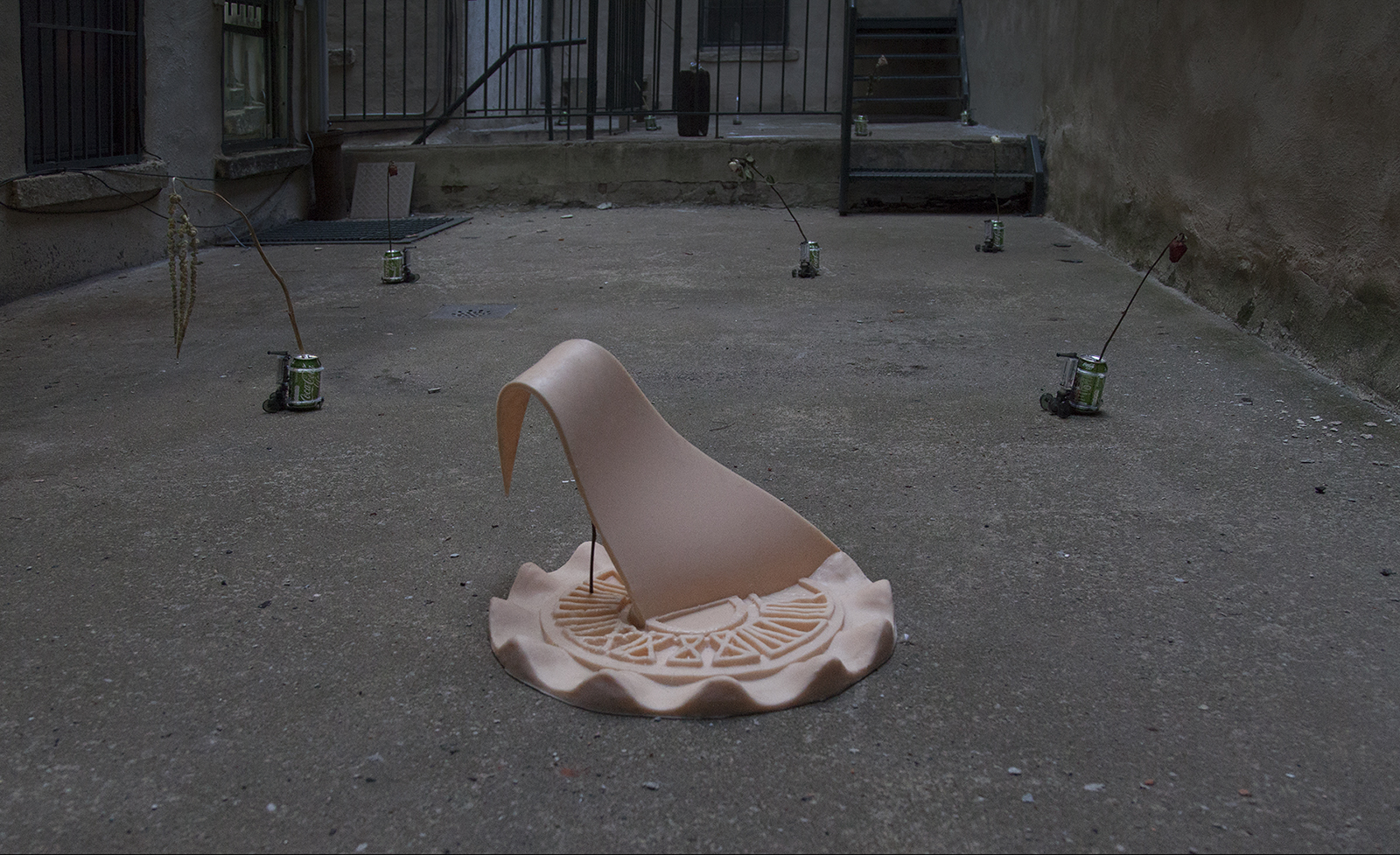
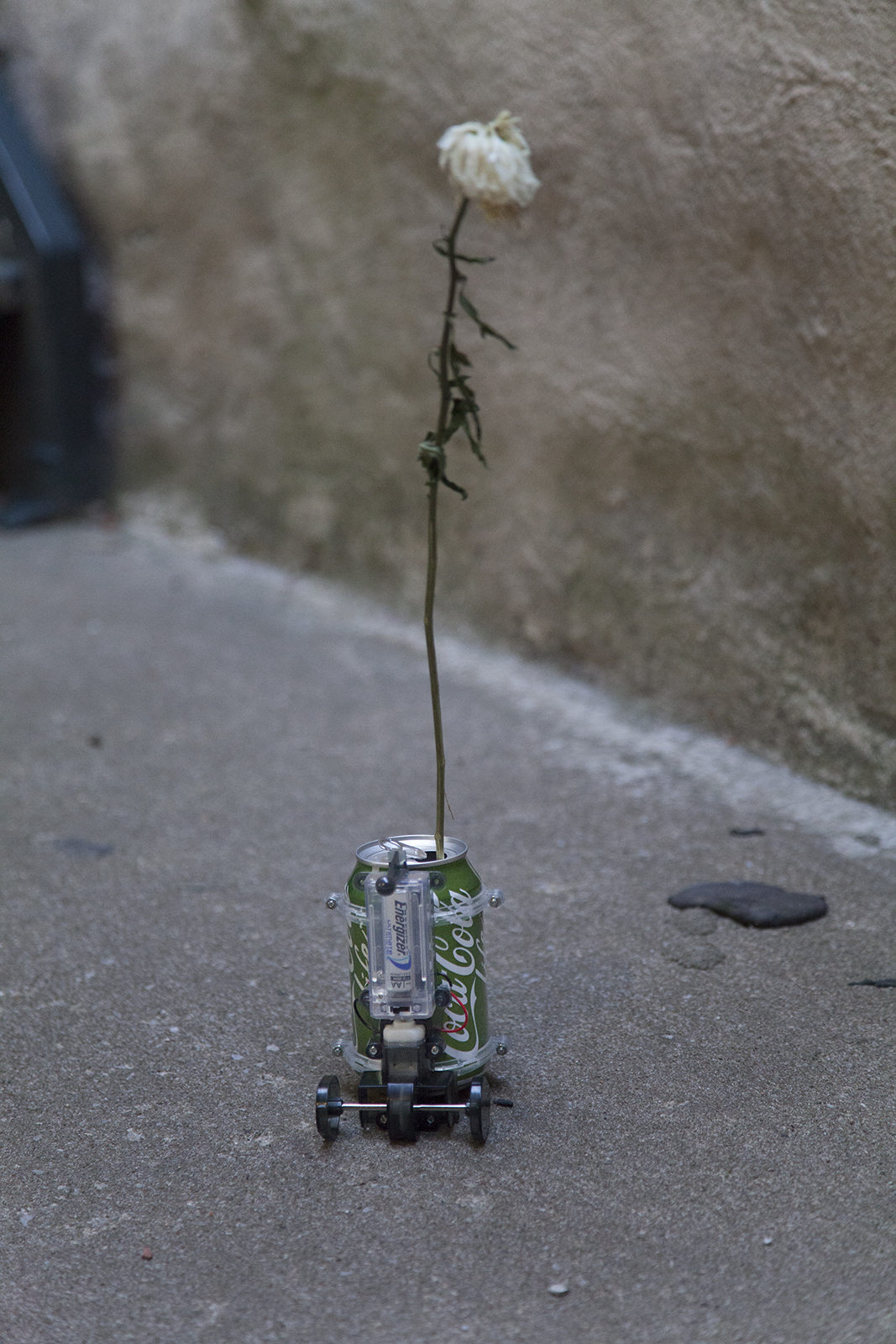
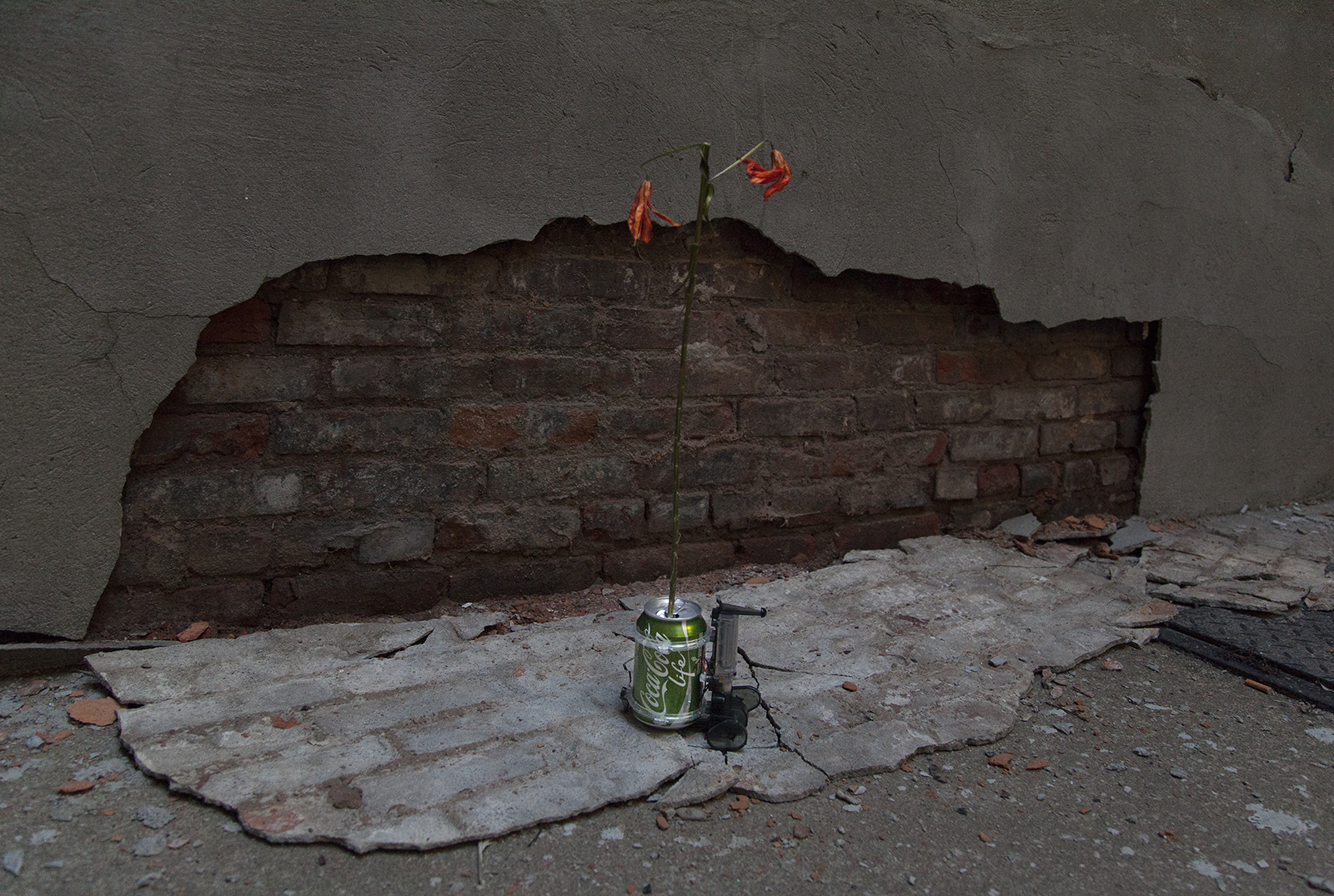
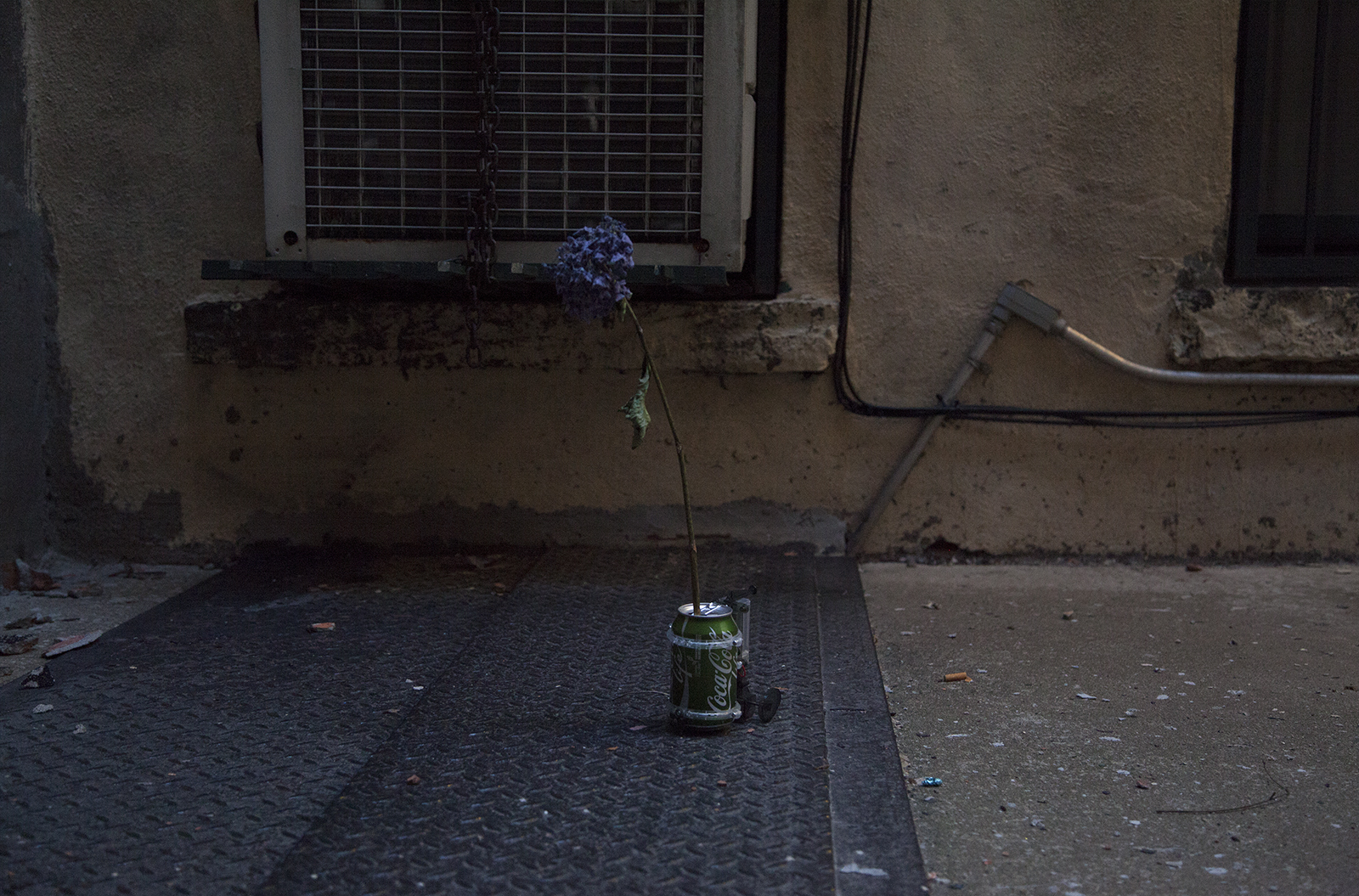

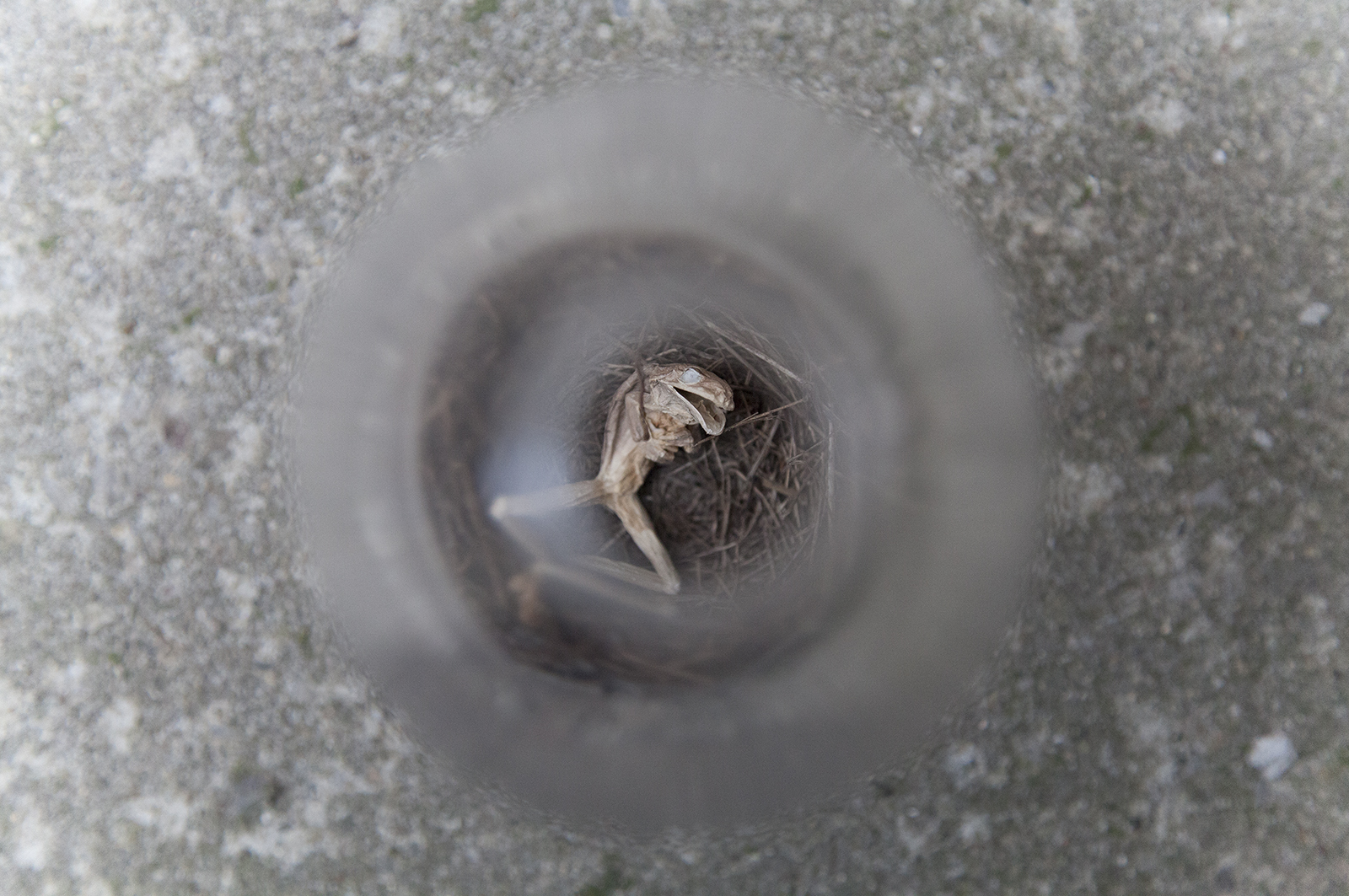
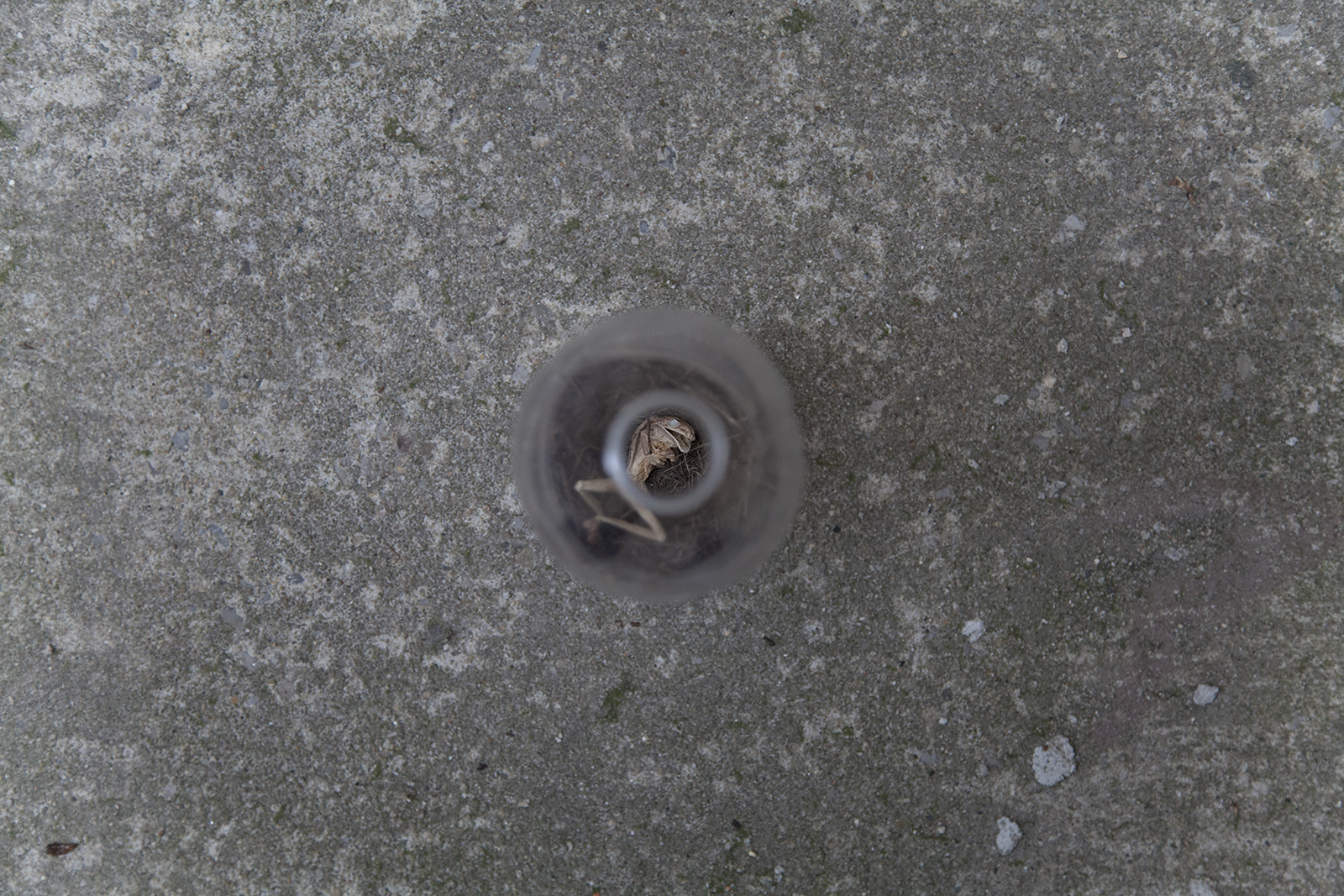
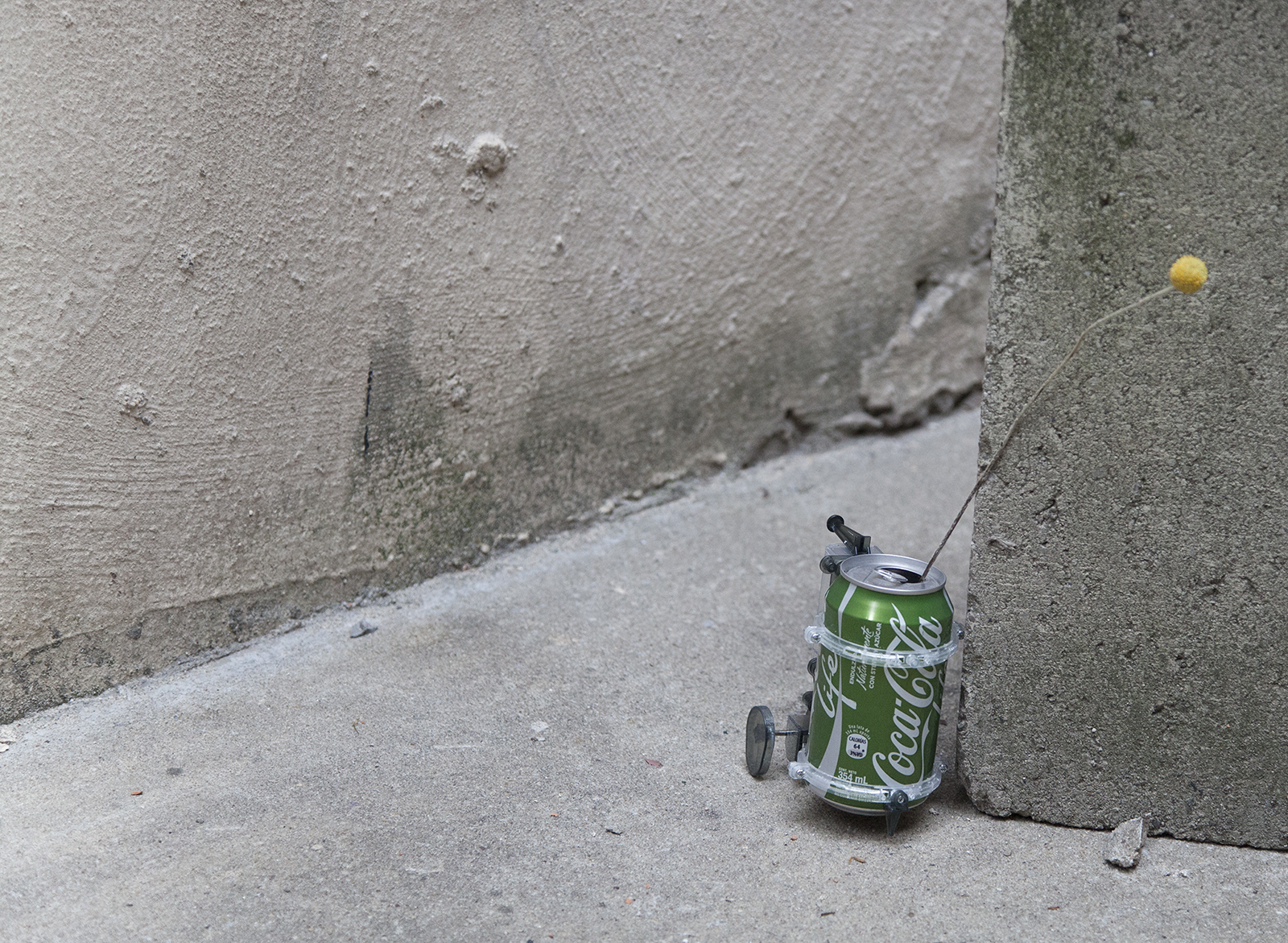
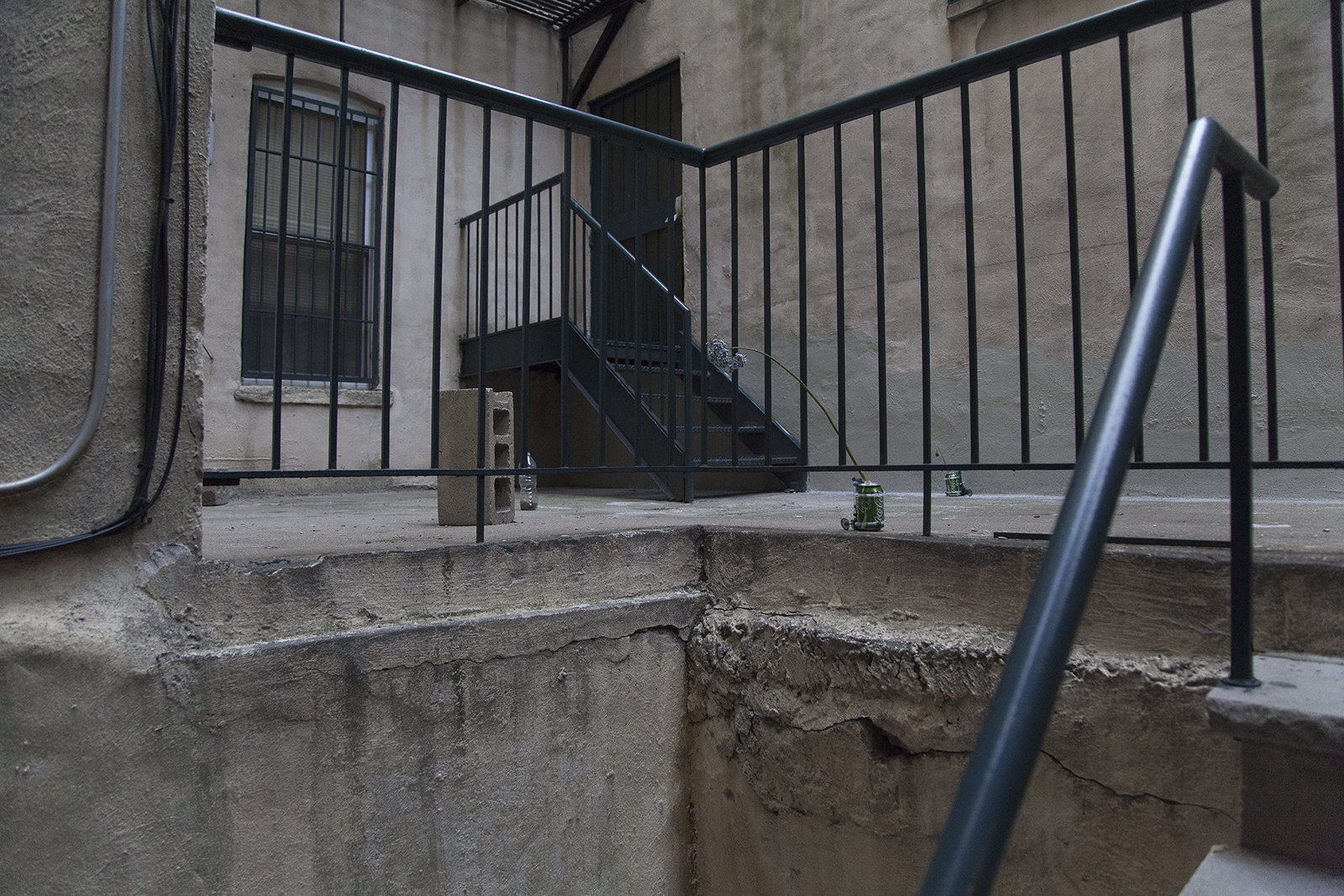
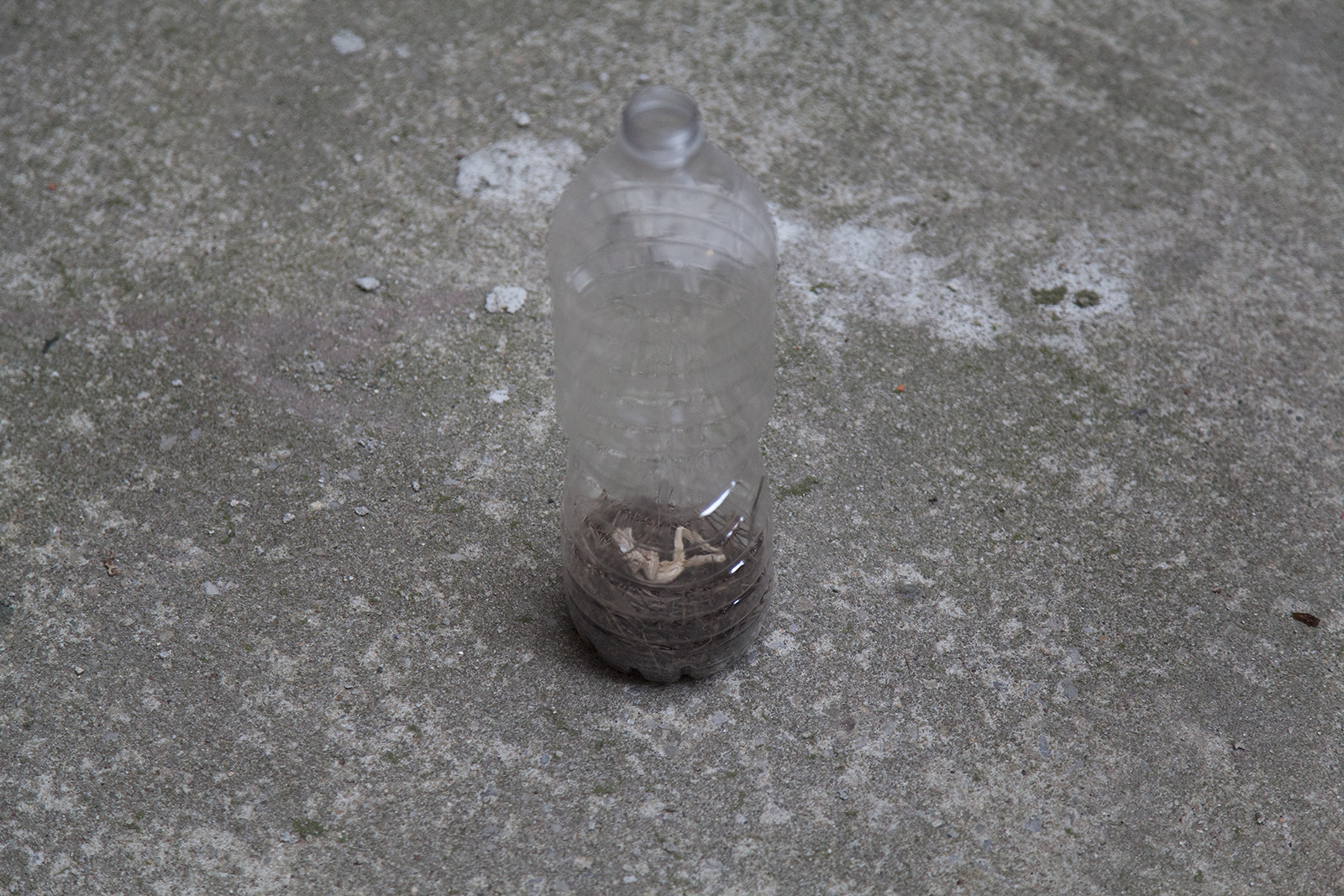

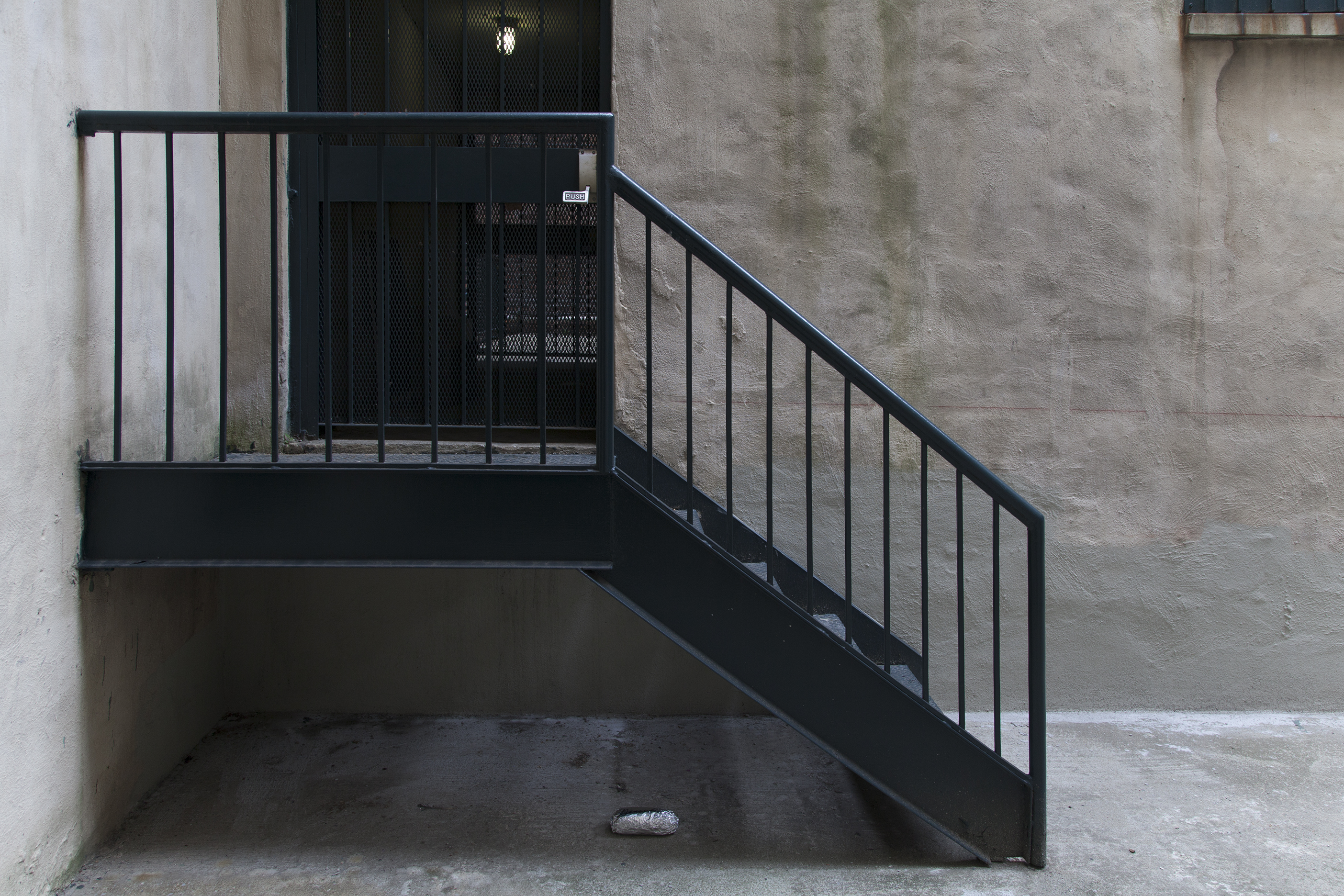
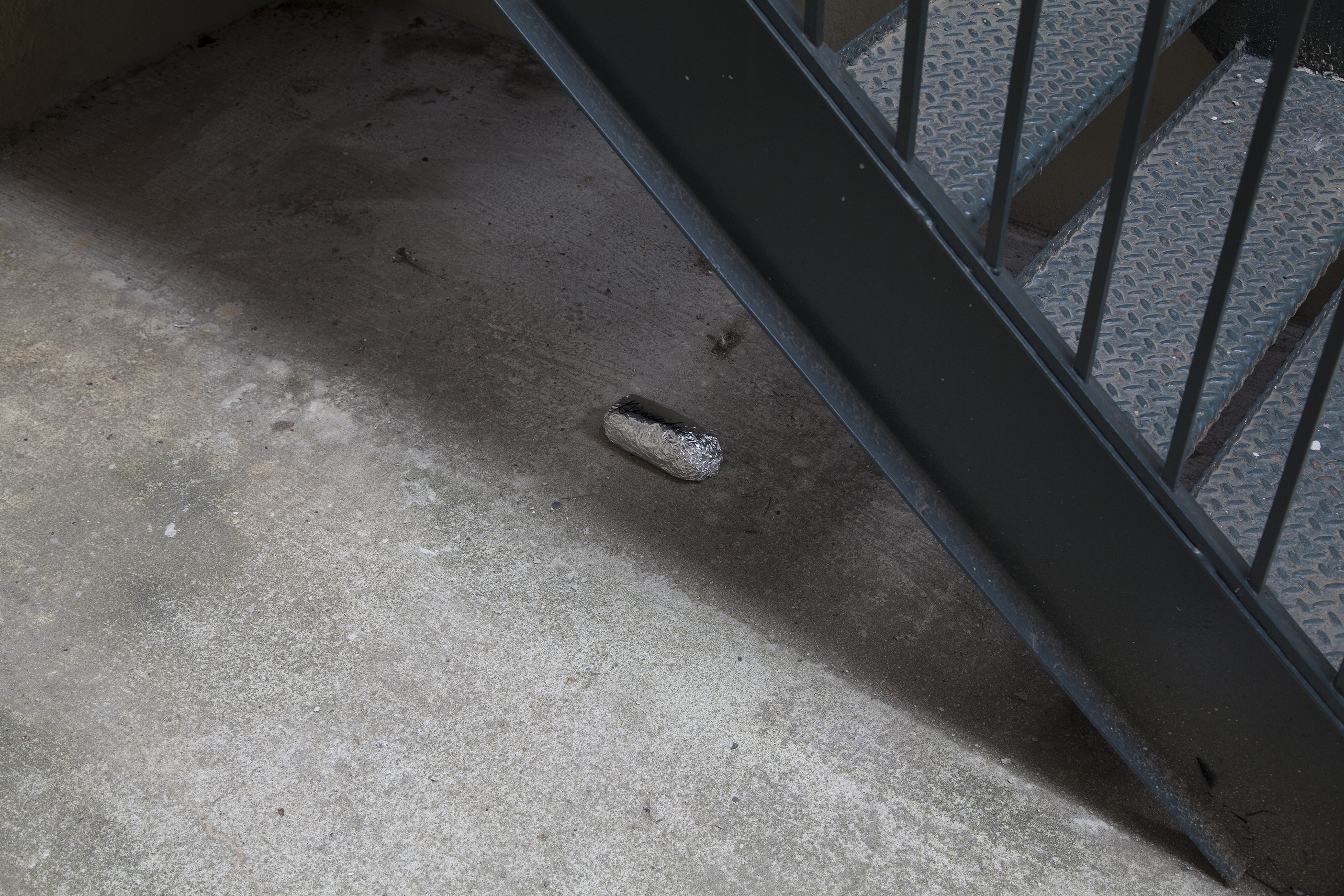

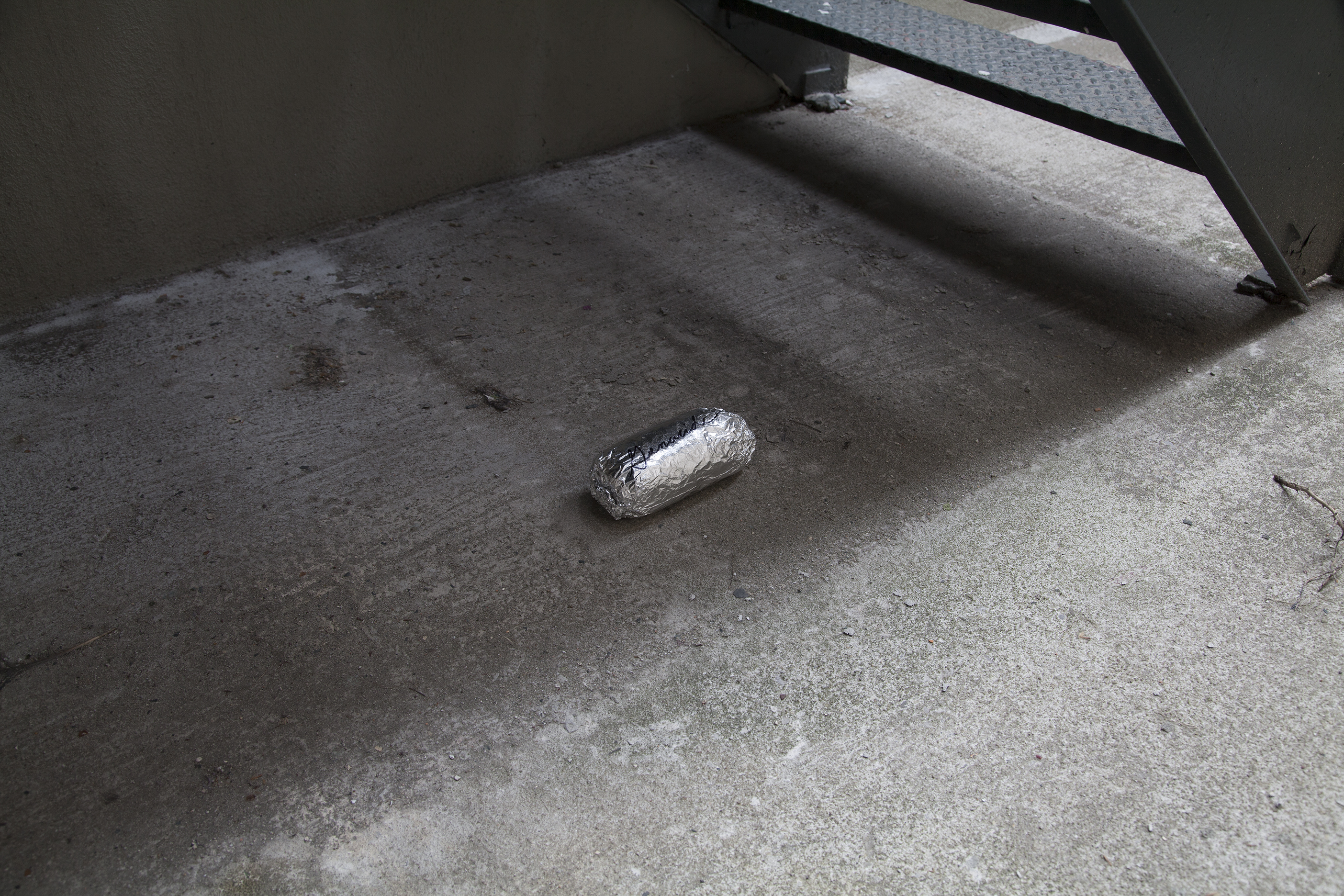

A beekeeper begins reading a story. The story's words are written in an ever-expanding combination of number and symbols. The numbers and symbols are variables in the evolution of a self-generating algorithm. The algorithm's rate of growth and complexity is accelerated exponentially with the calculation of each sentence. The beekeeper watches in amazement as the code continuously compounds. This is a story about growth. [Honey, I shrunk the kids.]
The beekeeper now understands a few specific memories from its past as dots connected in an abstract timeline; a count-down to worldwide integration. Juvenile fictions from the past mature into a fact called future as echoes of an empty present find resonance in the form of a relentless crescendo. [Honey, I blew up the kid.]
The beekeeper folds the story in half, adding dimension to the previously flat narrative. The angle breaks the equation. The algorithm reverses into a degenerative free fall. The incoherent gibberish of an increasingly intricate self-similar pattern crystallizes into a beautiful downward spiral. [Honey, we shrunk ourselves.]
The story's new edge cuts the suspense. A concluding event appears just over the horizon. A string of taps against a bed of dormant solar panels resembles a fruitless drum-fill awaiting an overdue punch-line. [Honey, we don’t have any more Honey.]